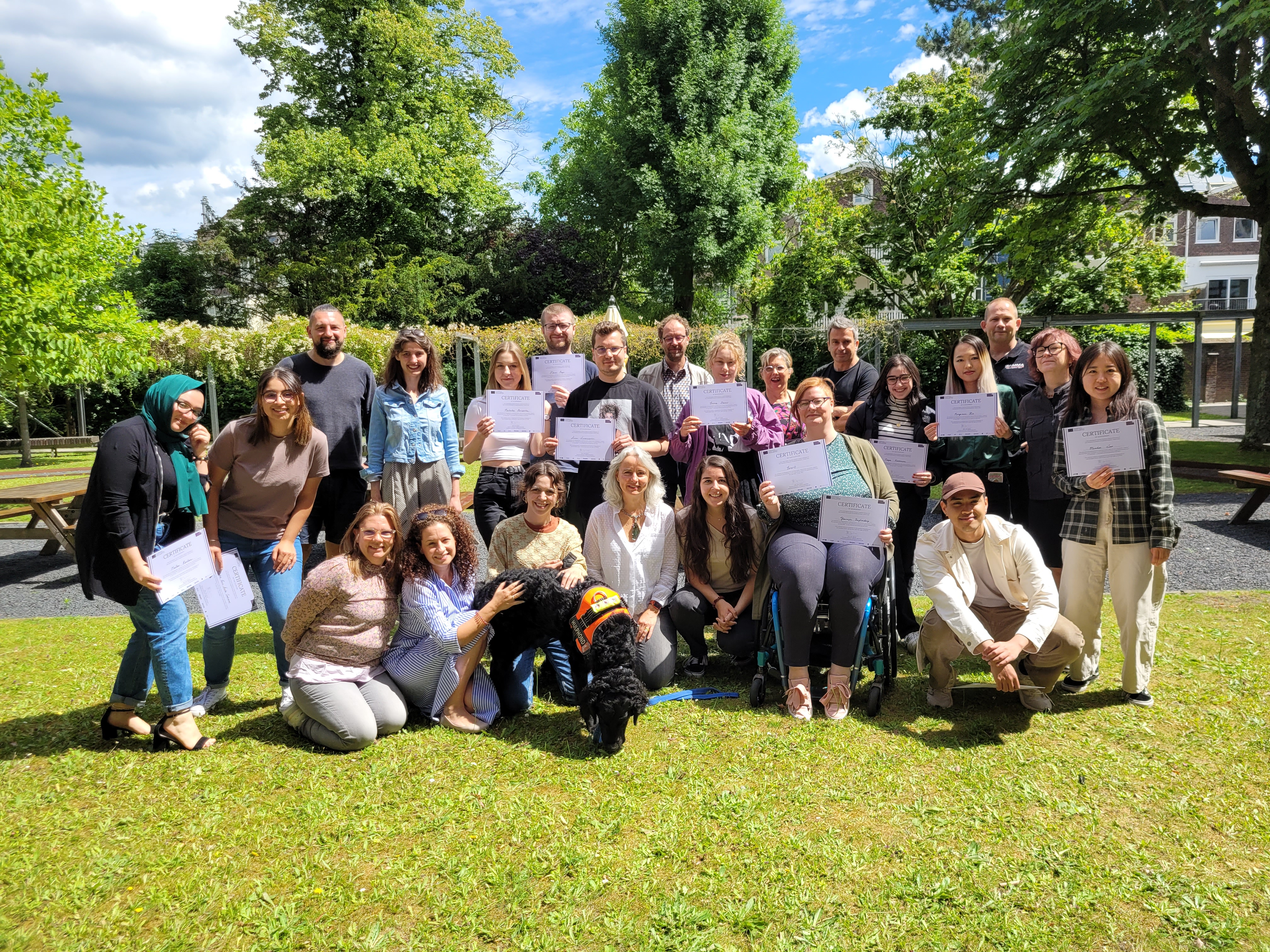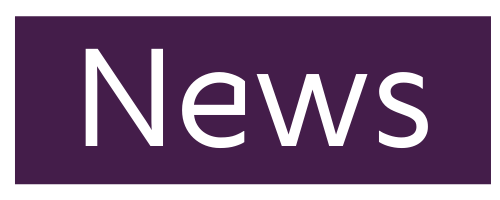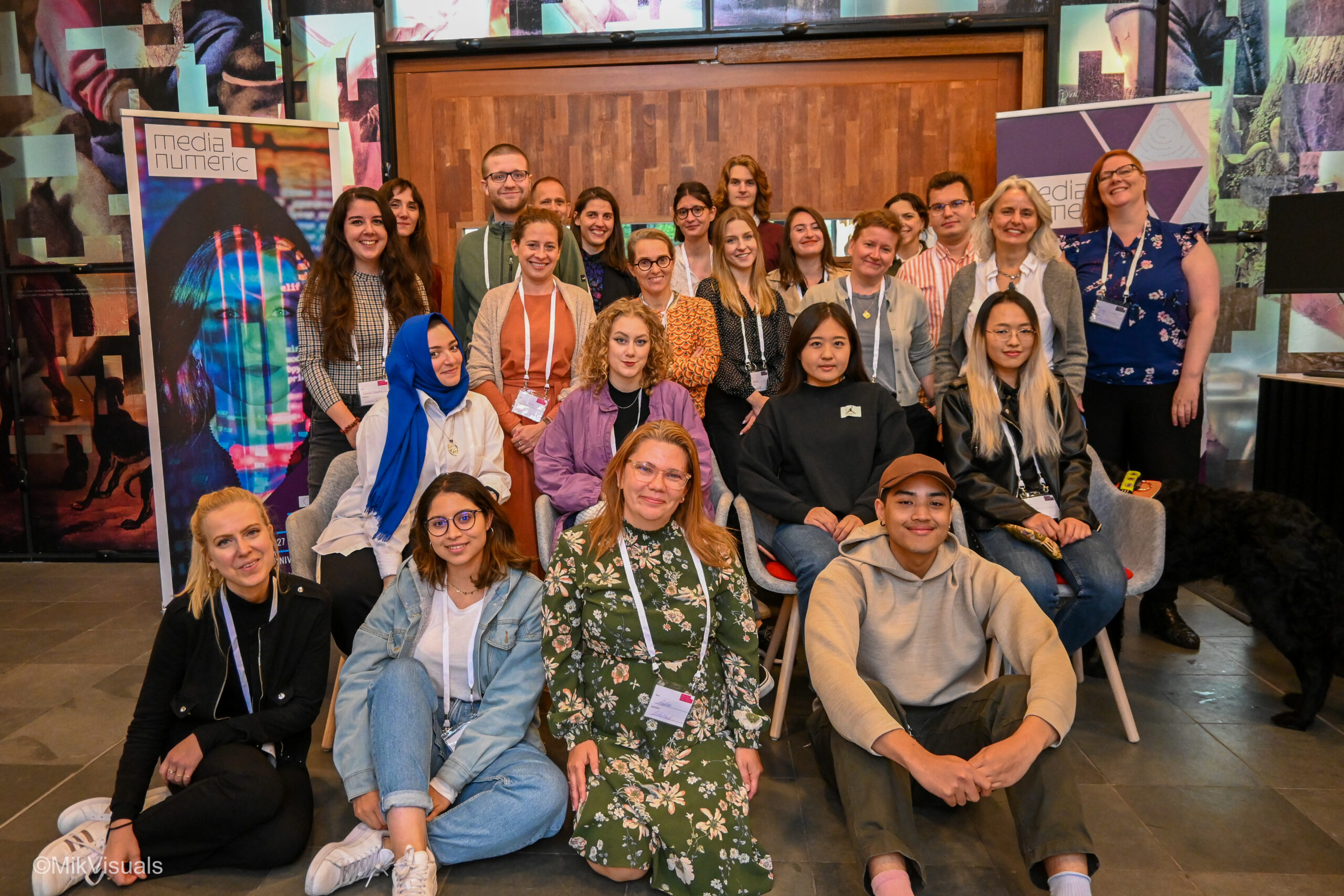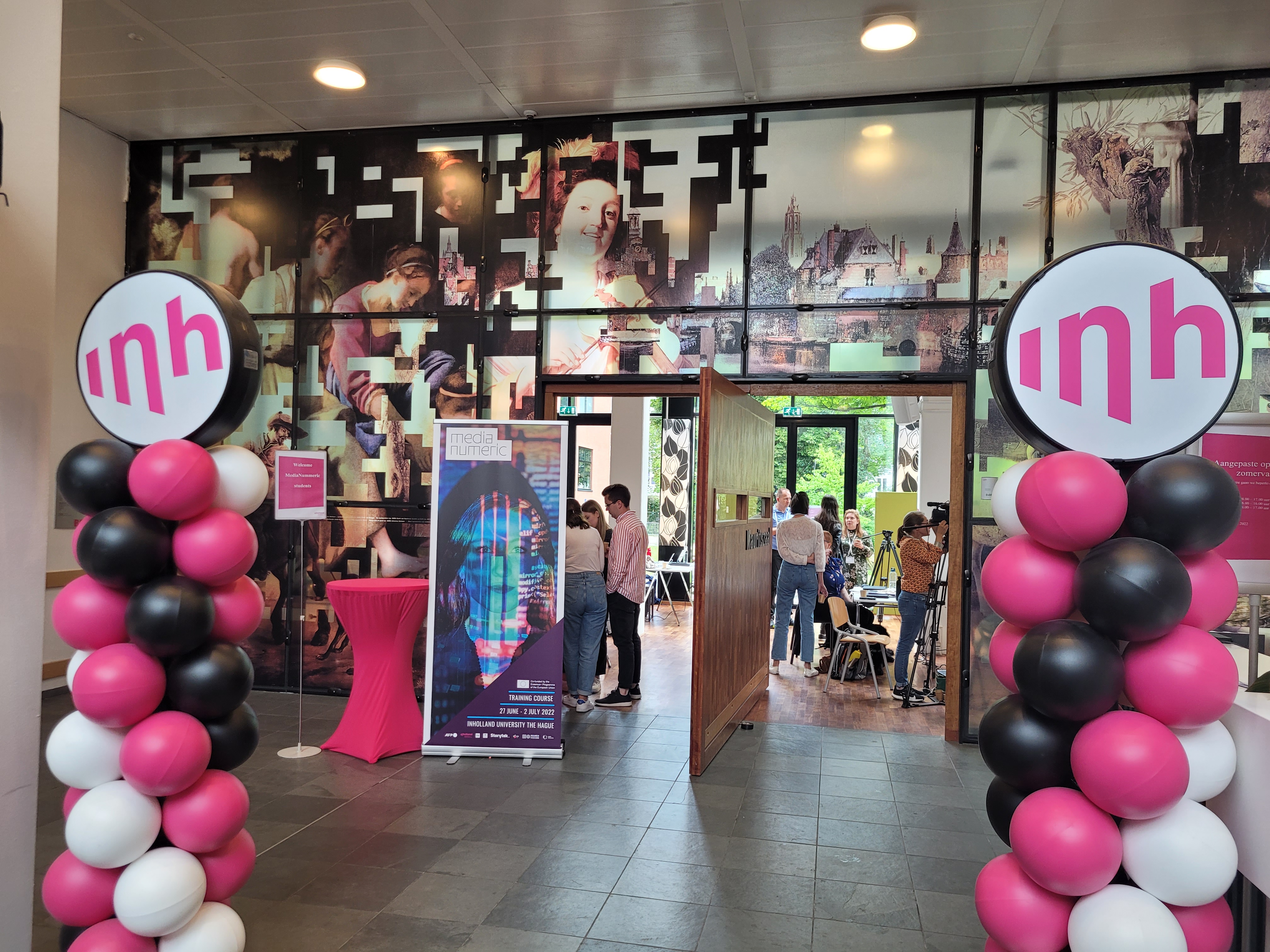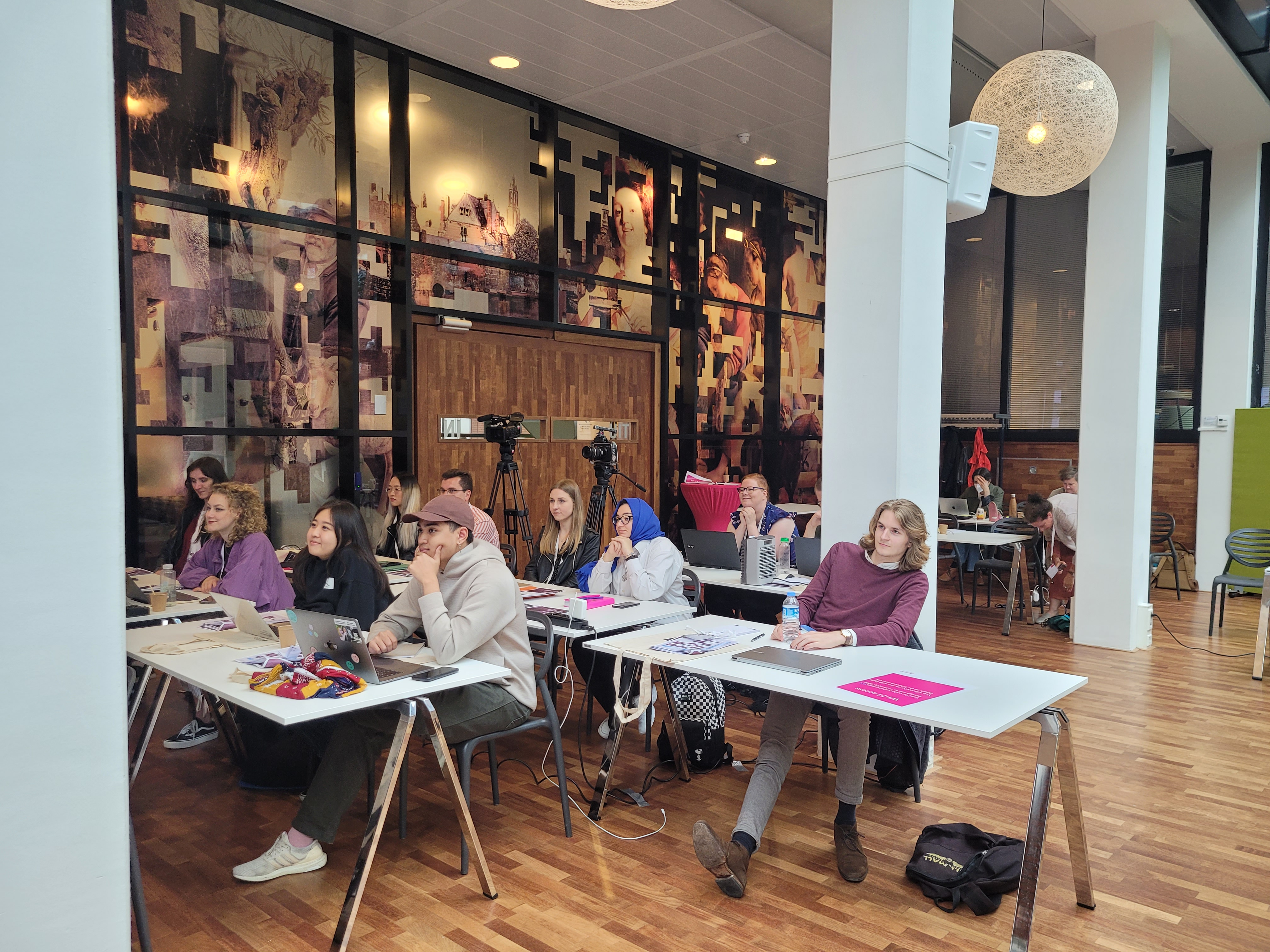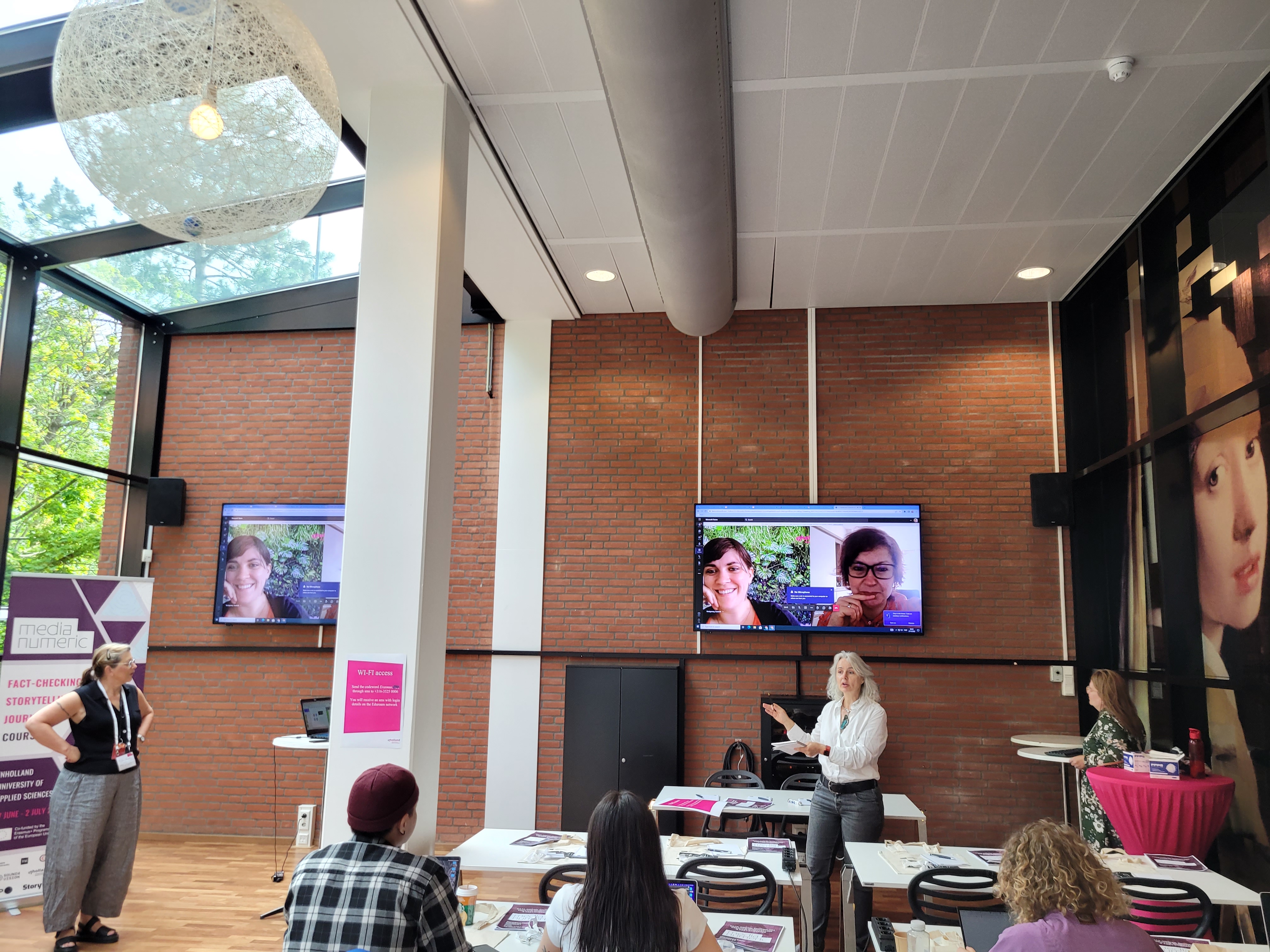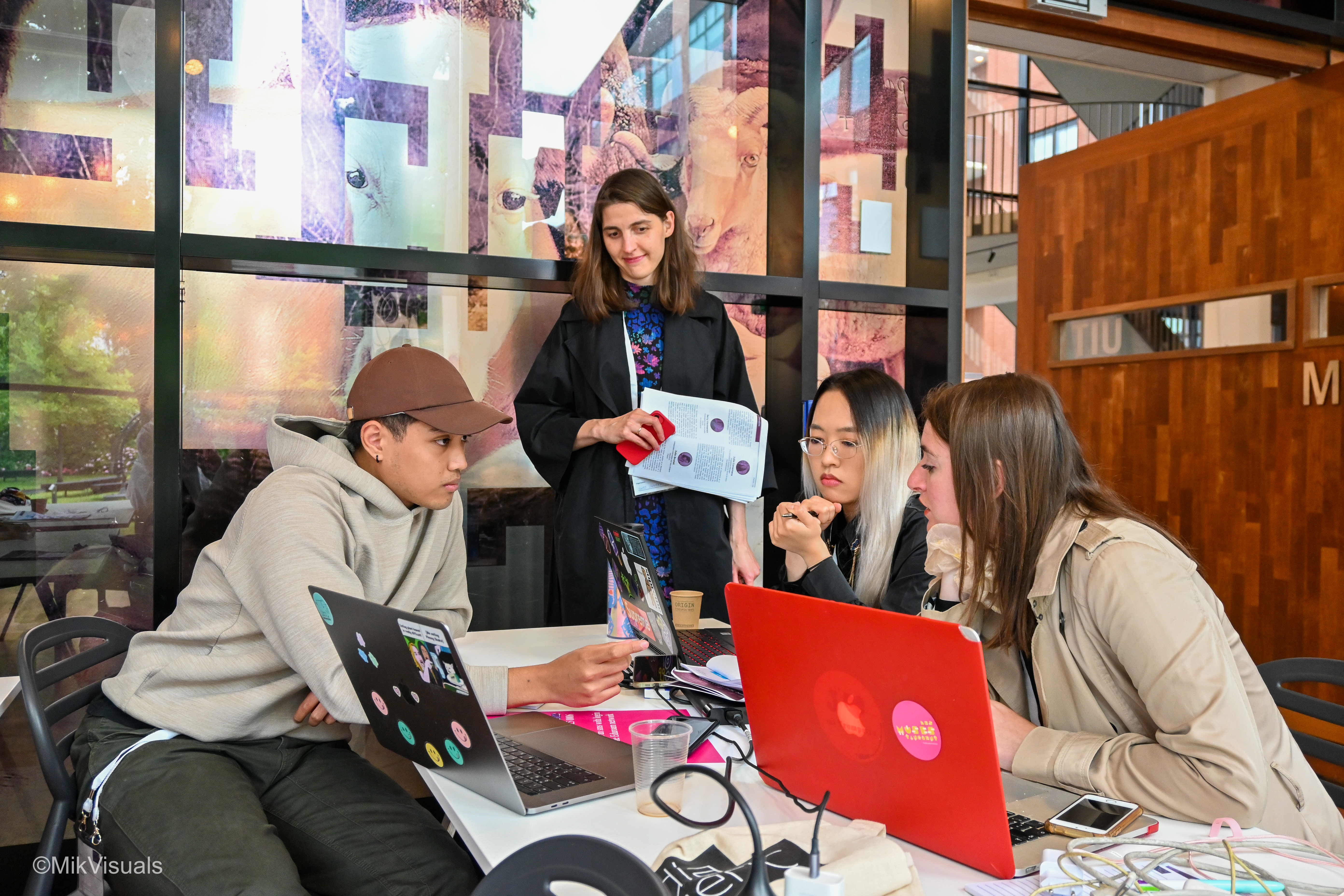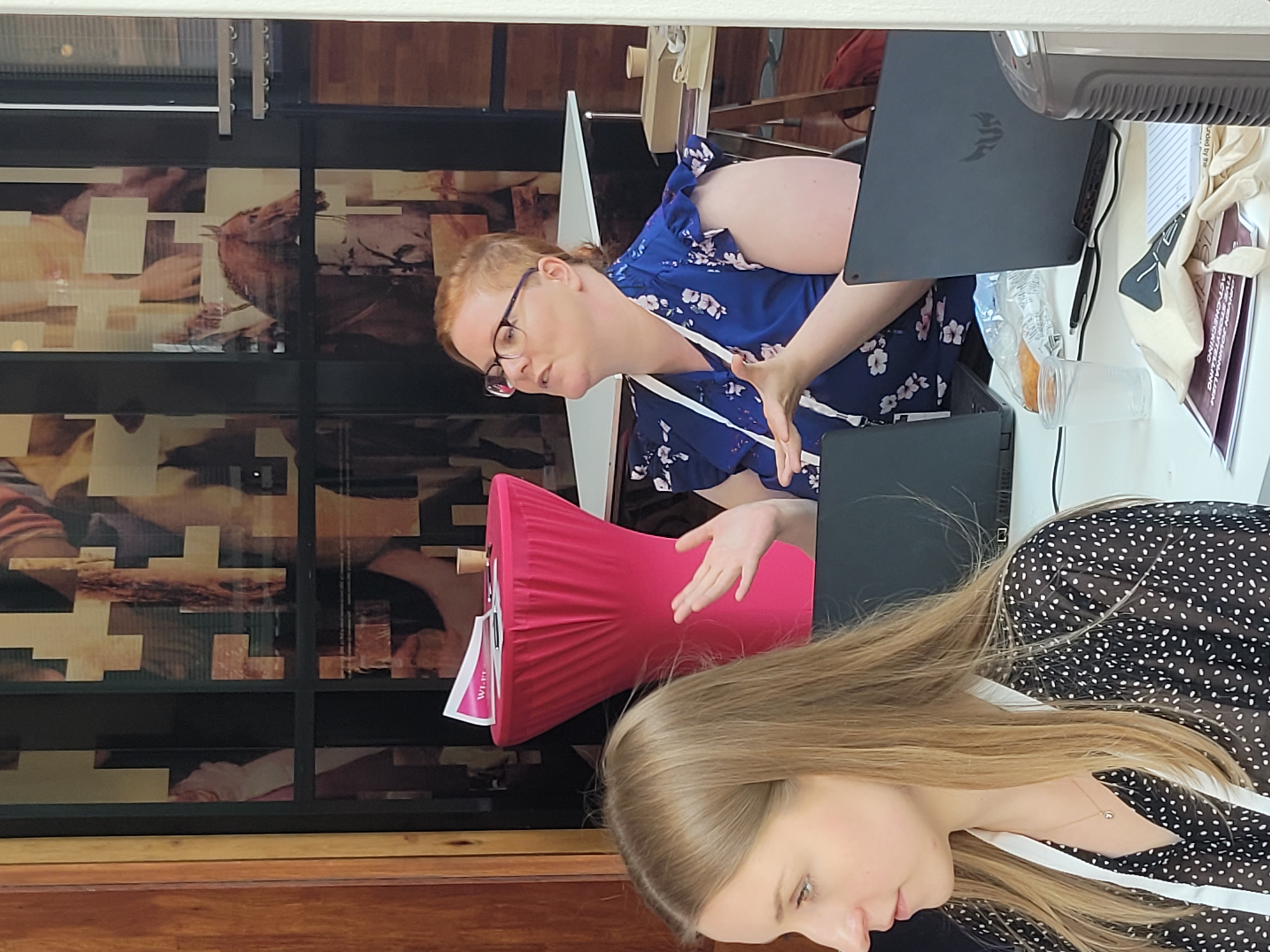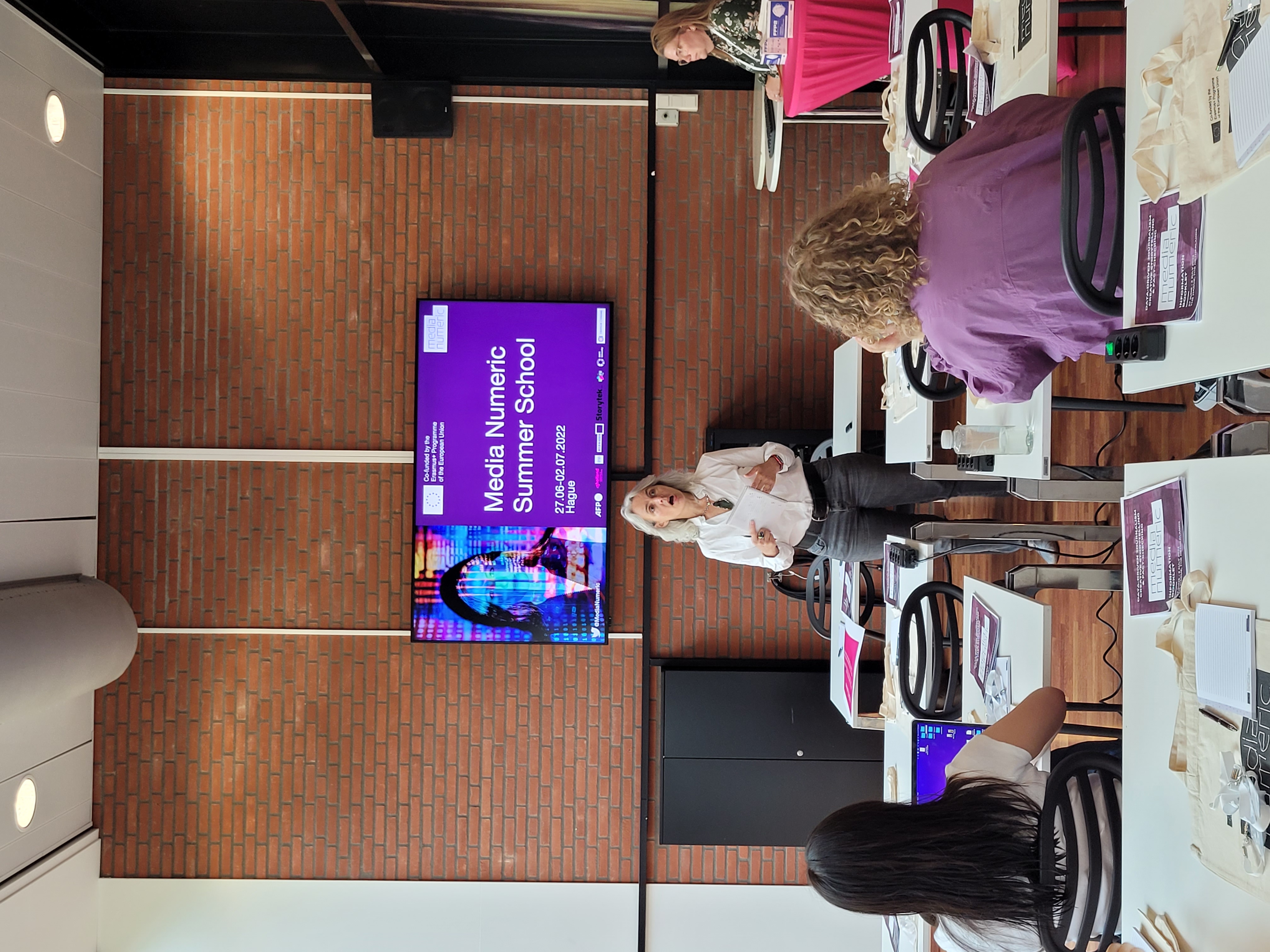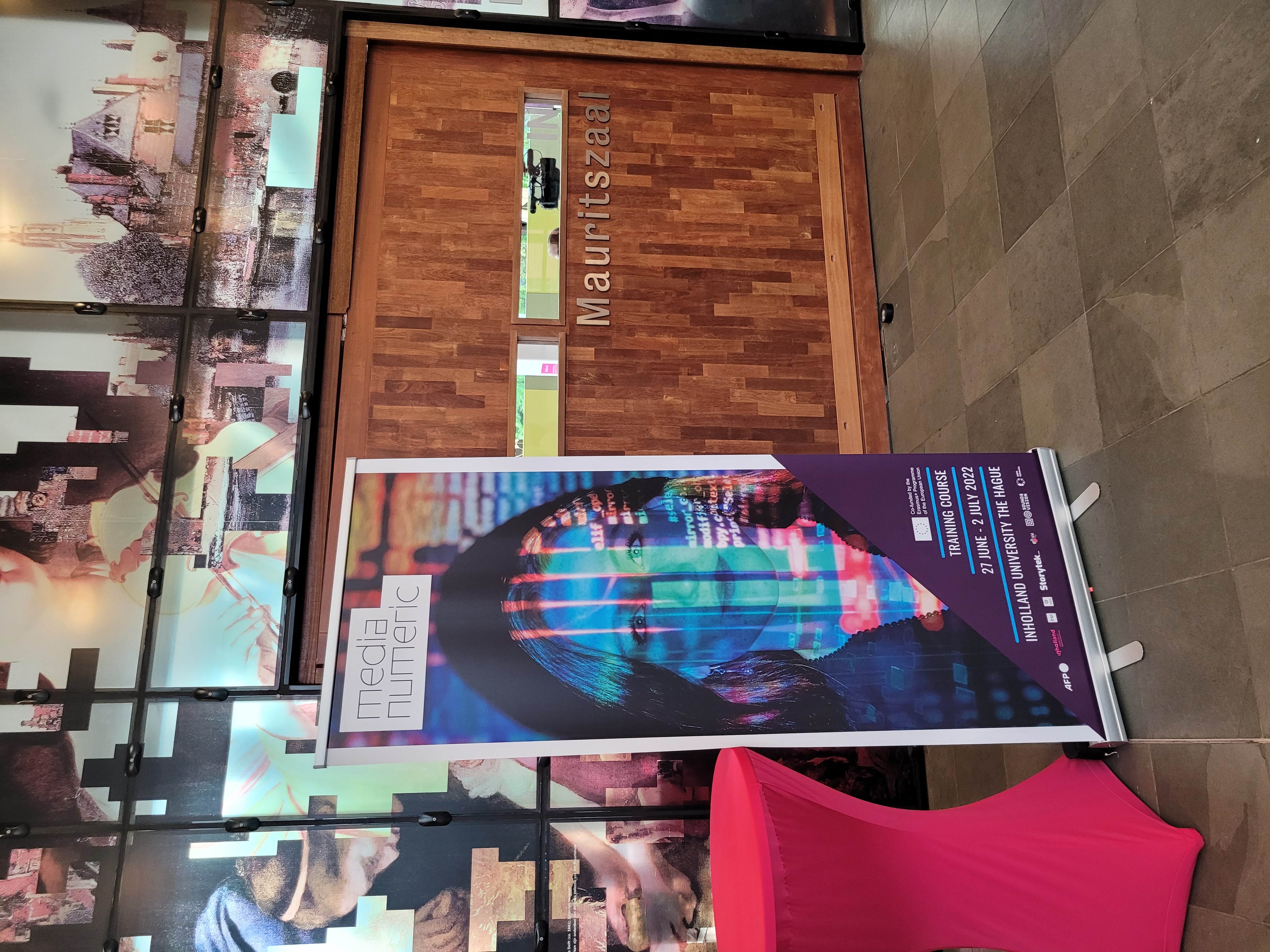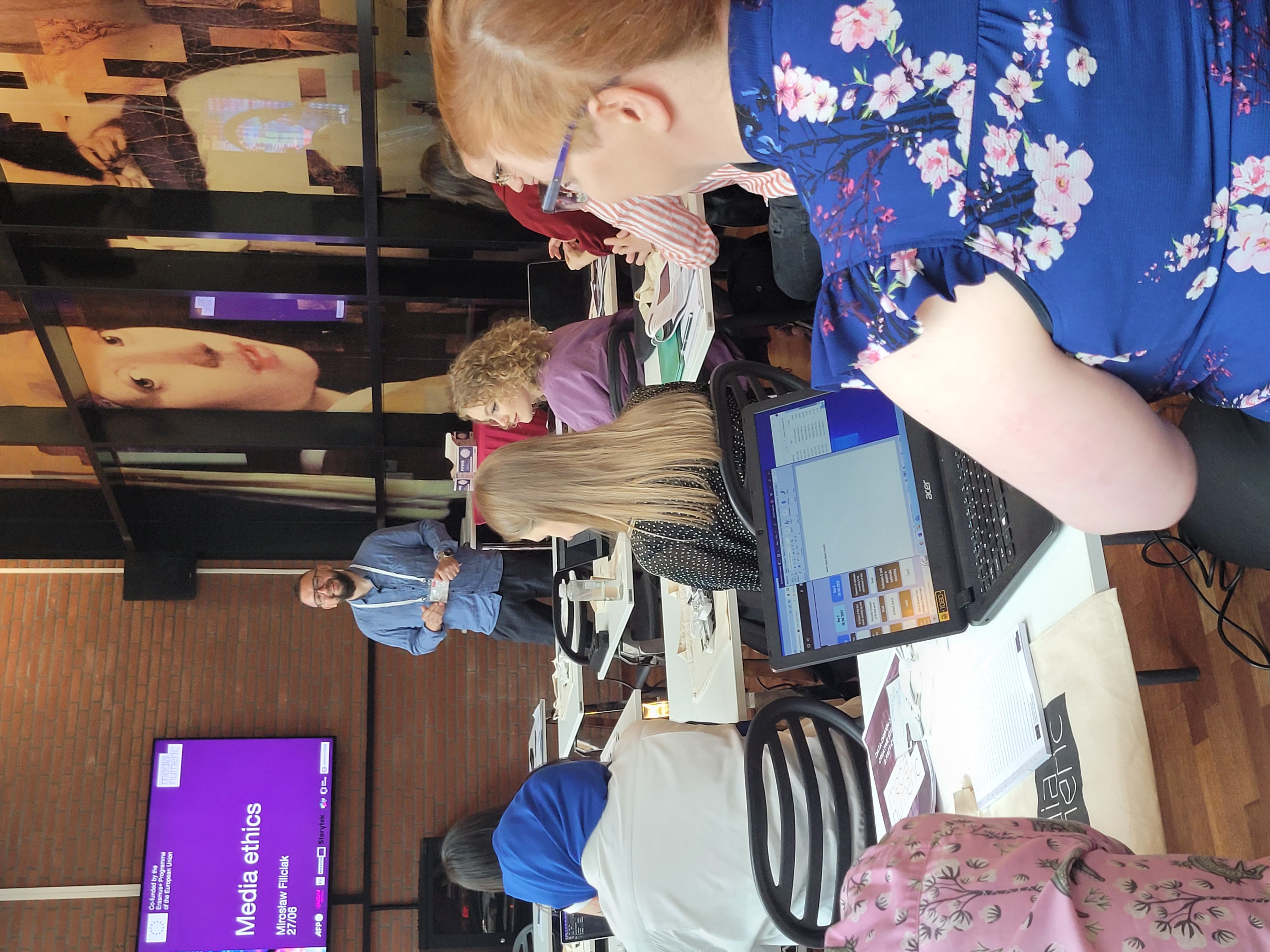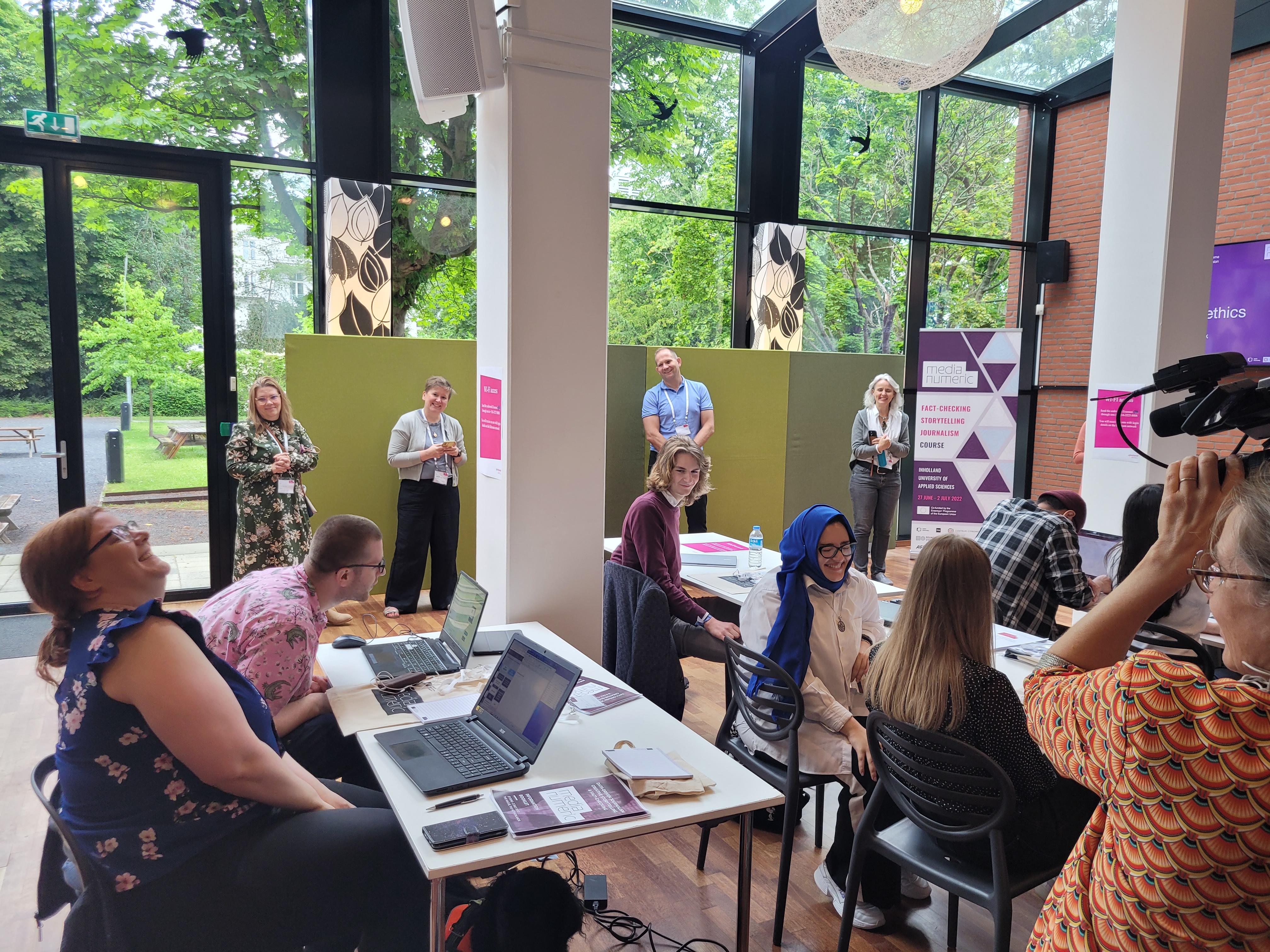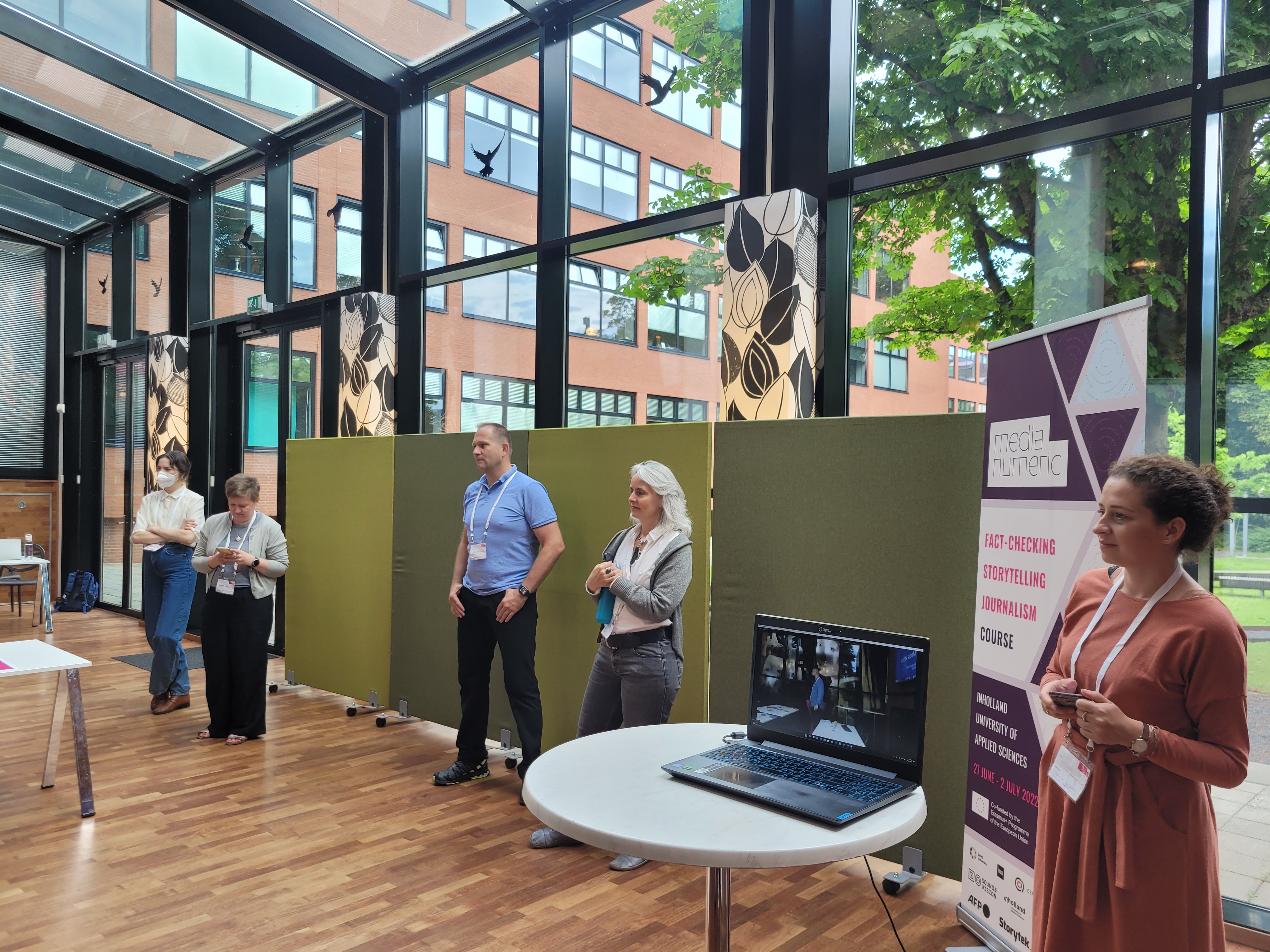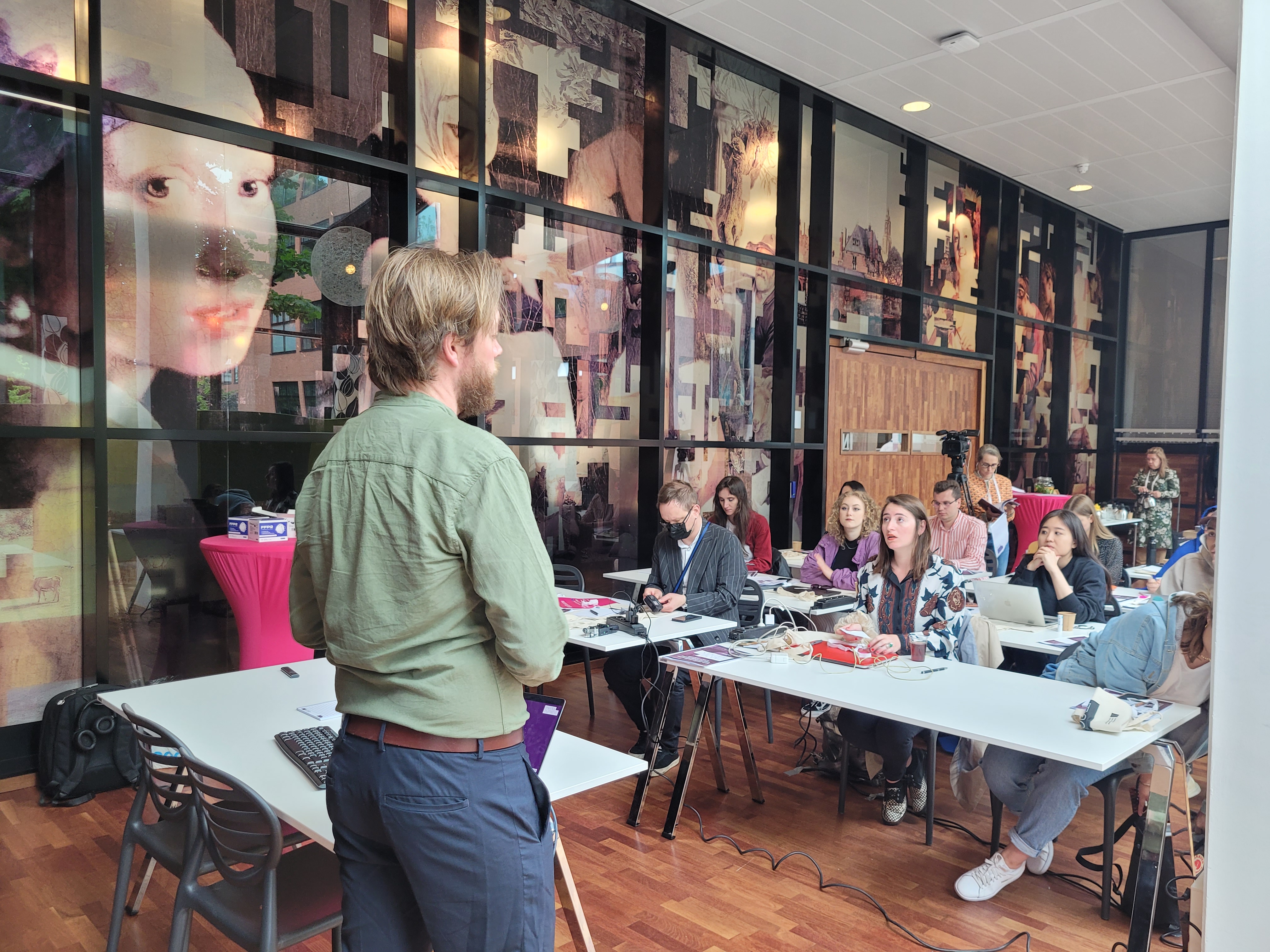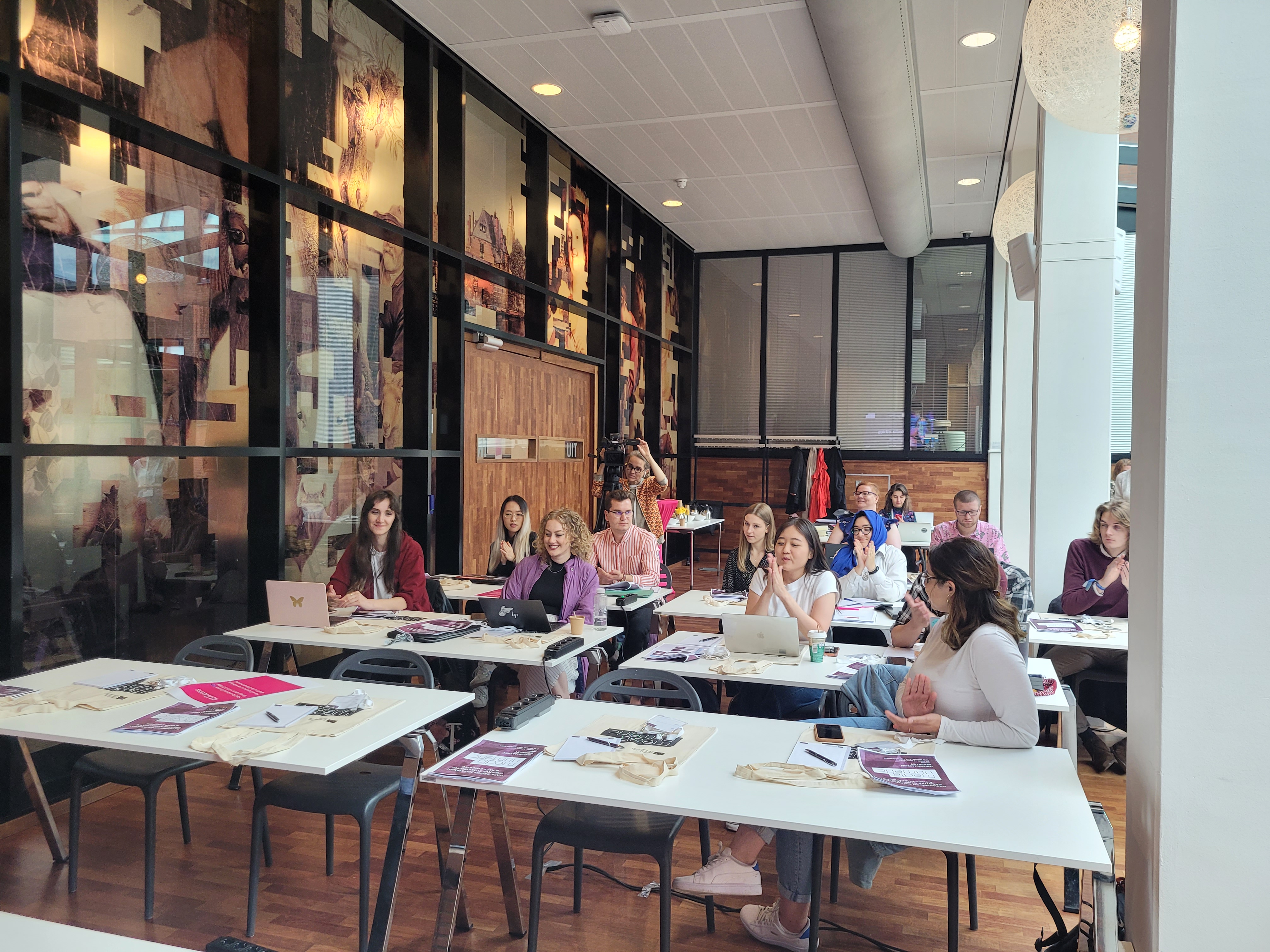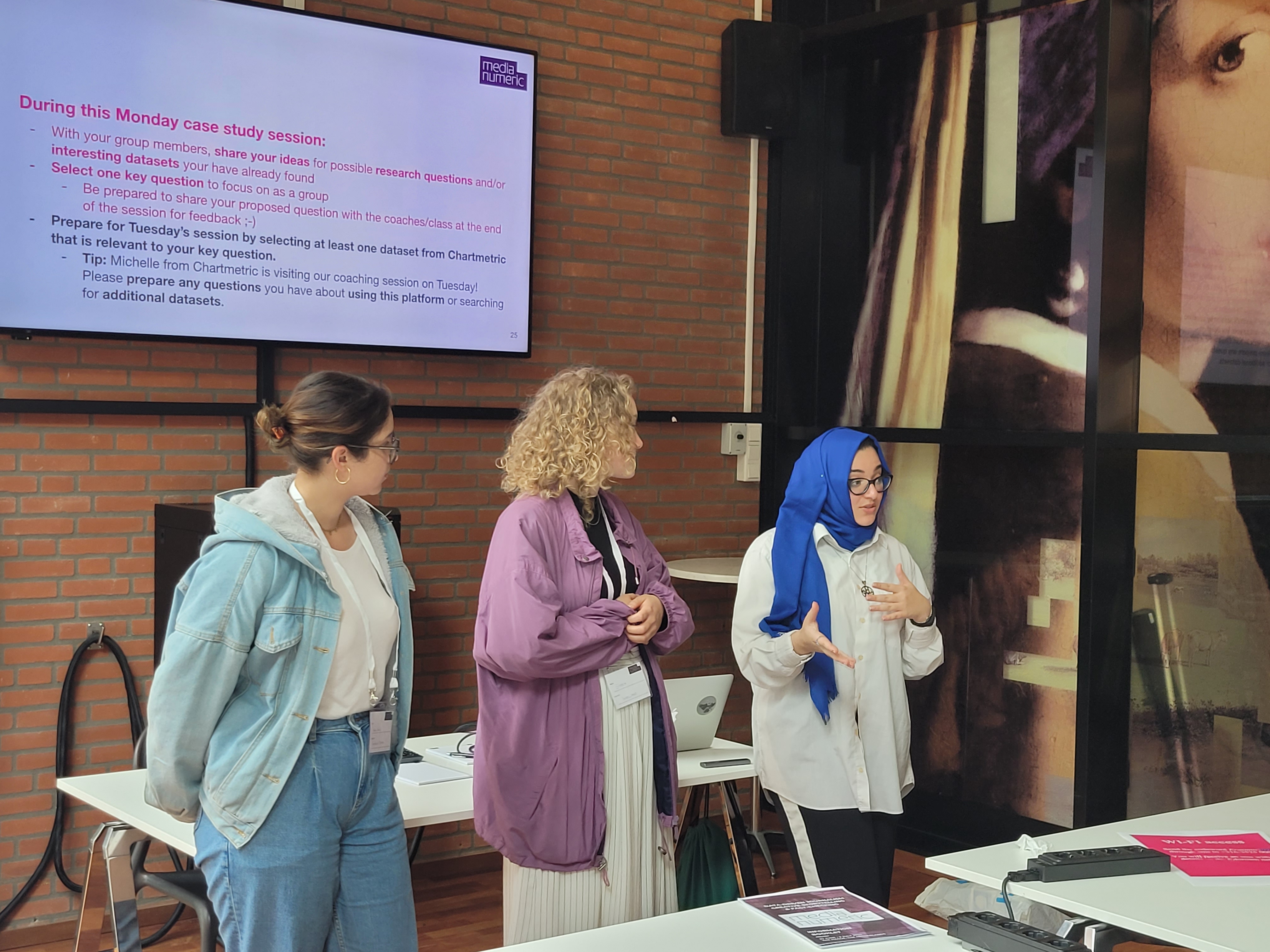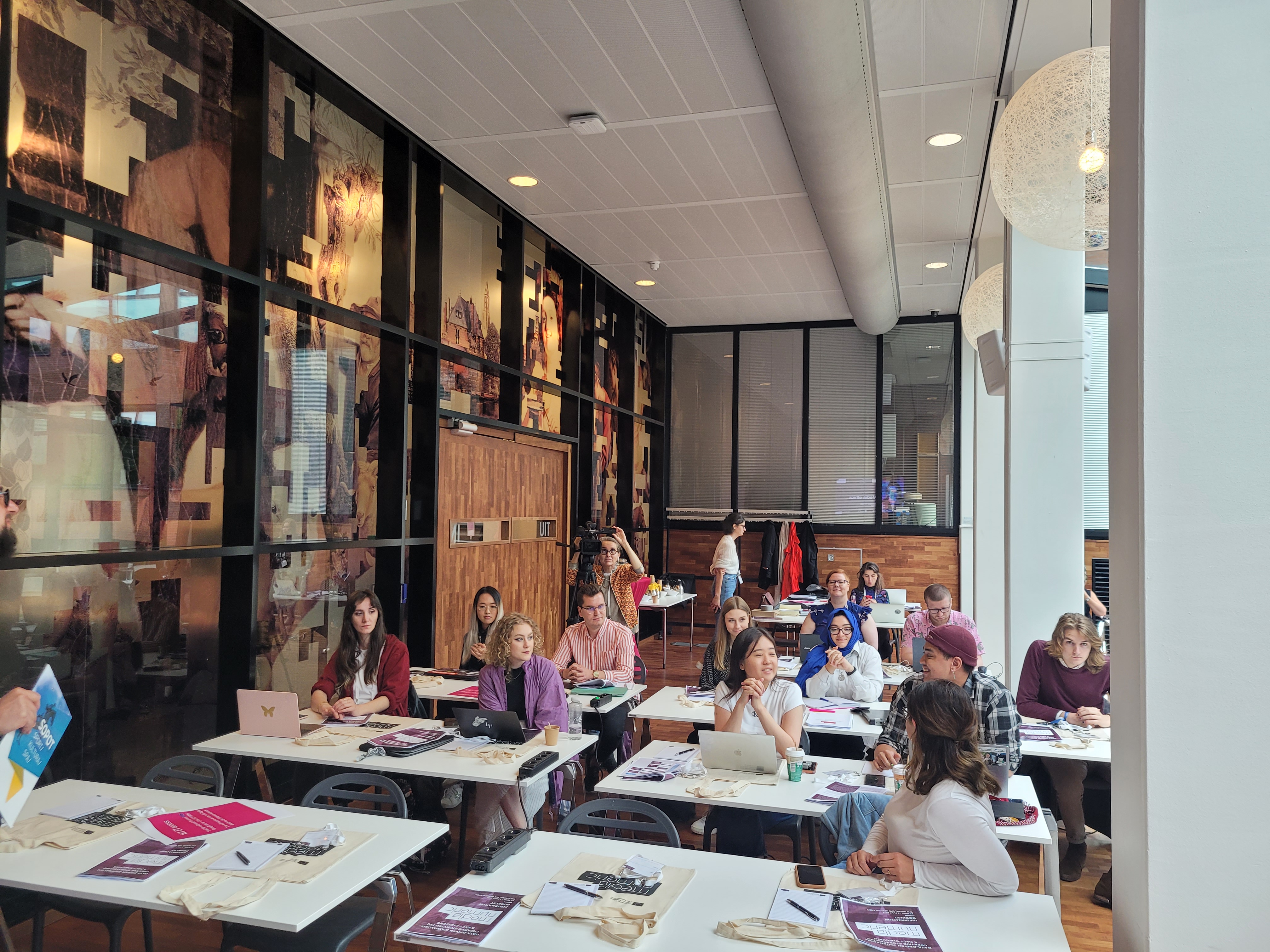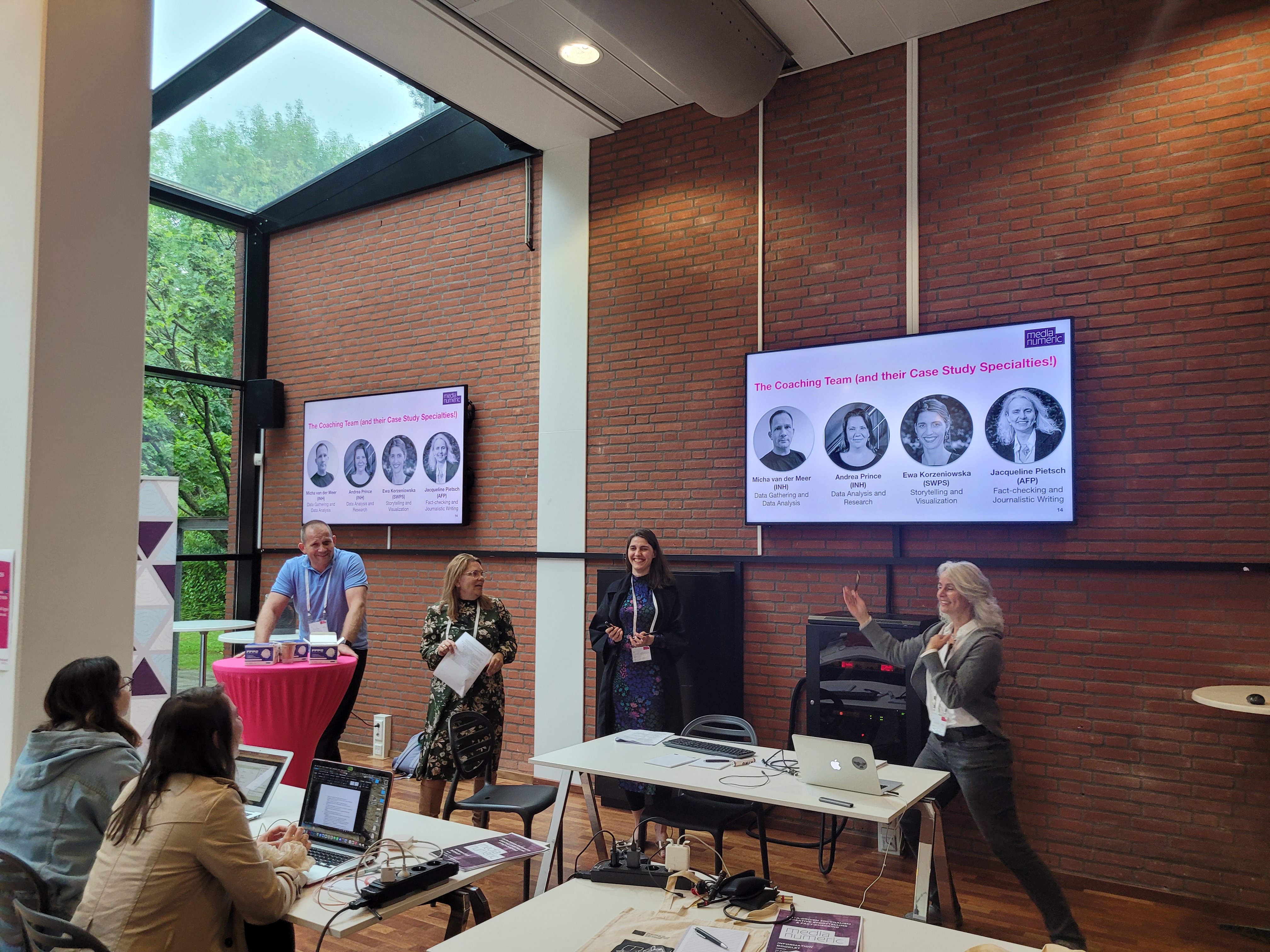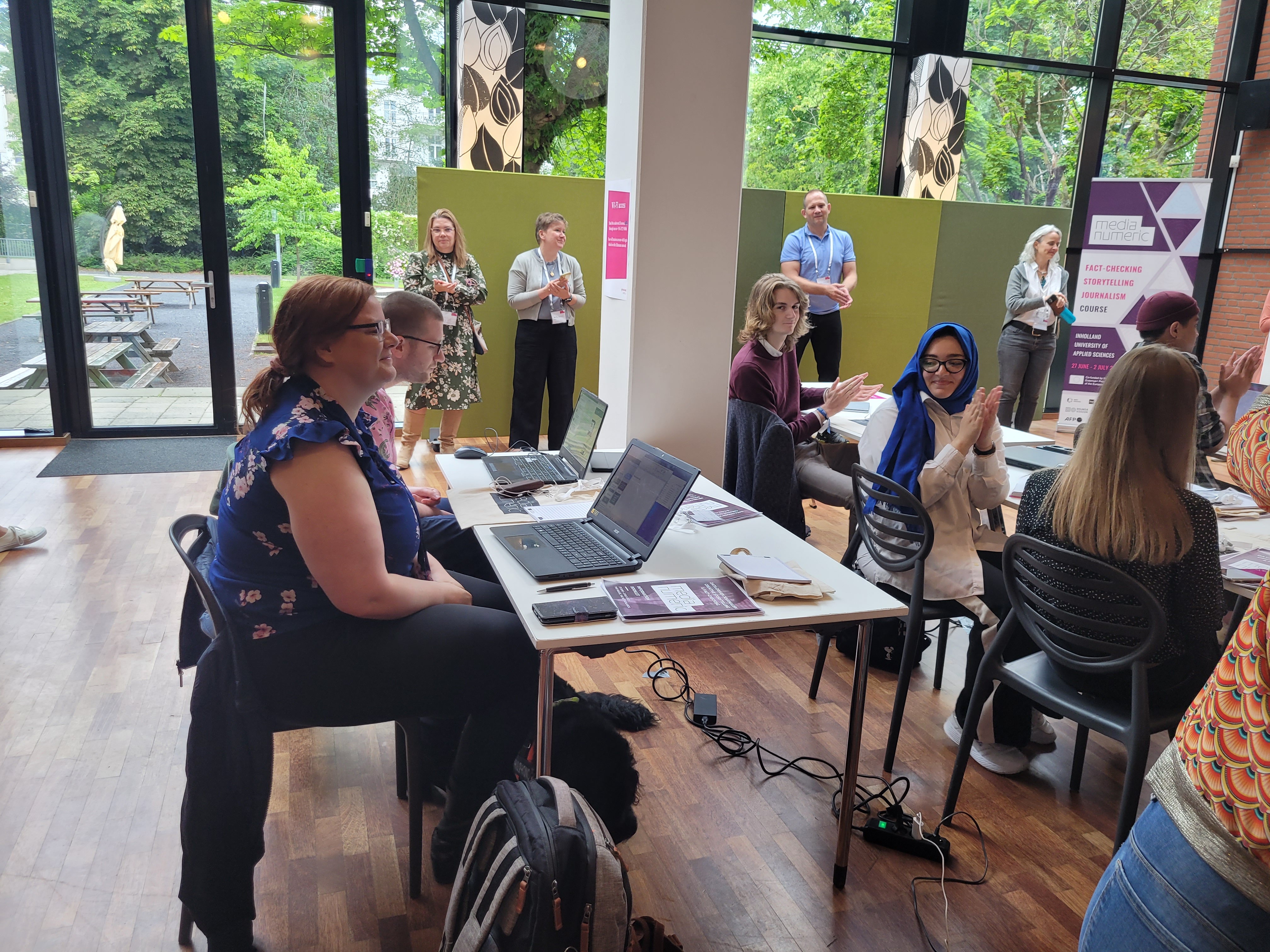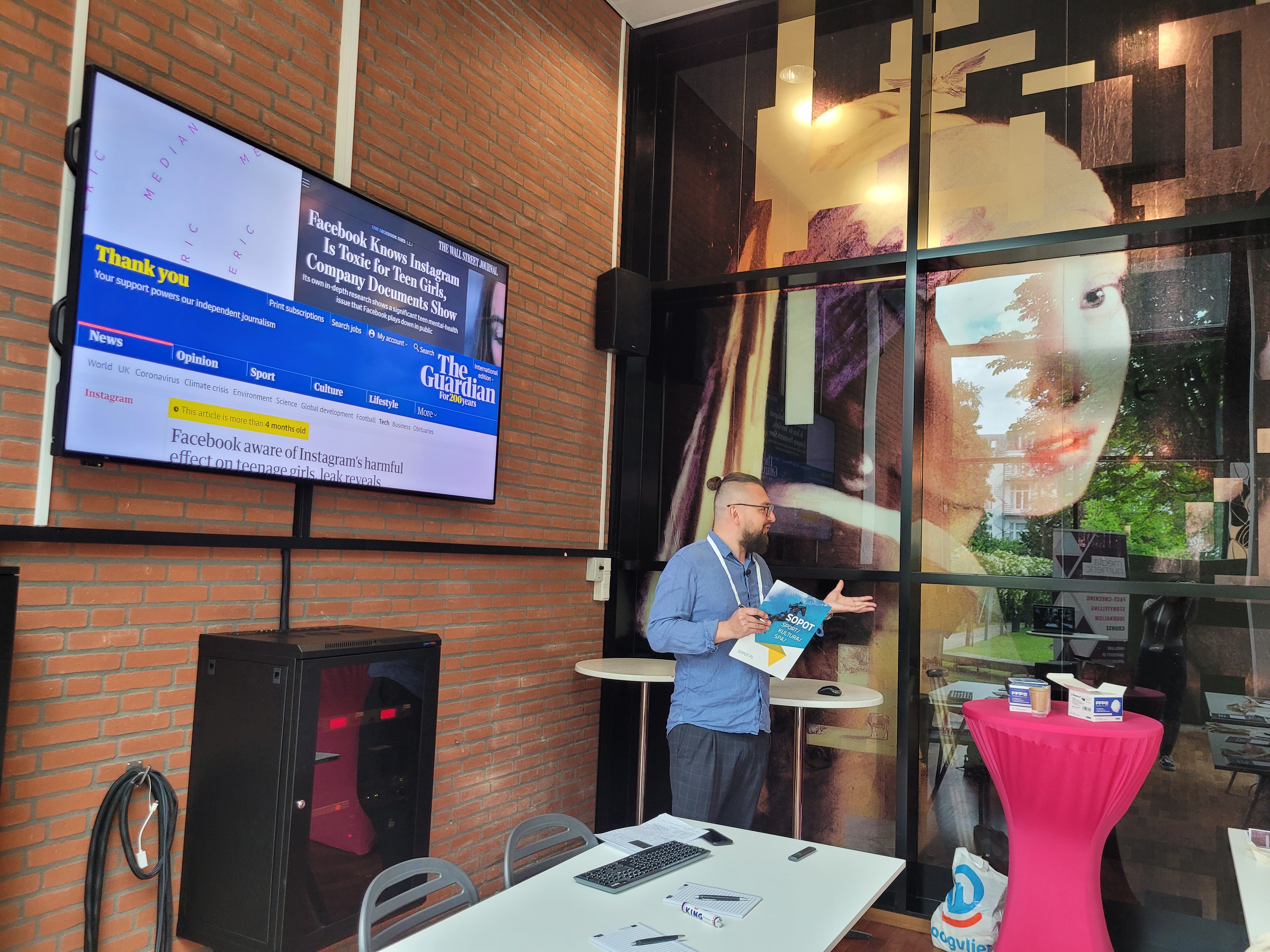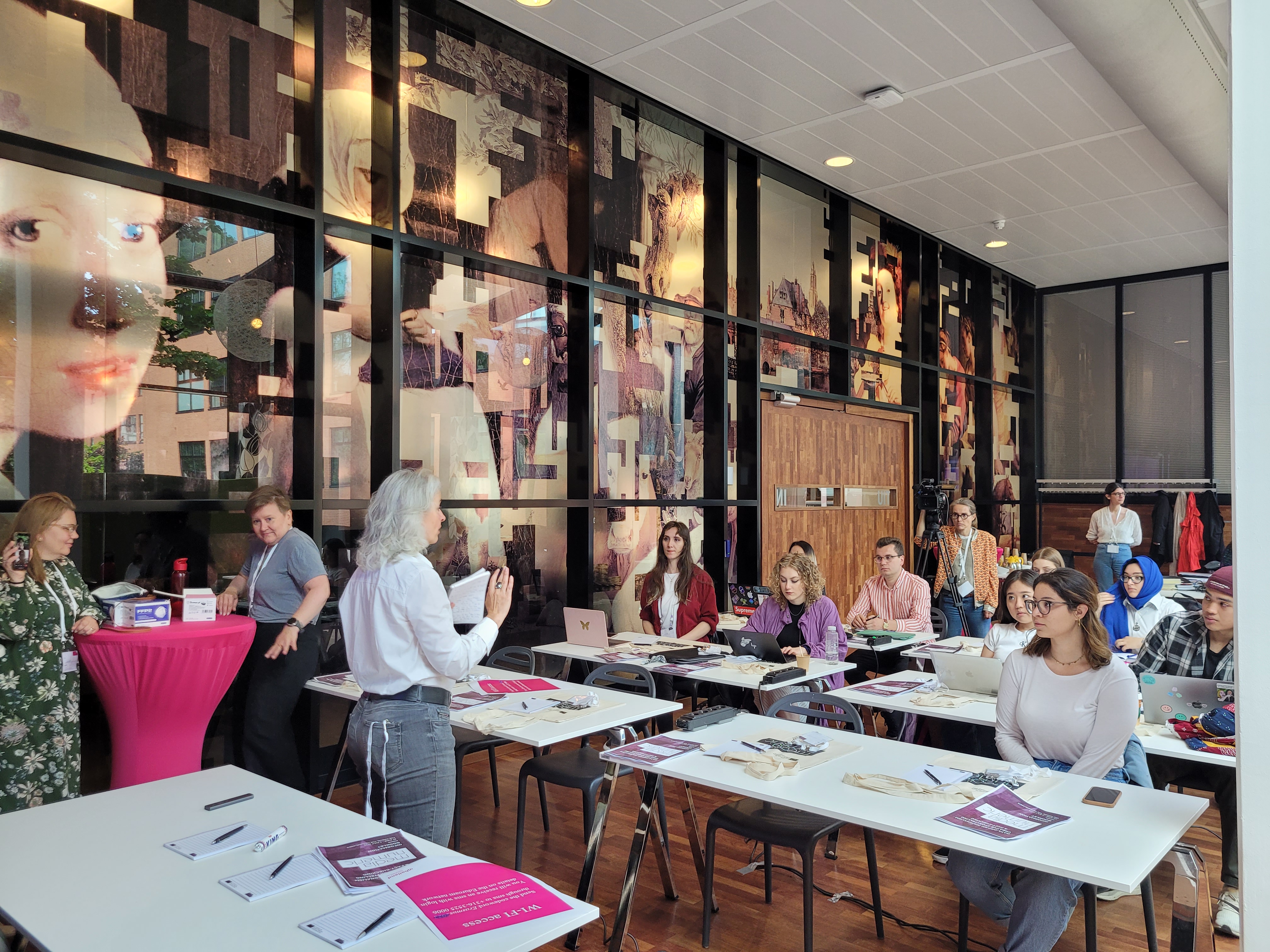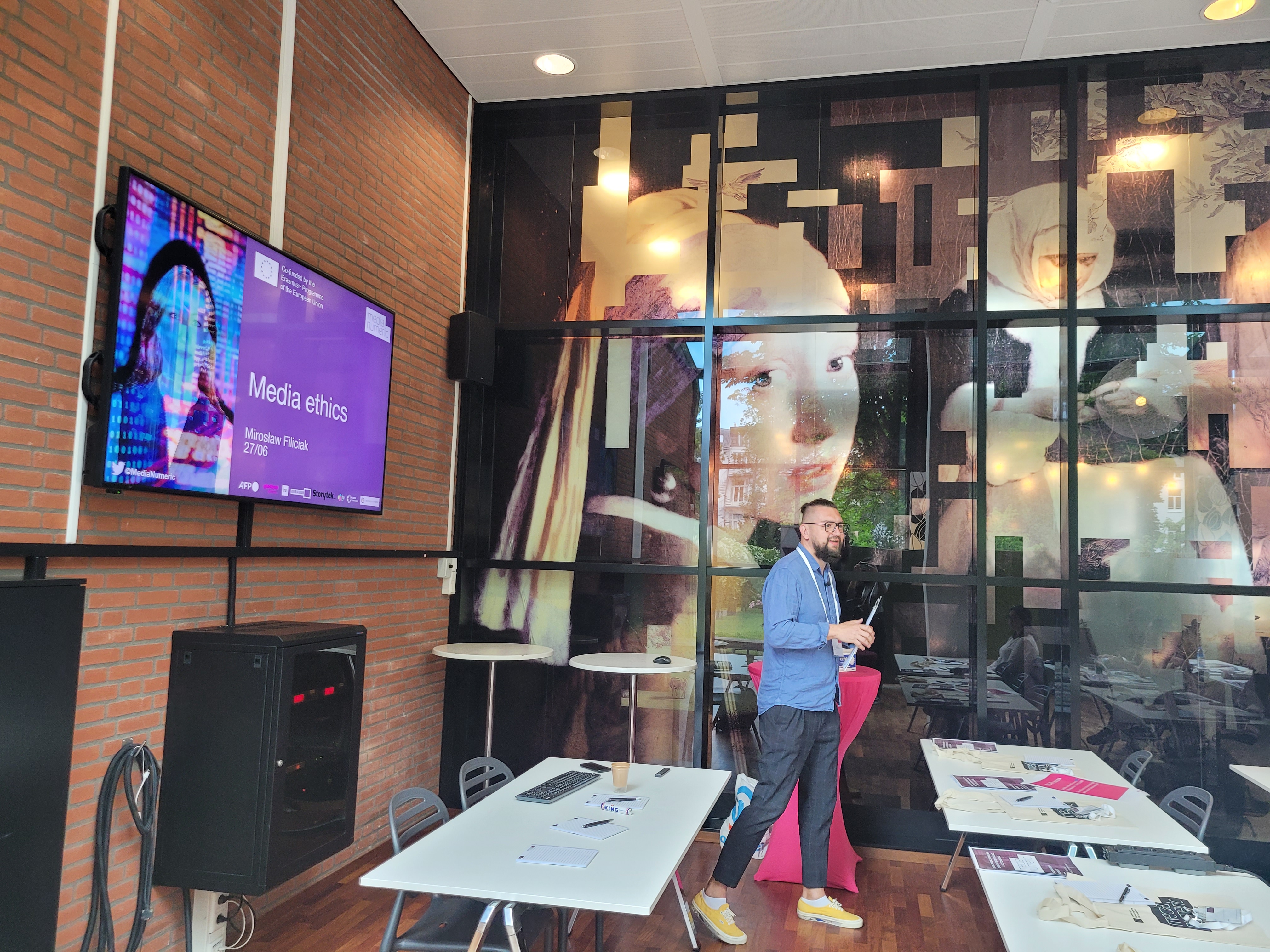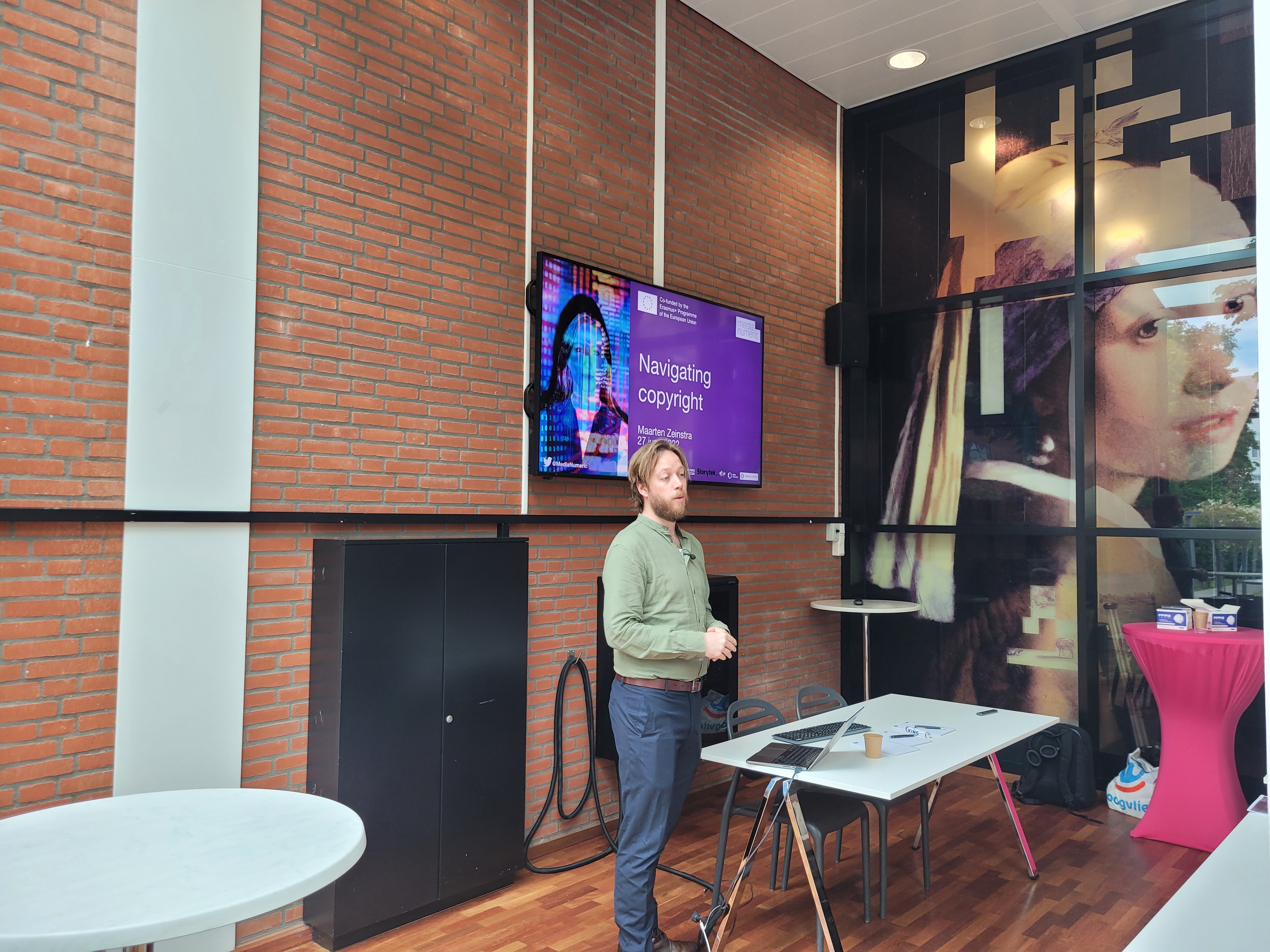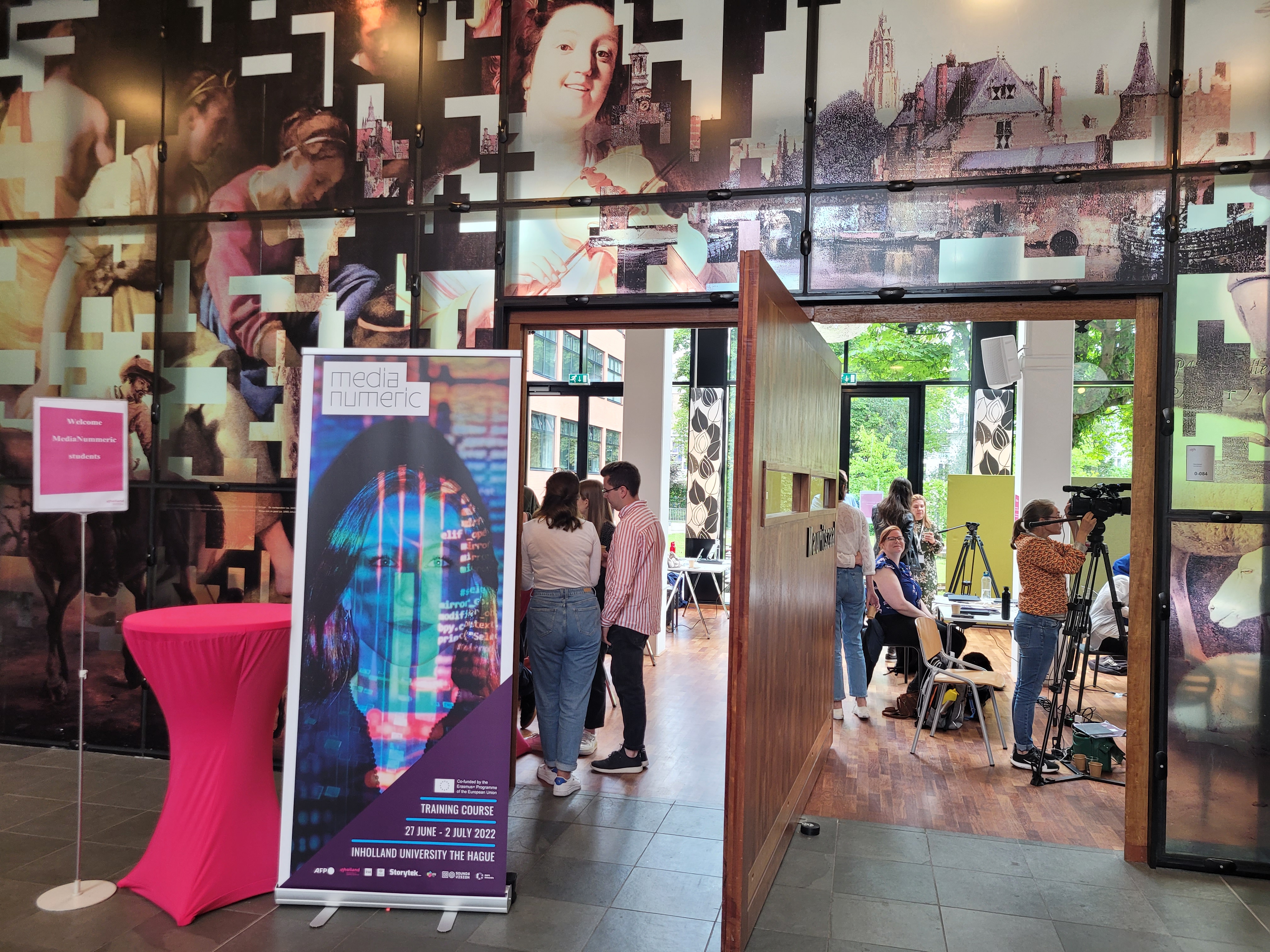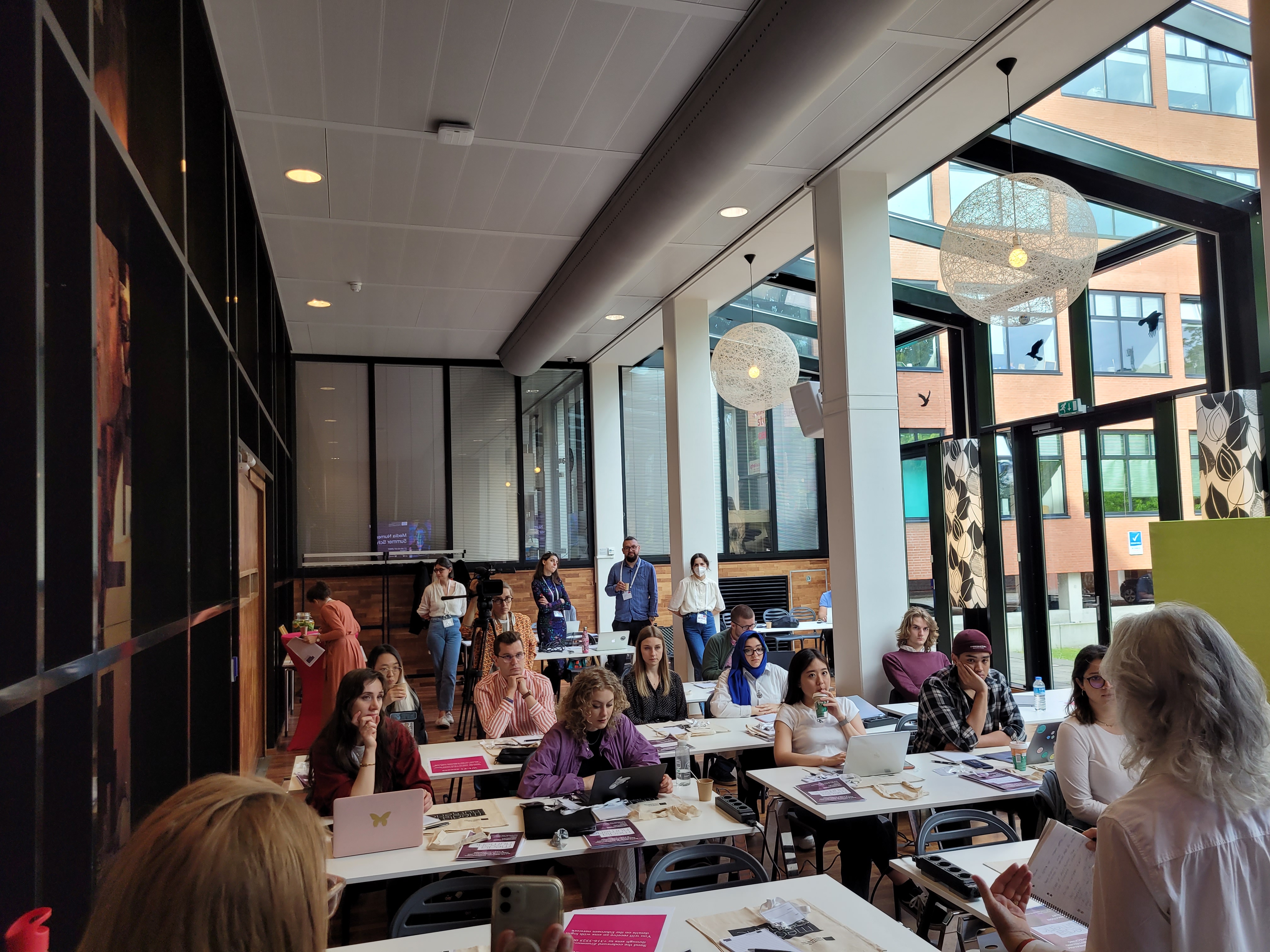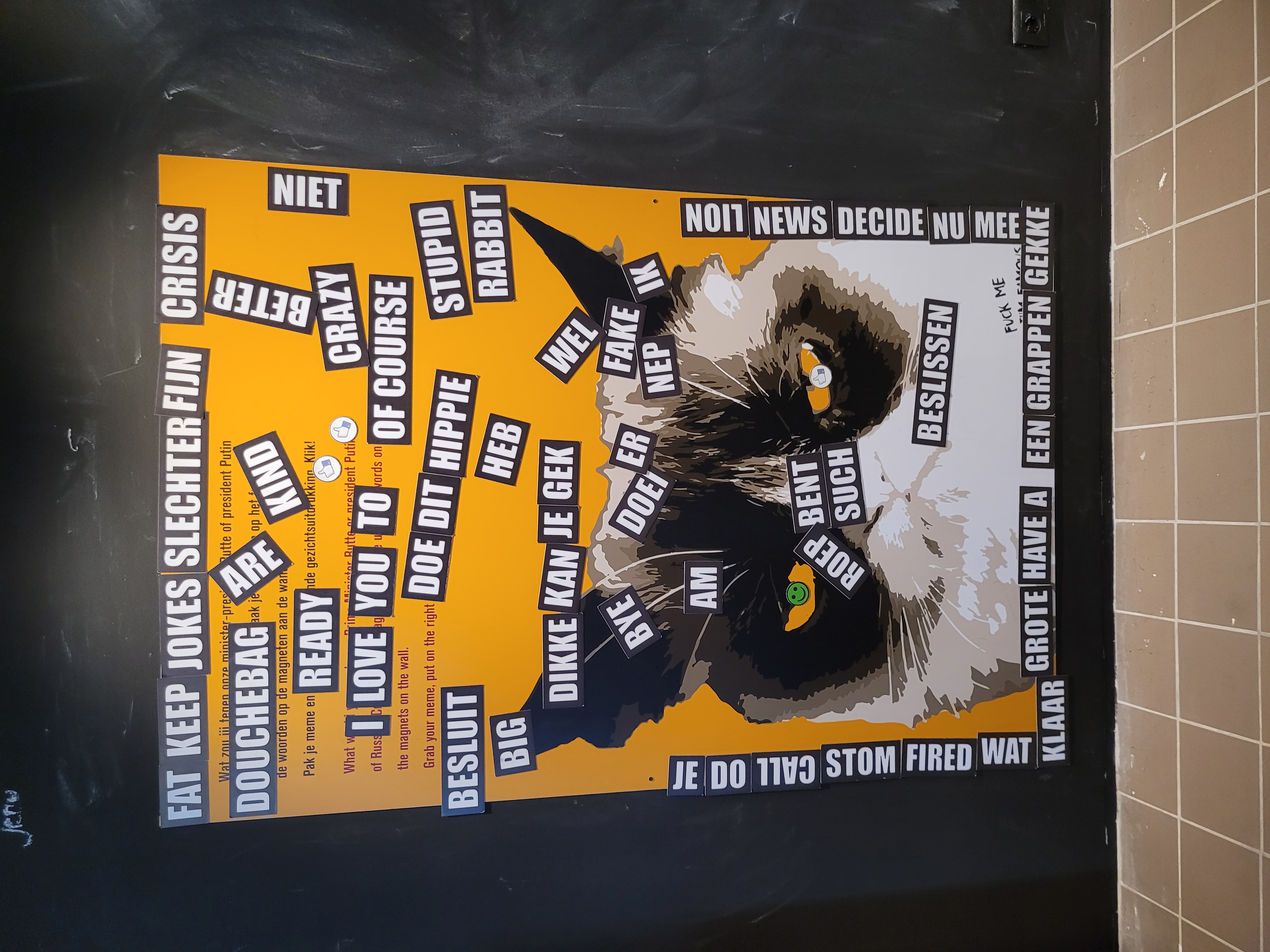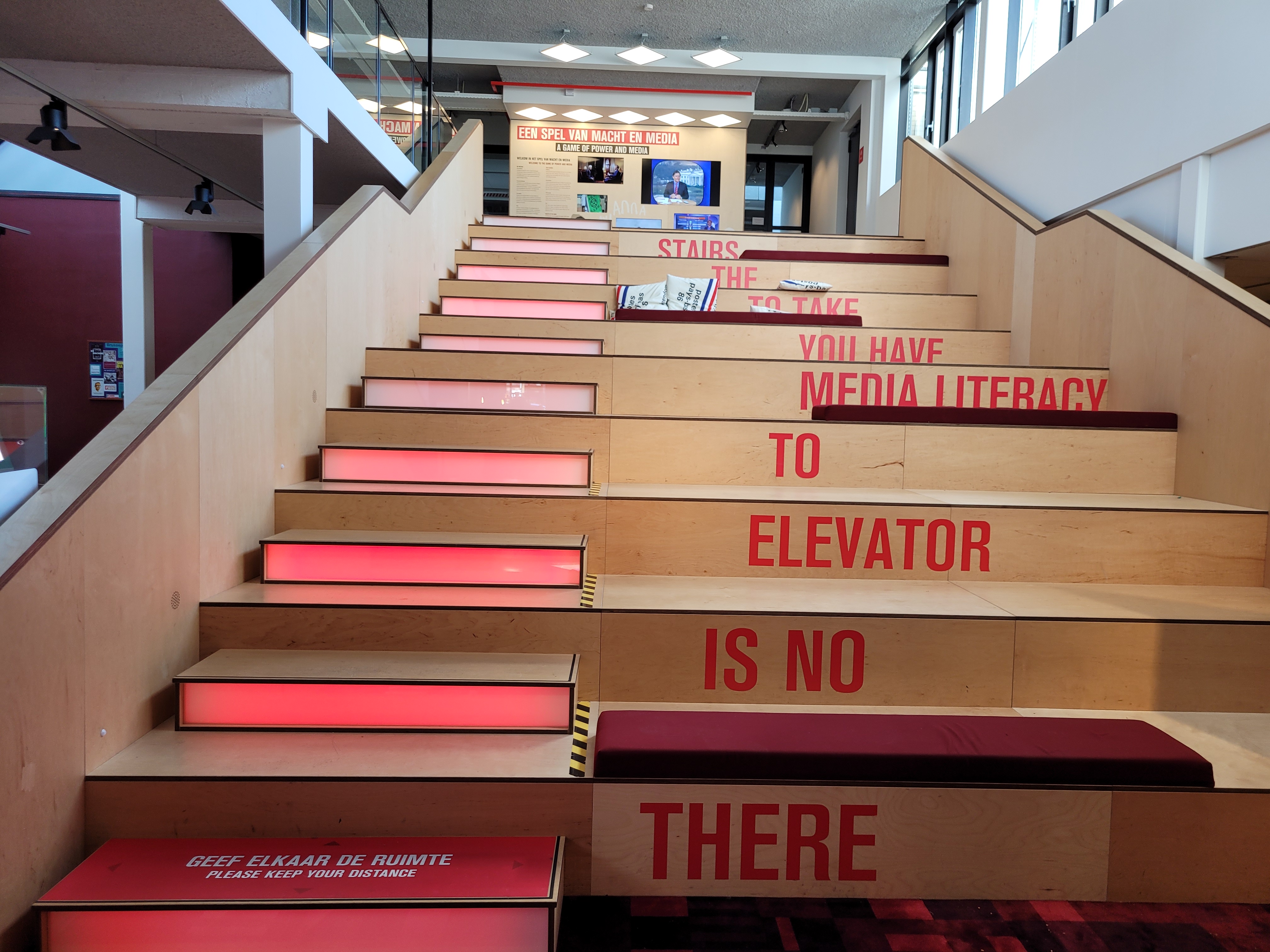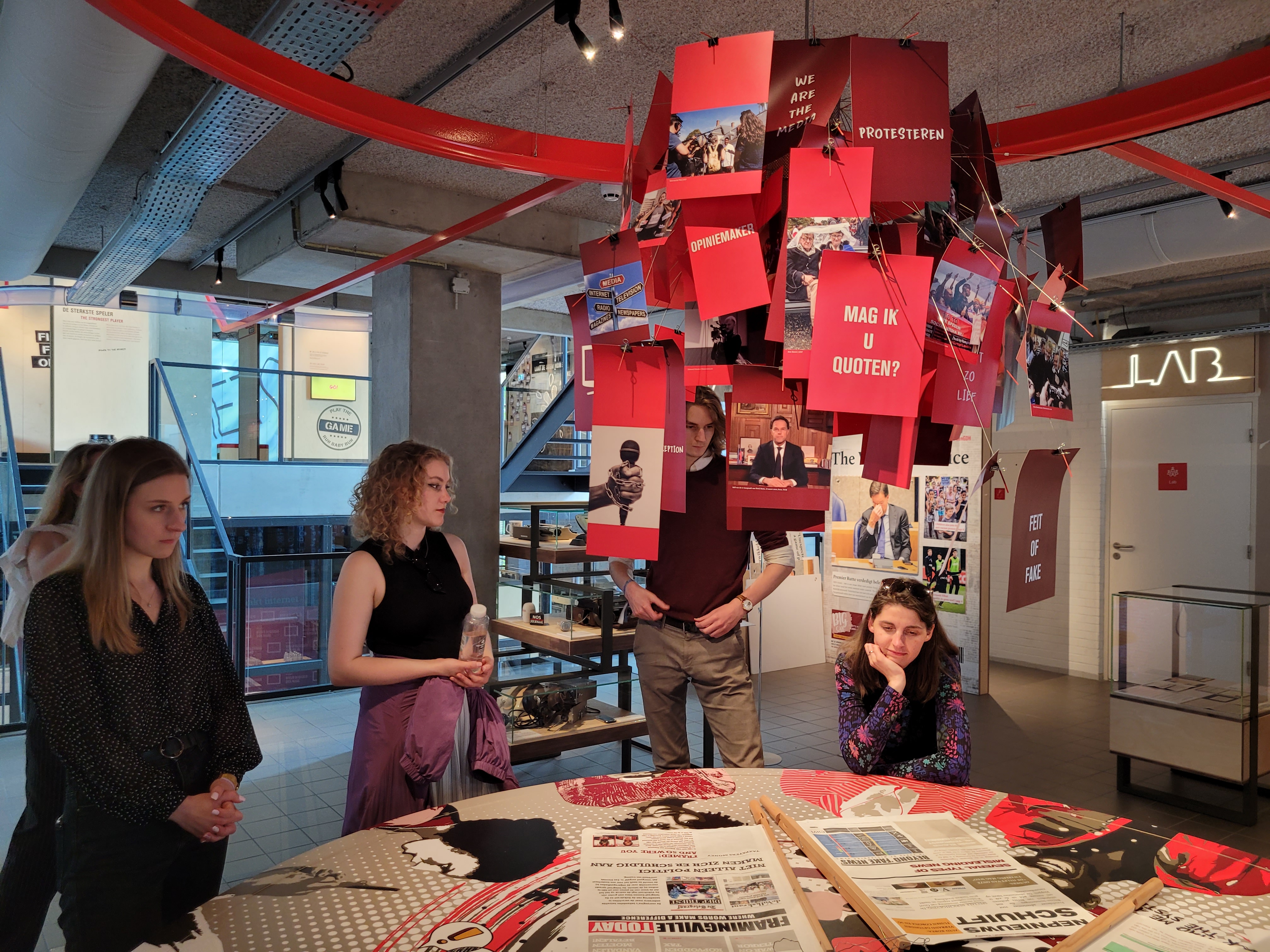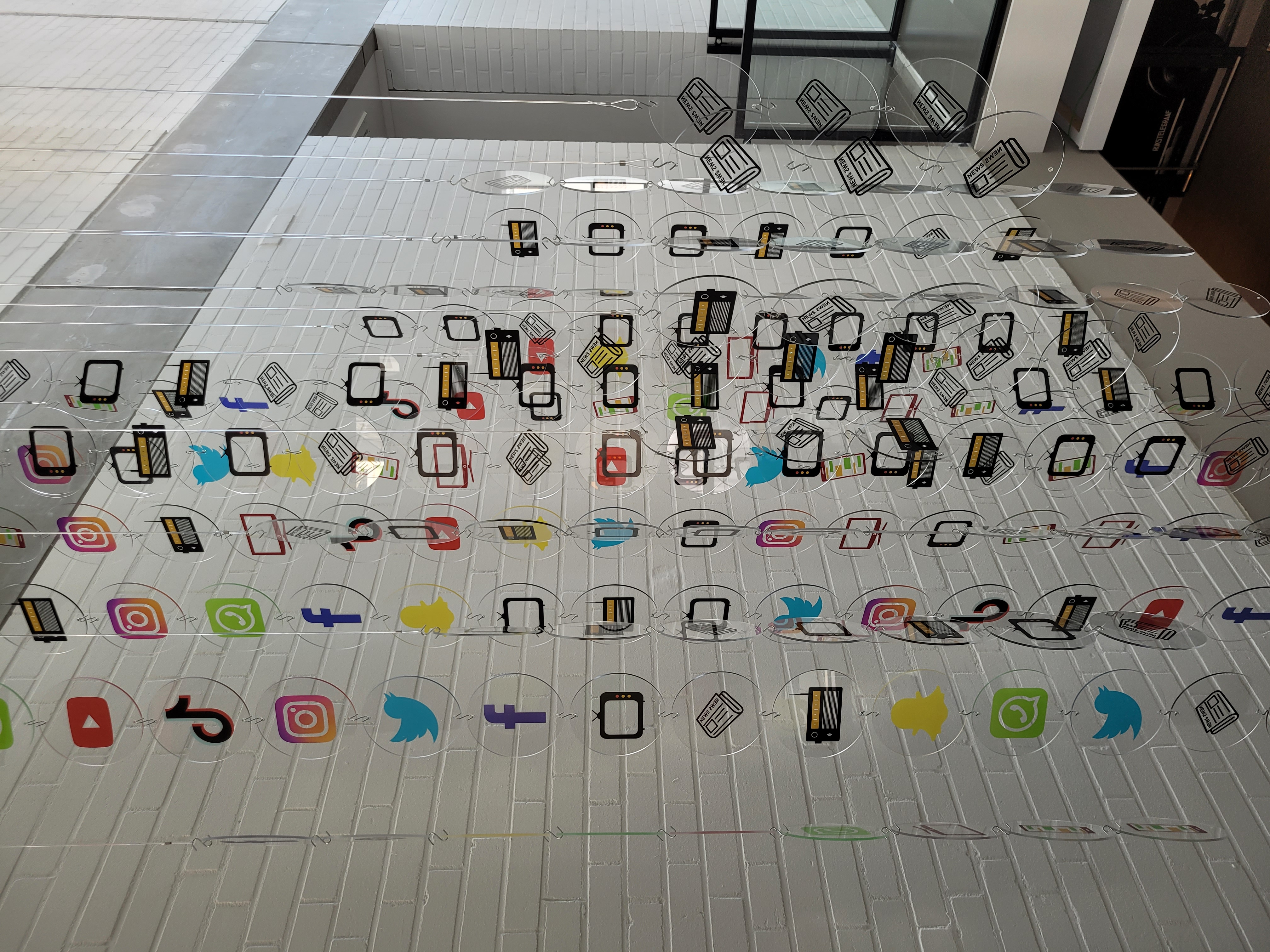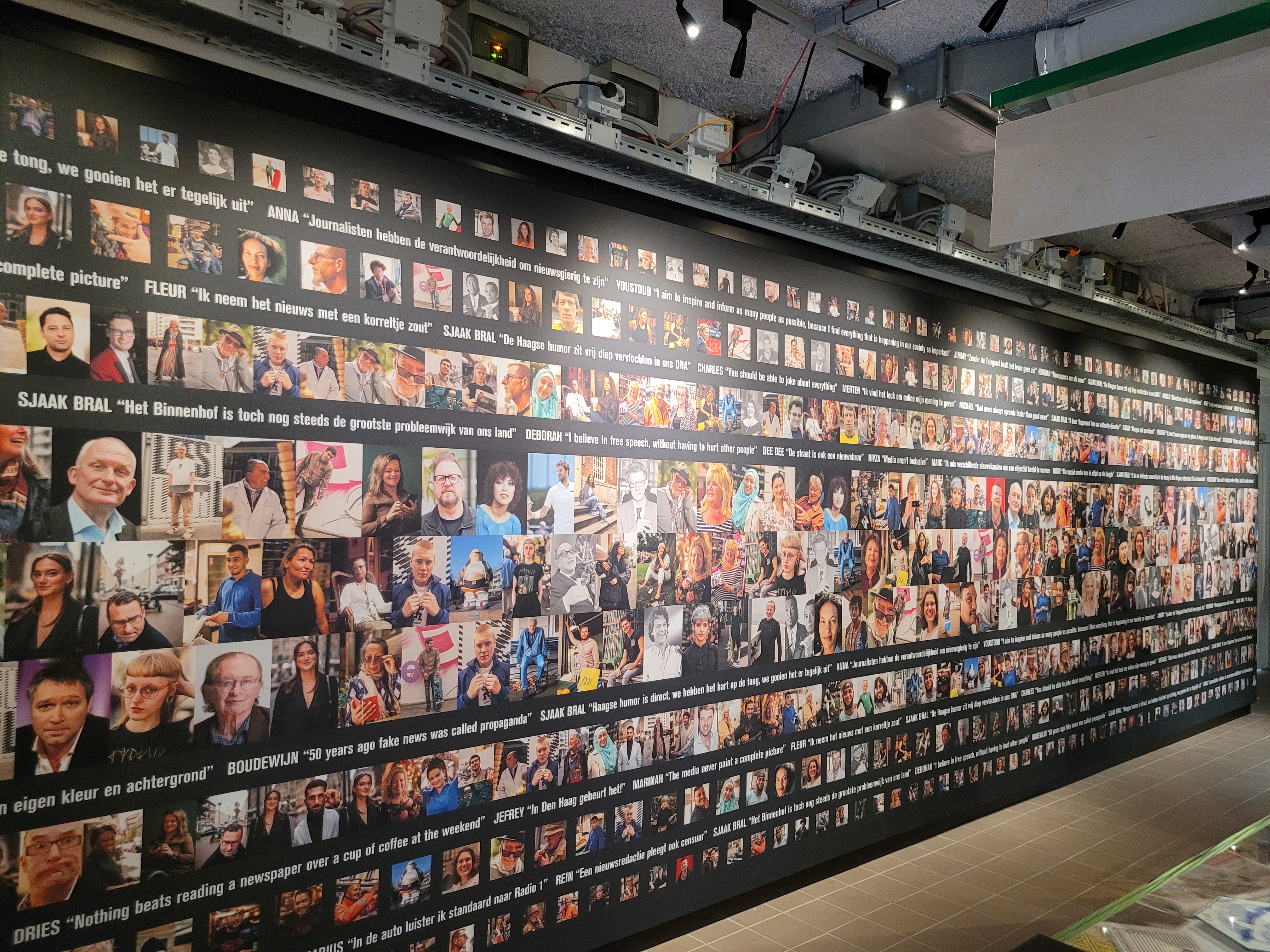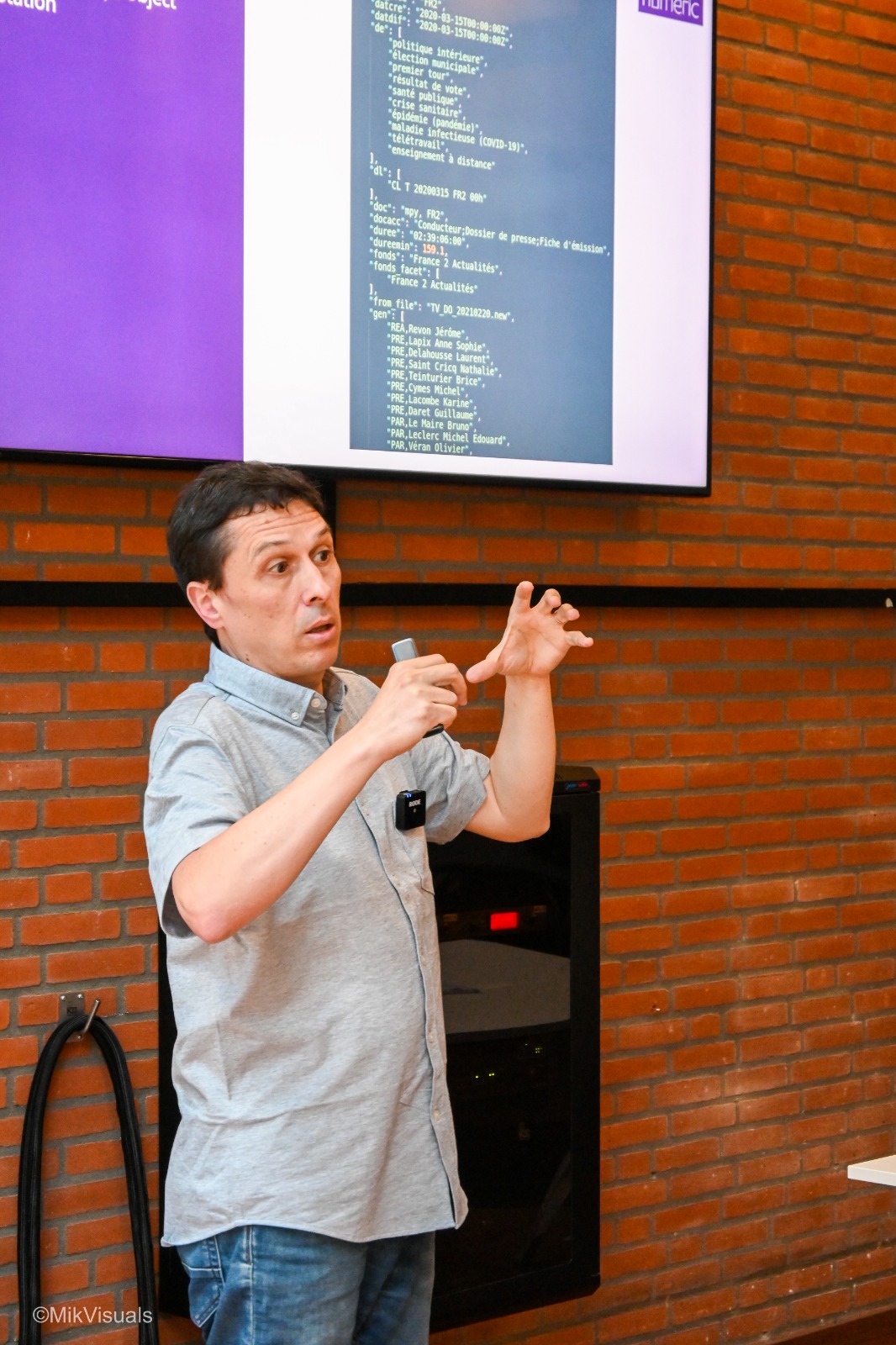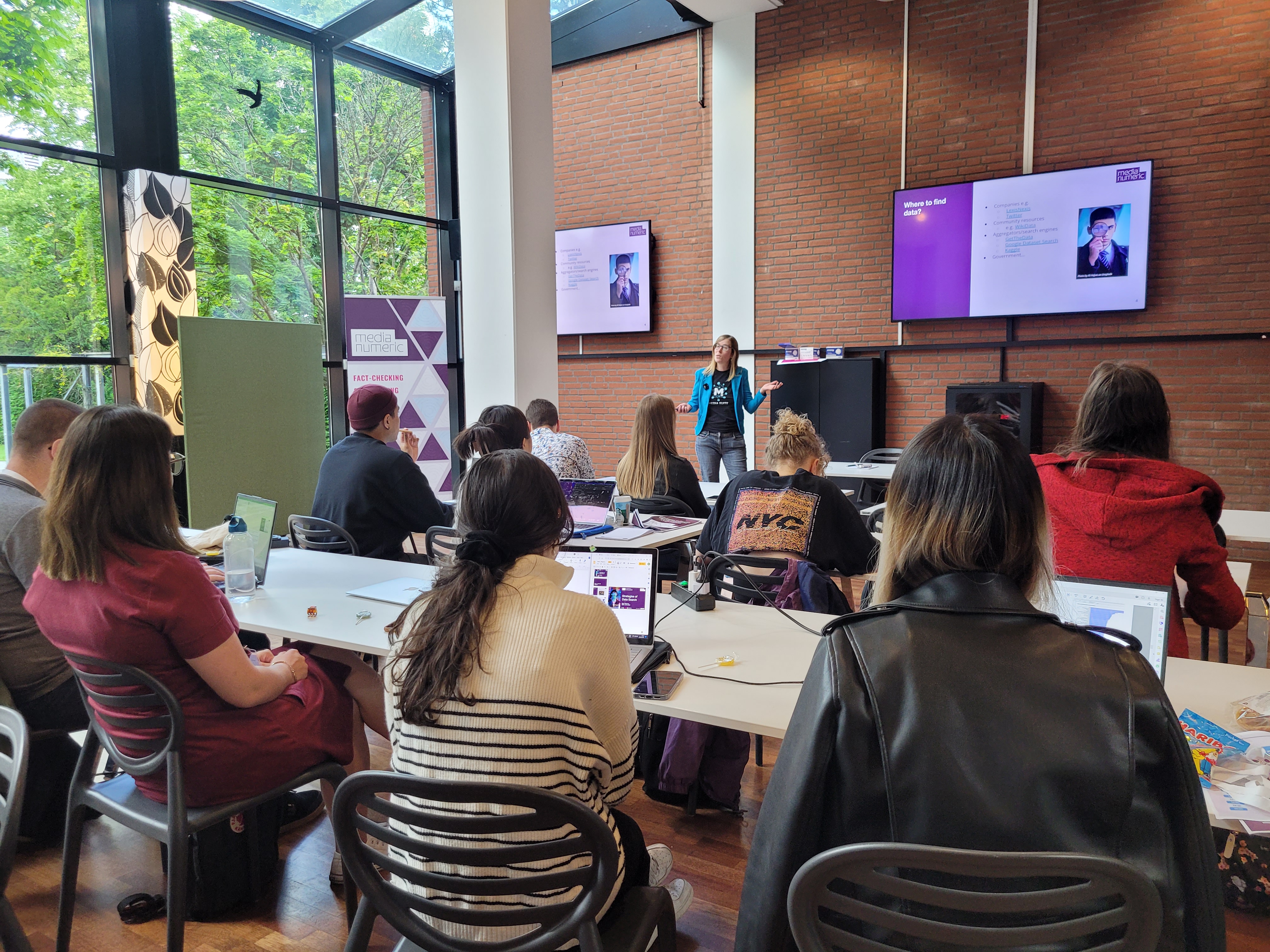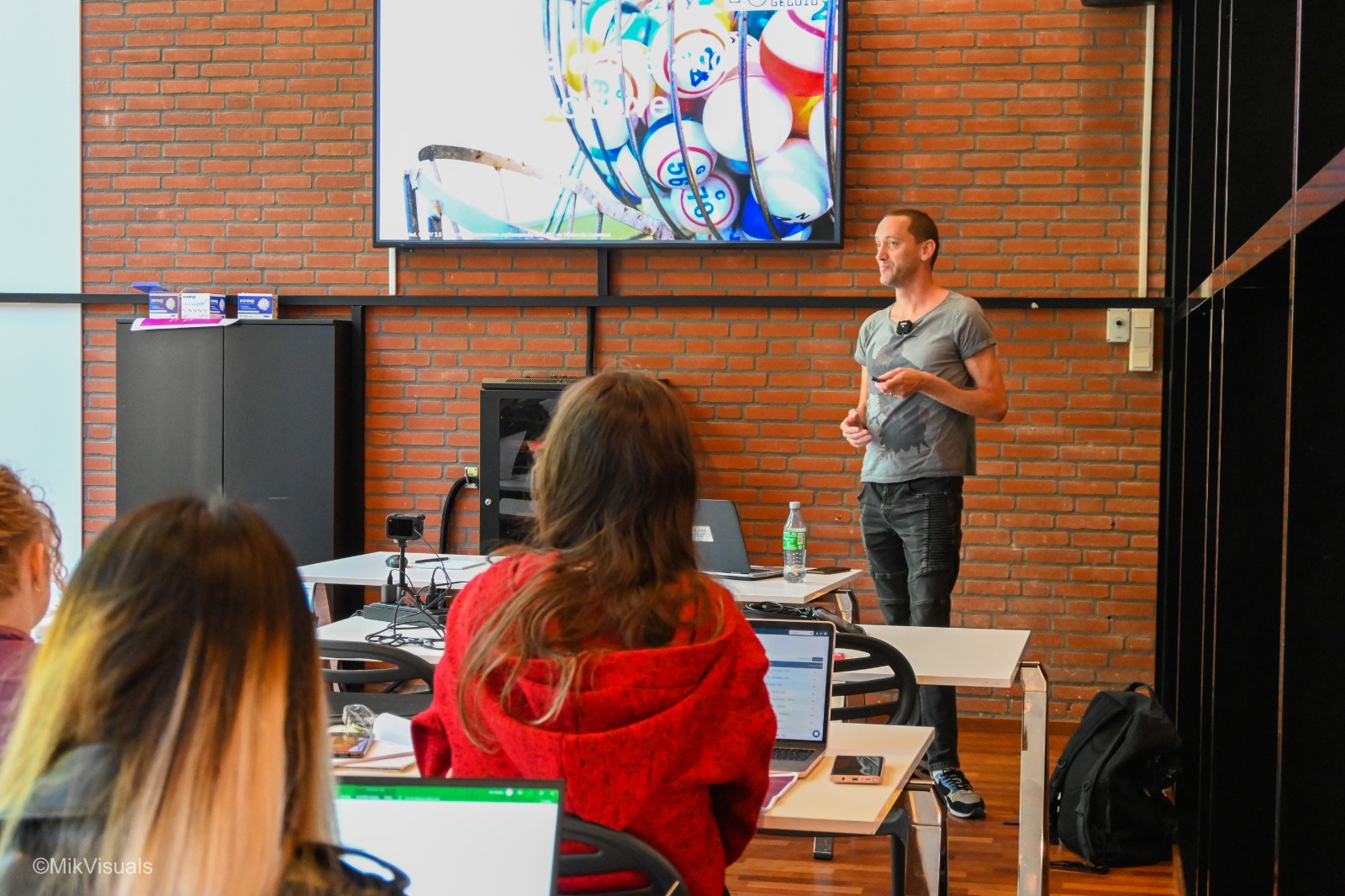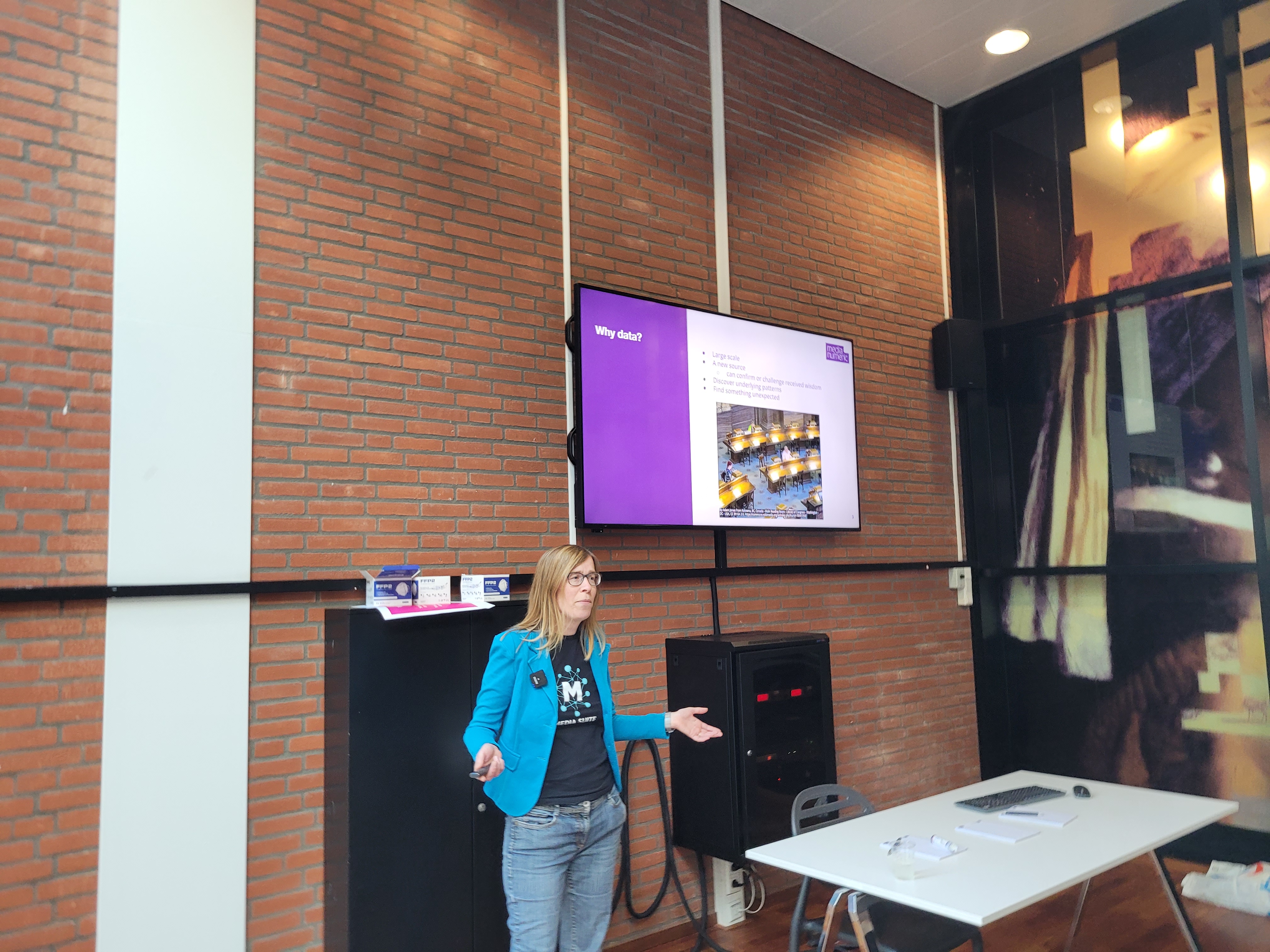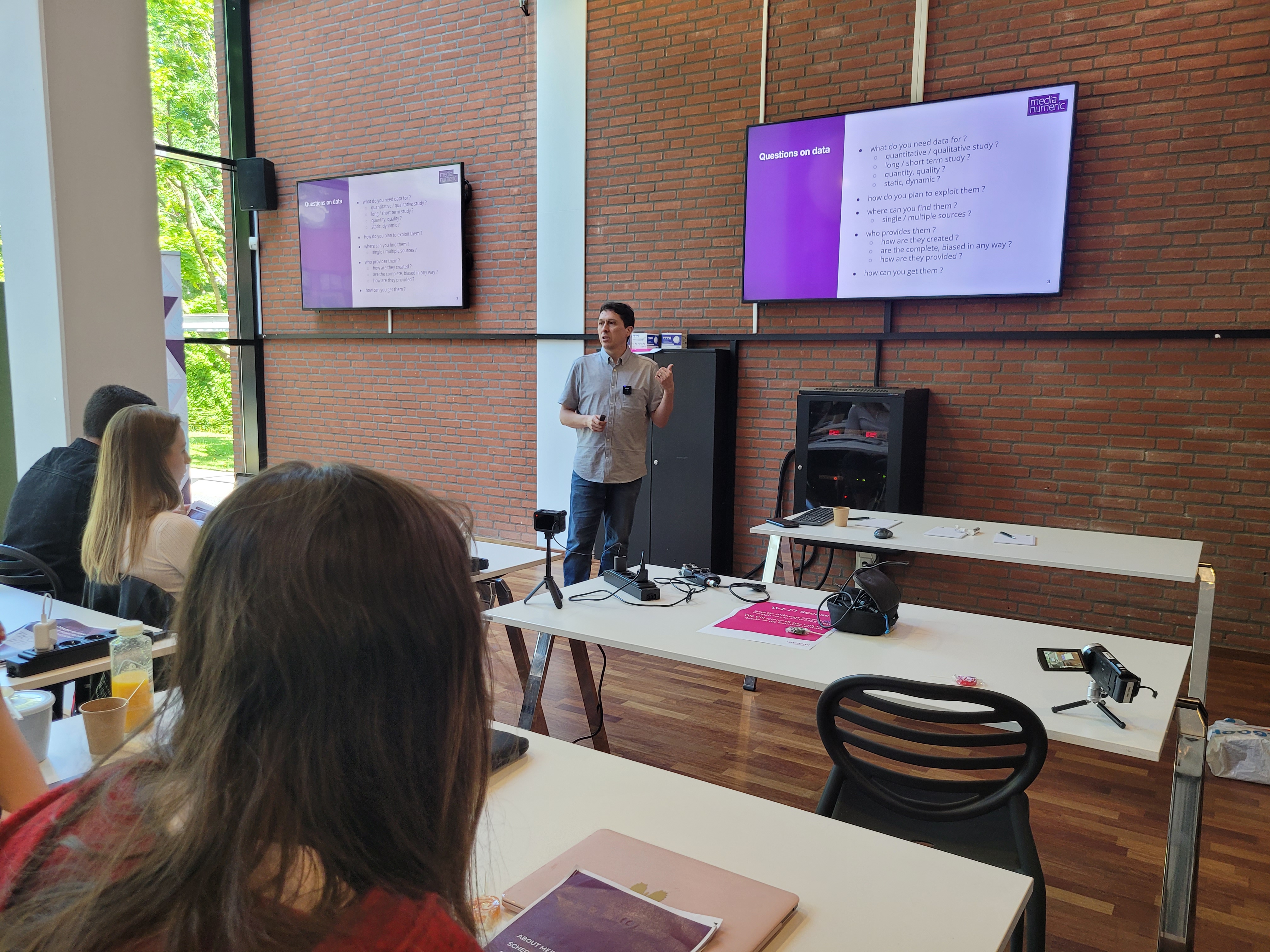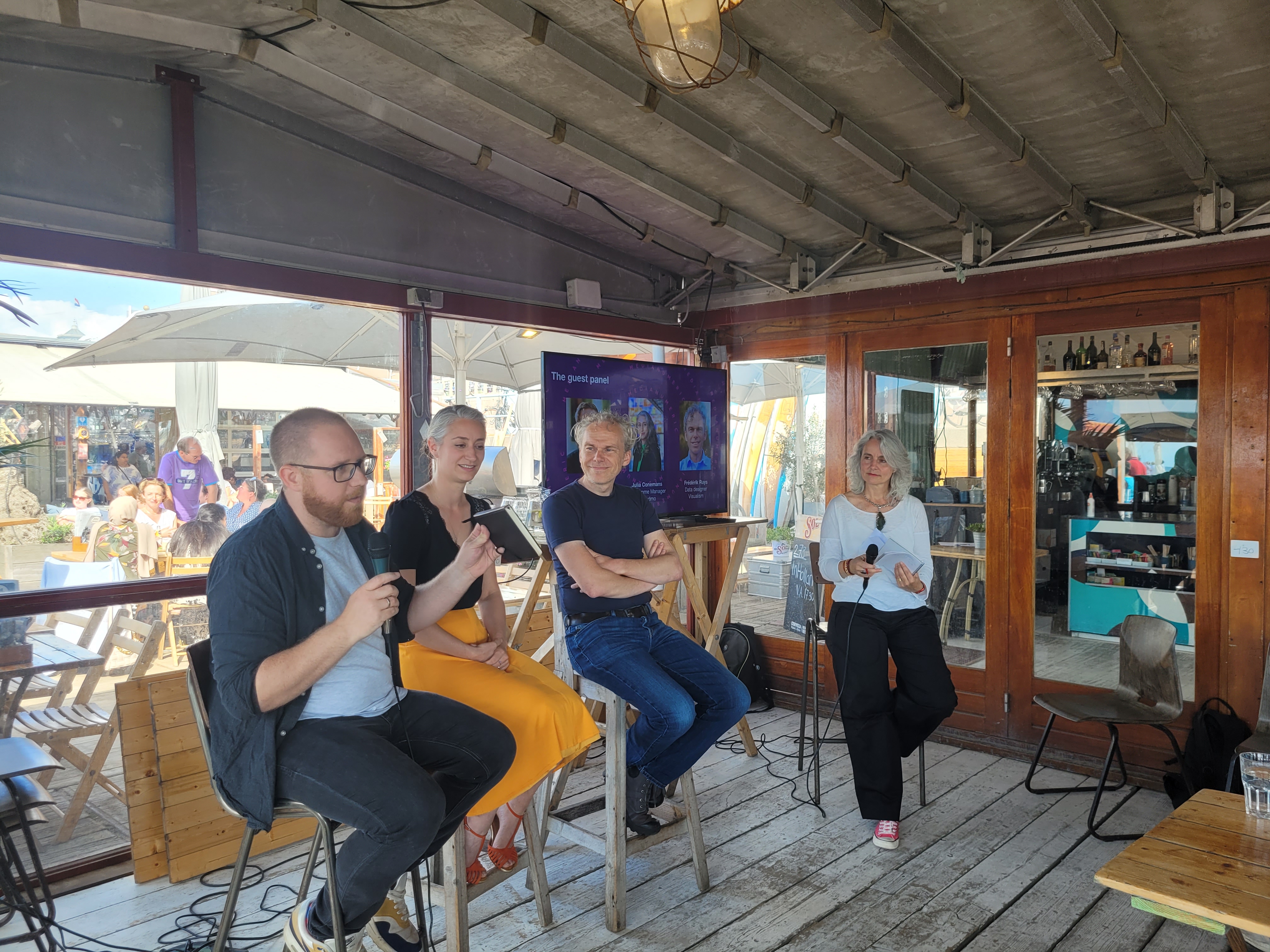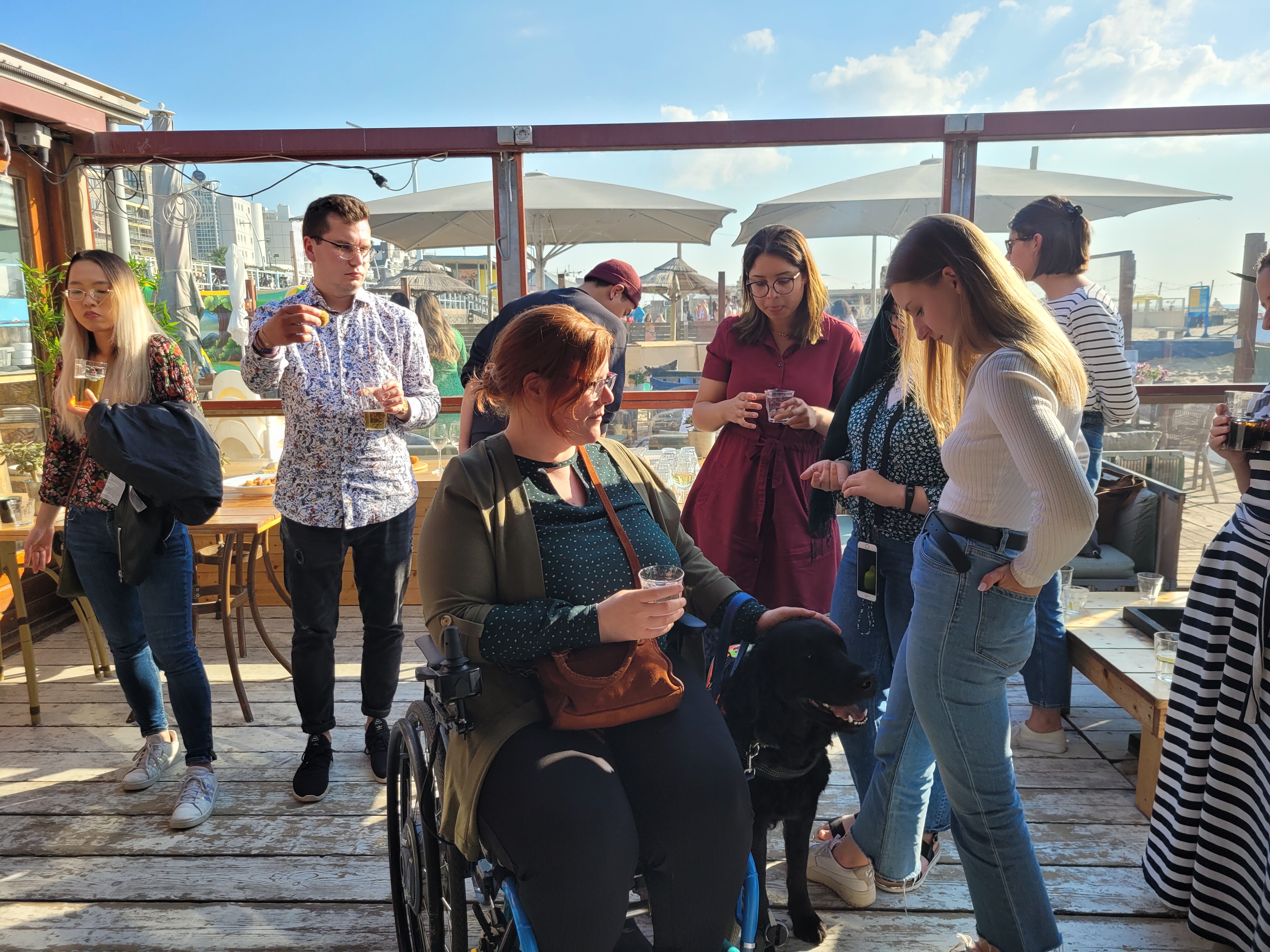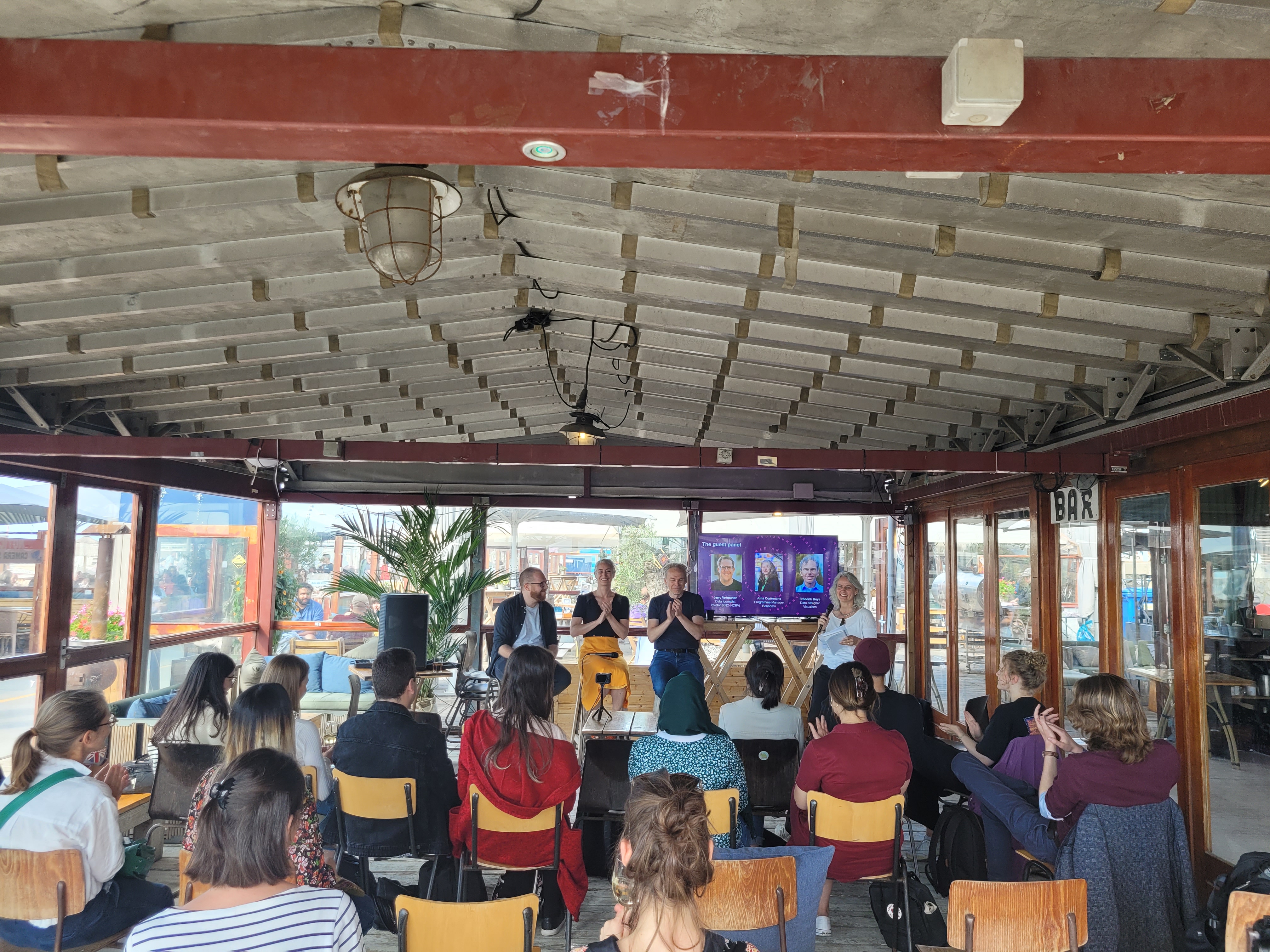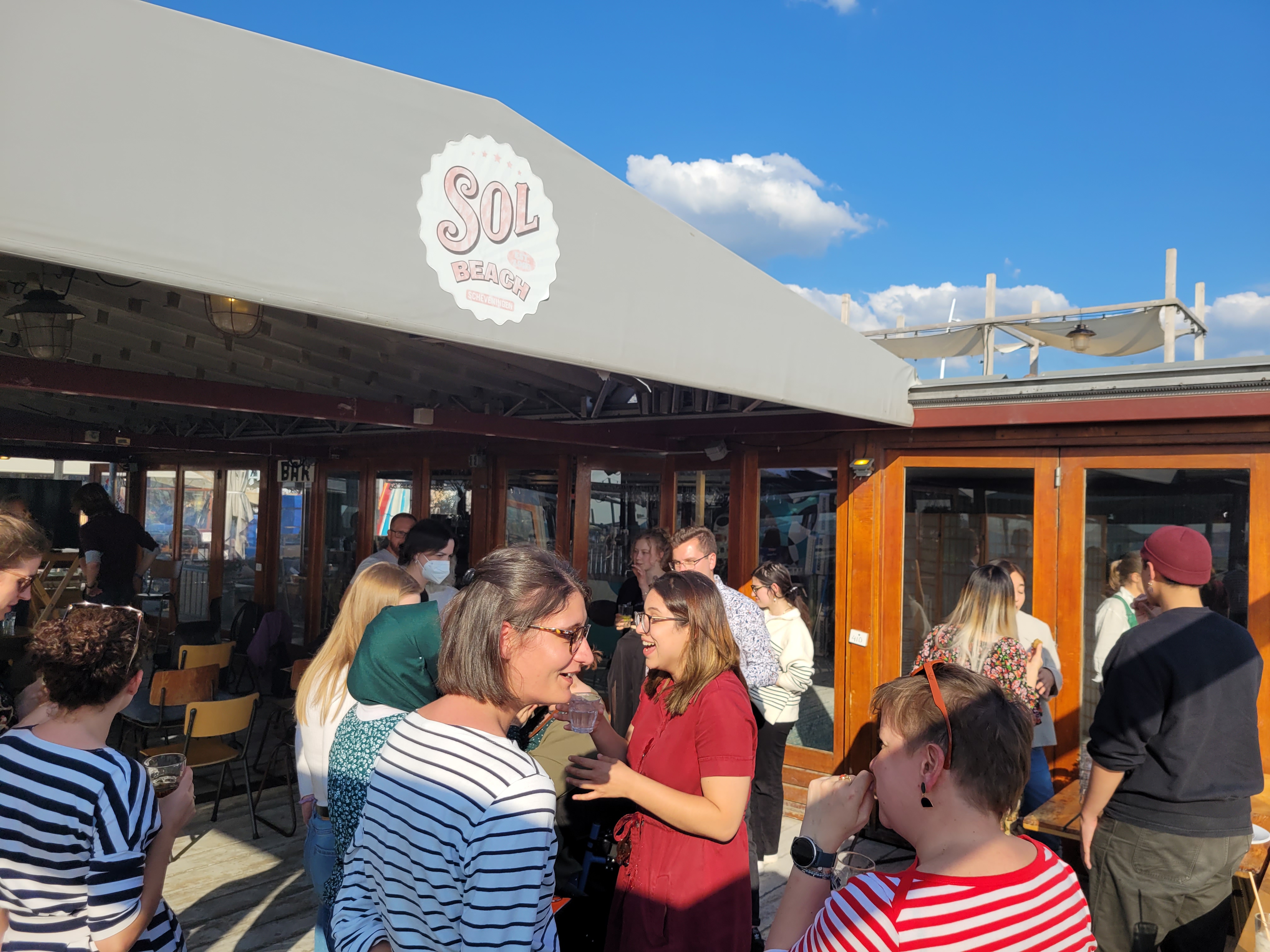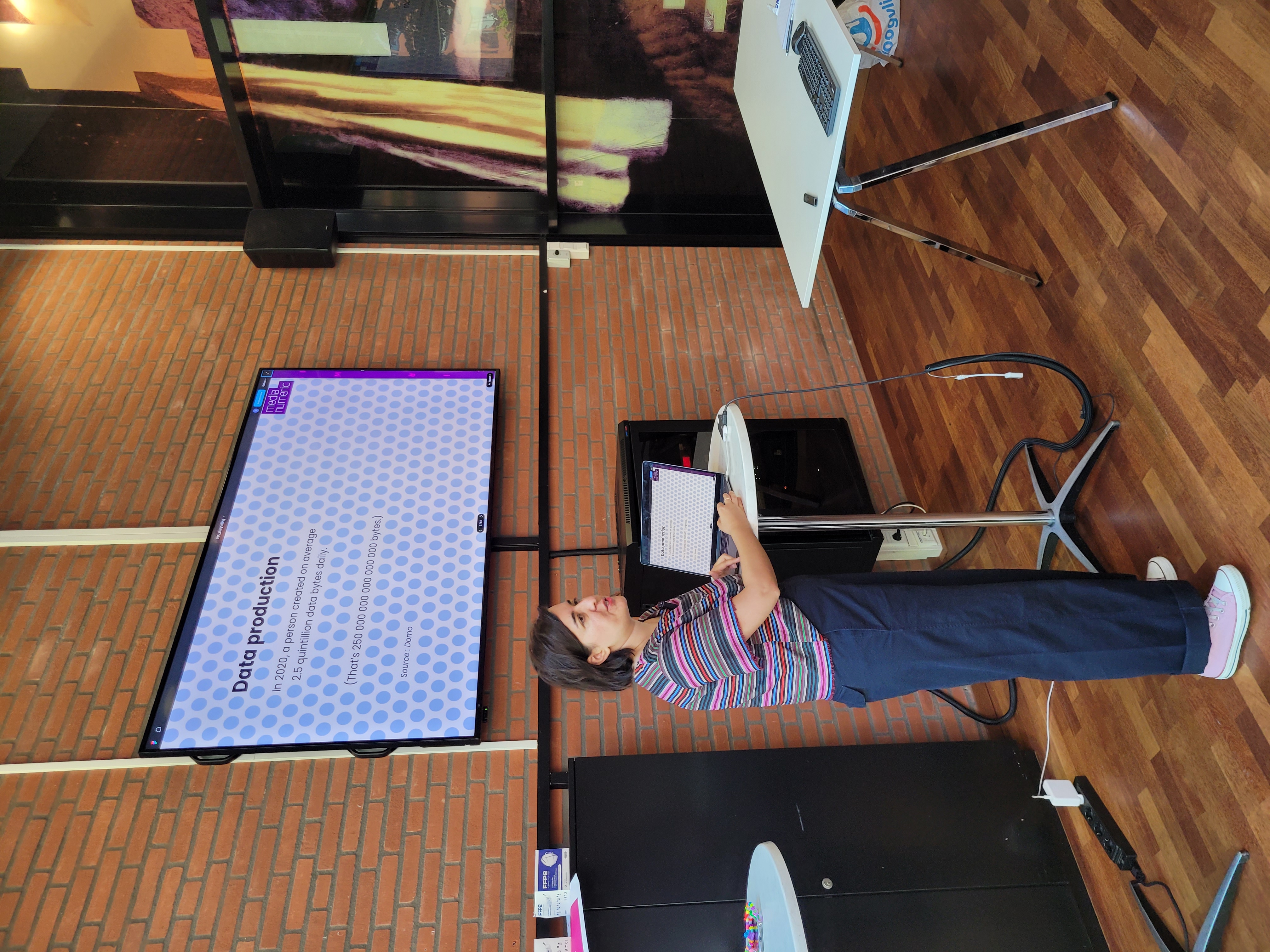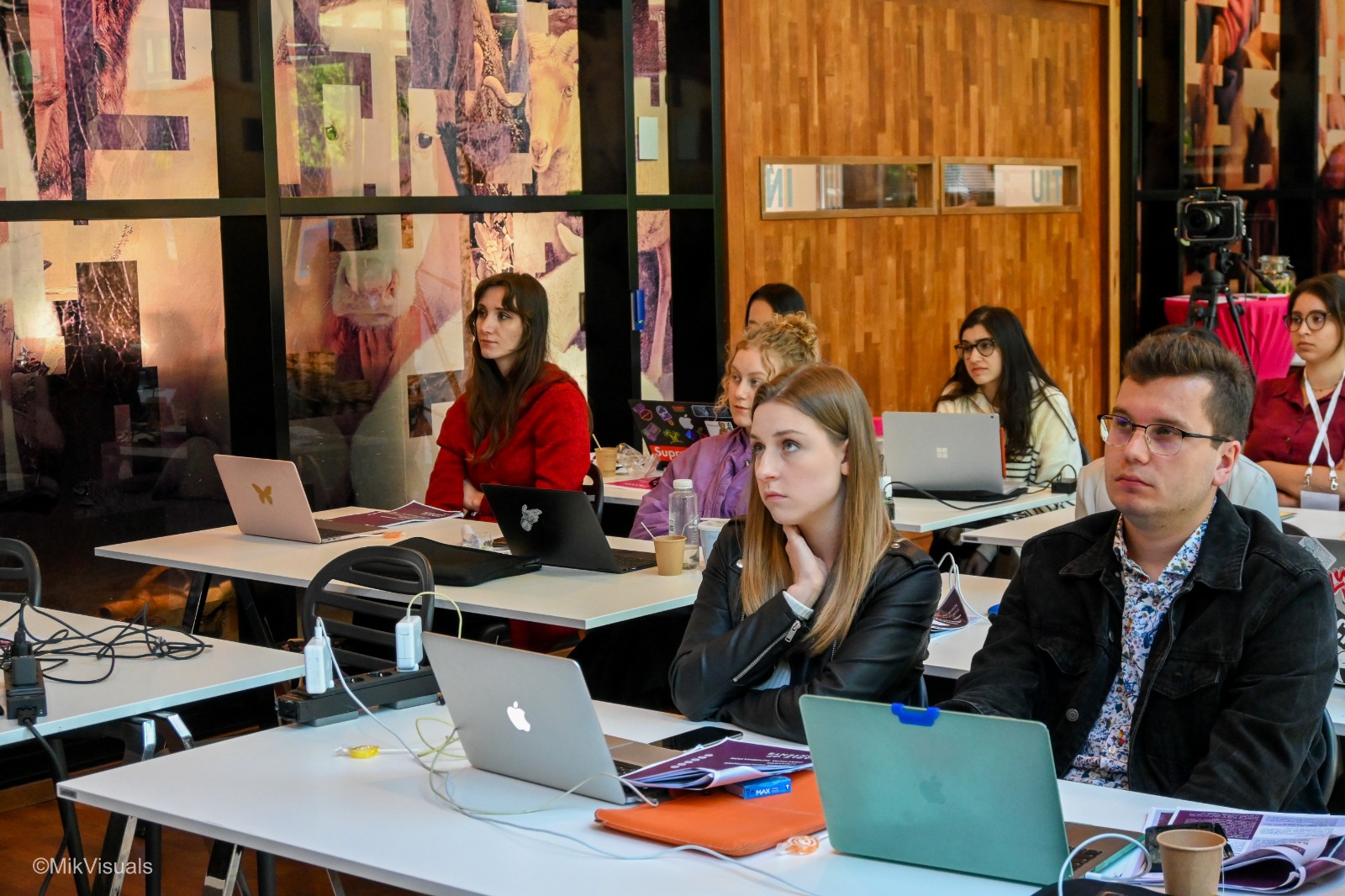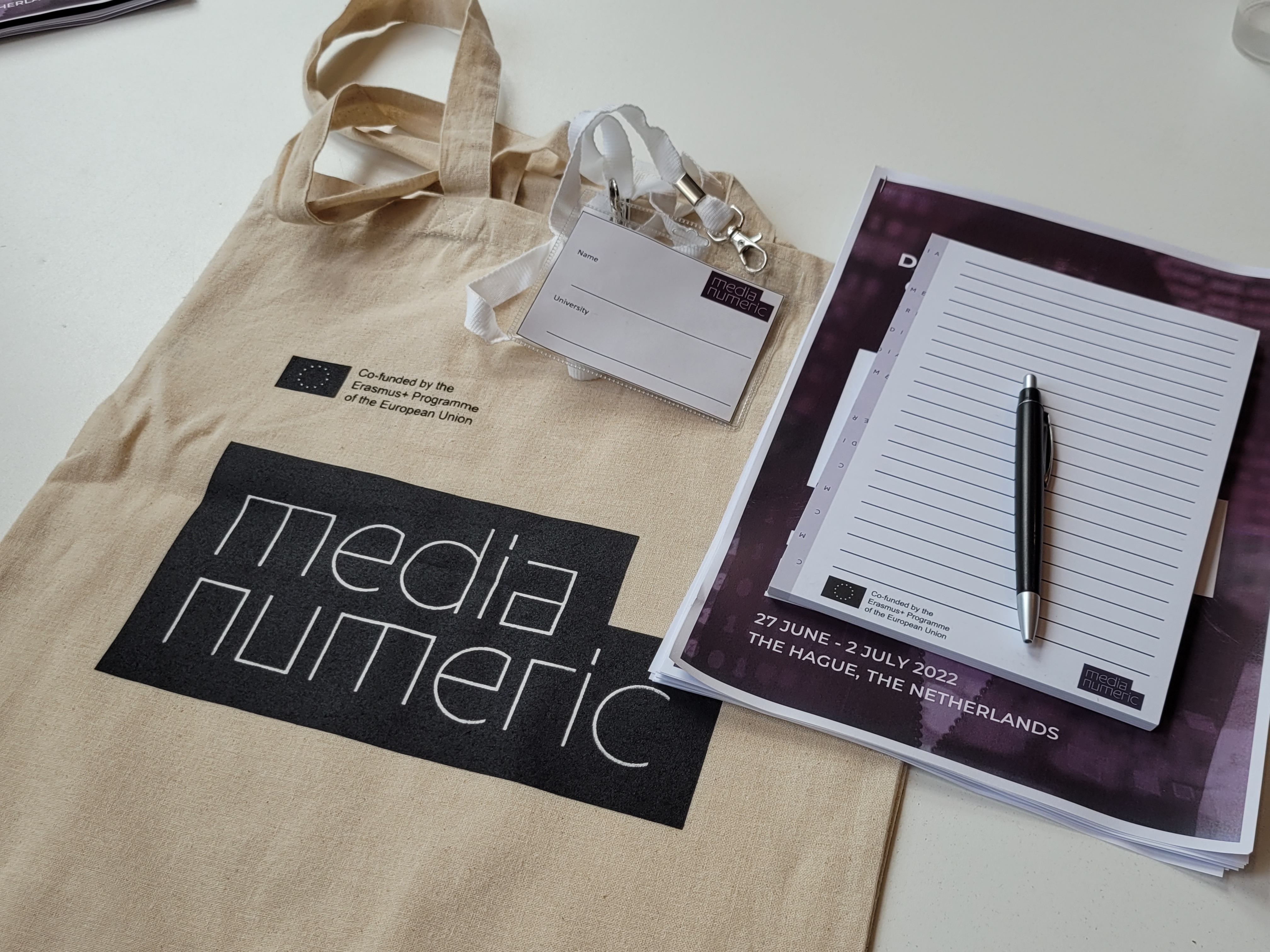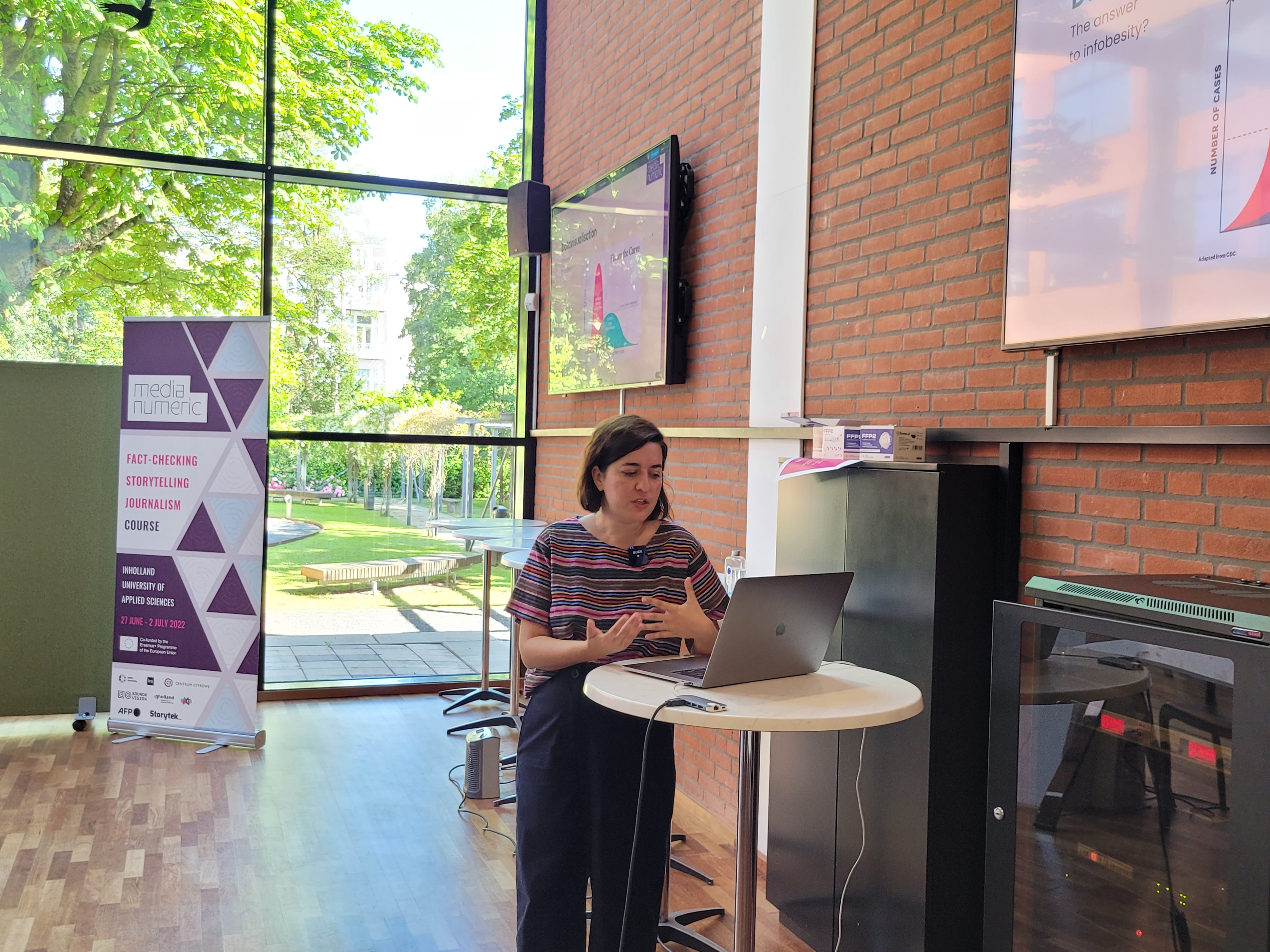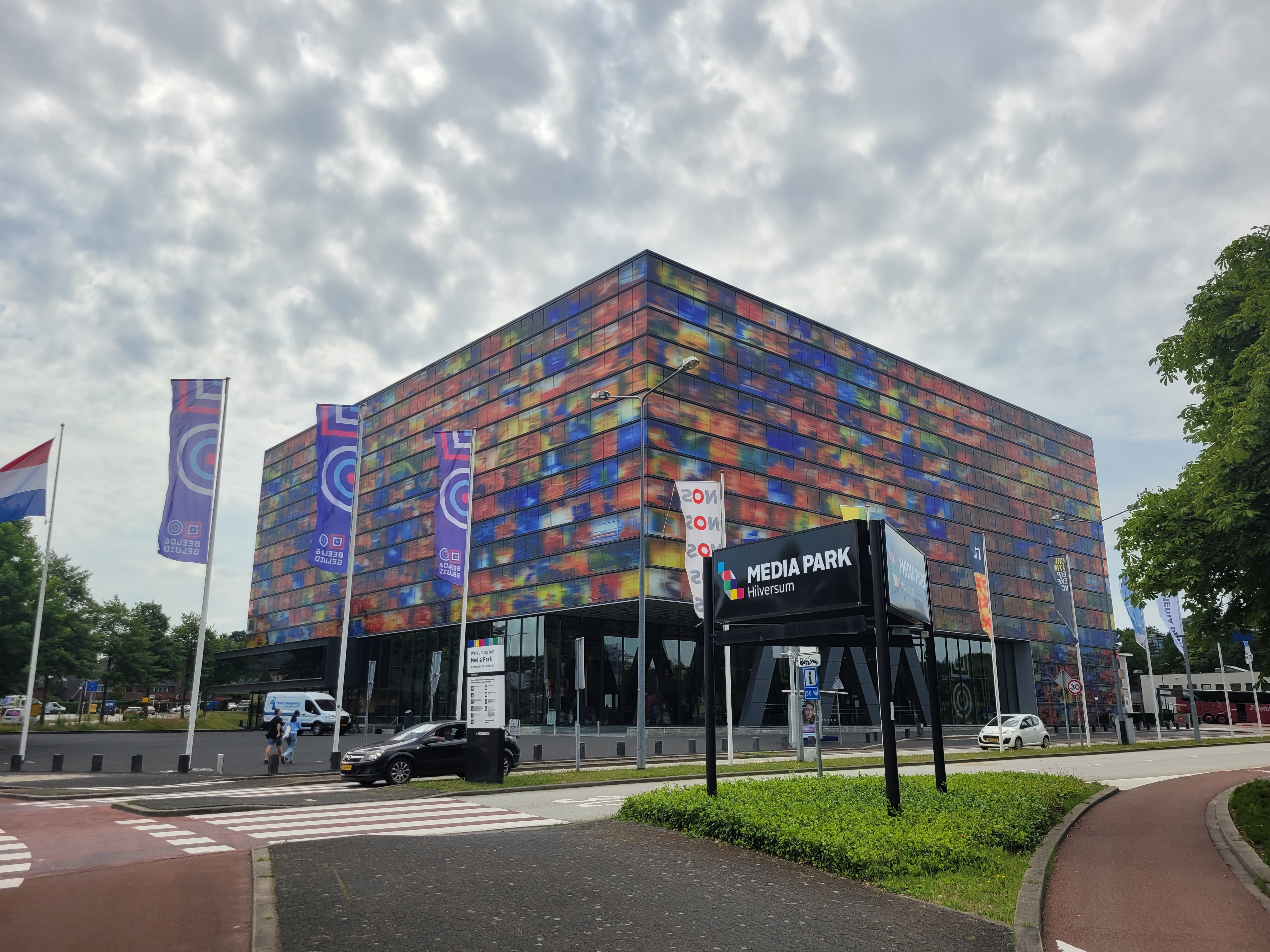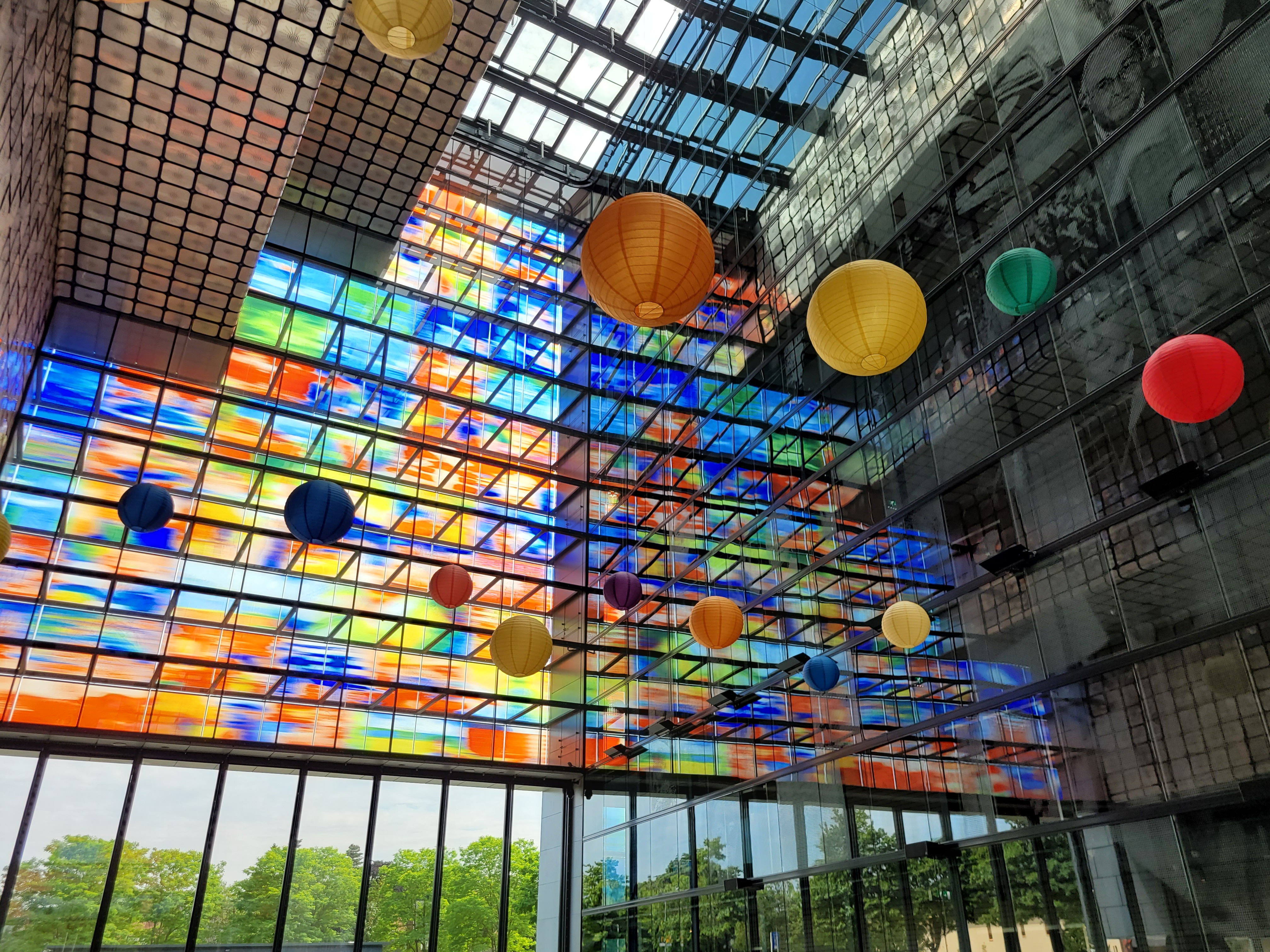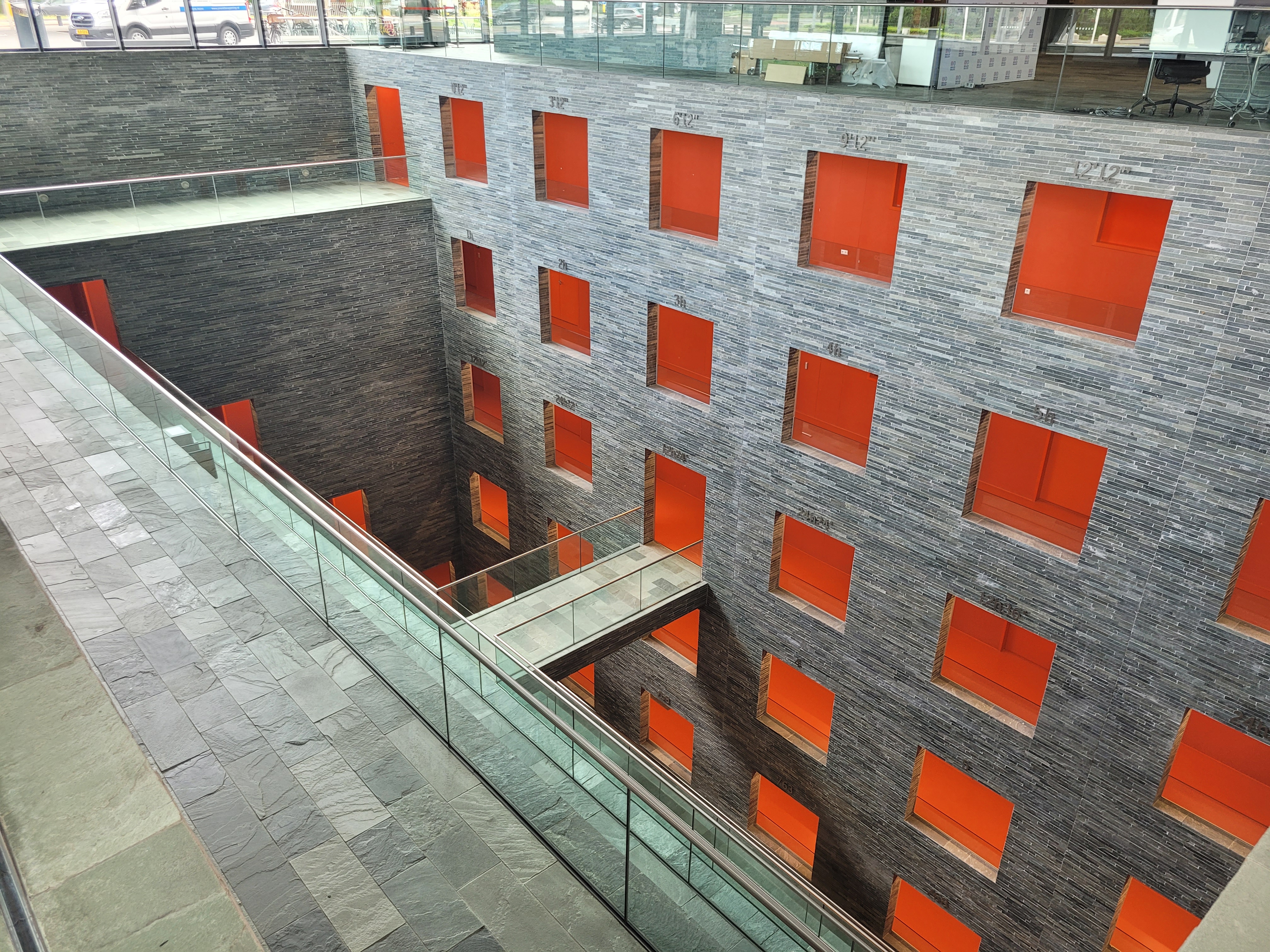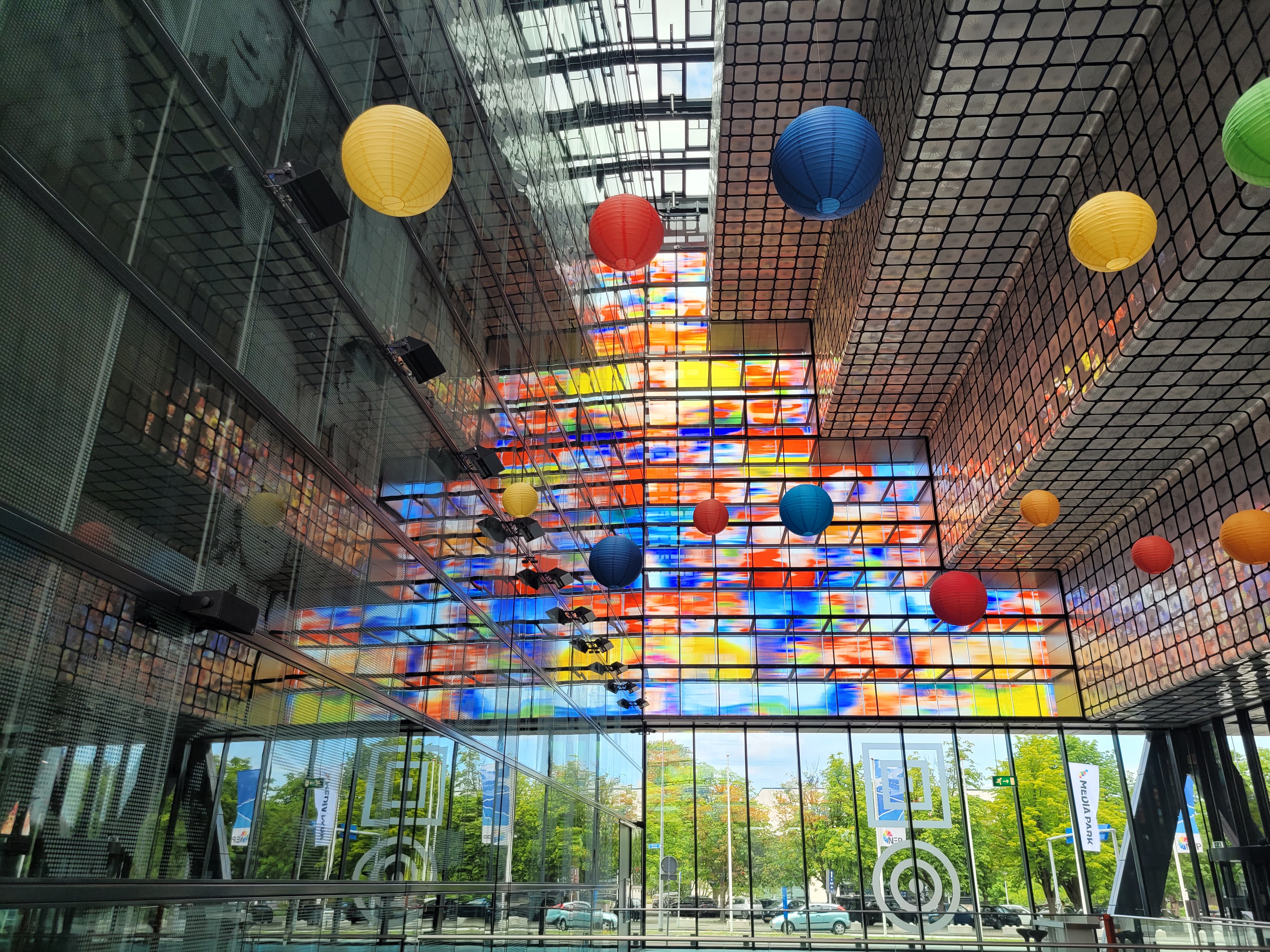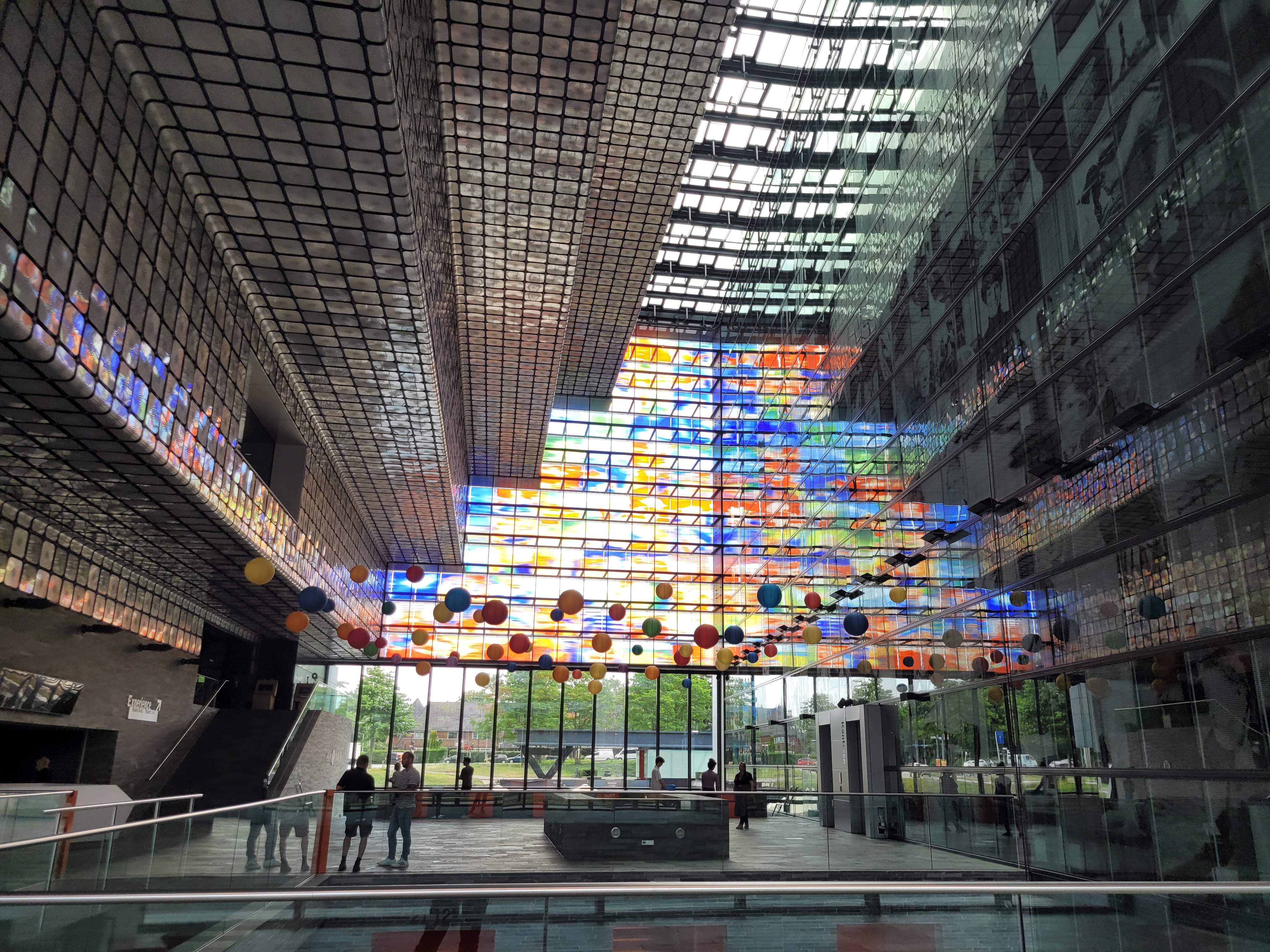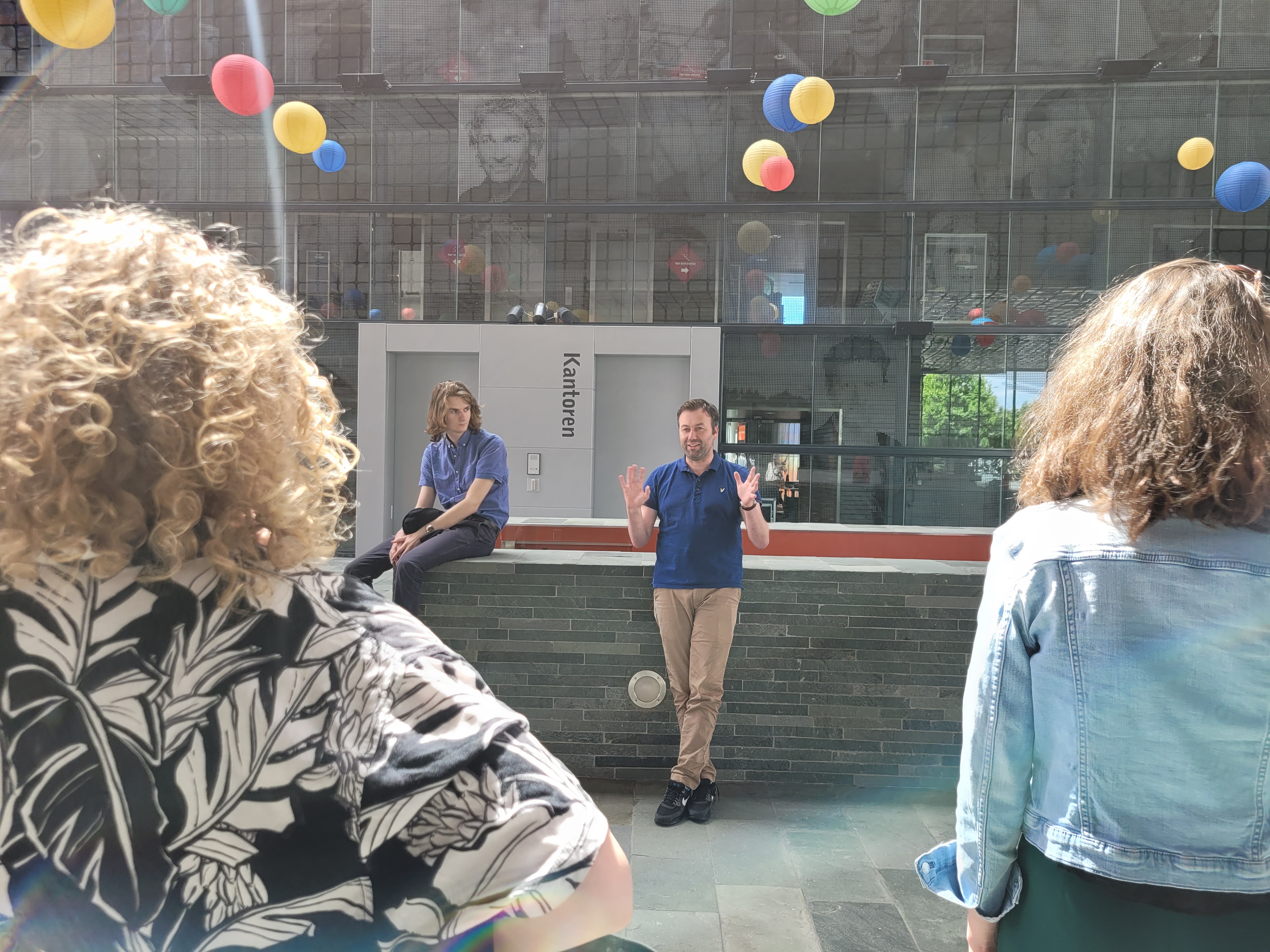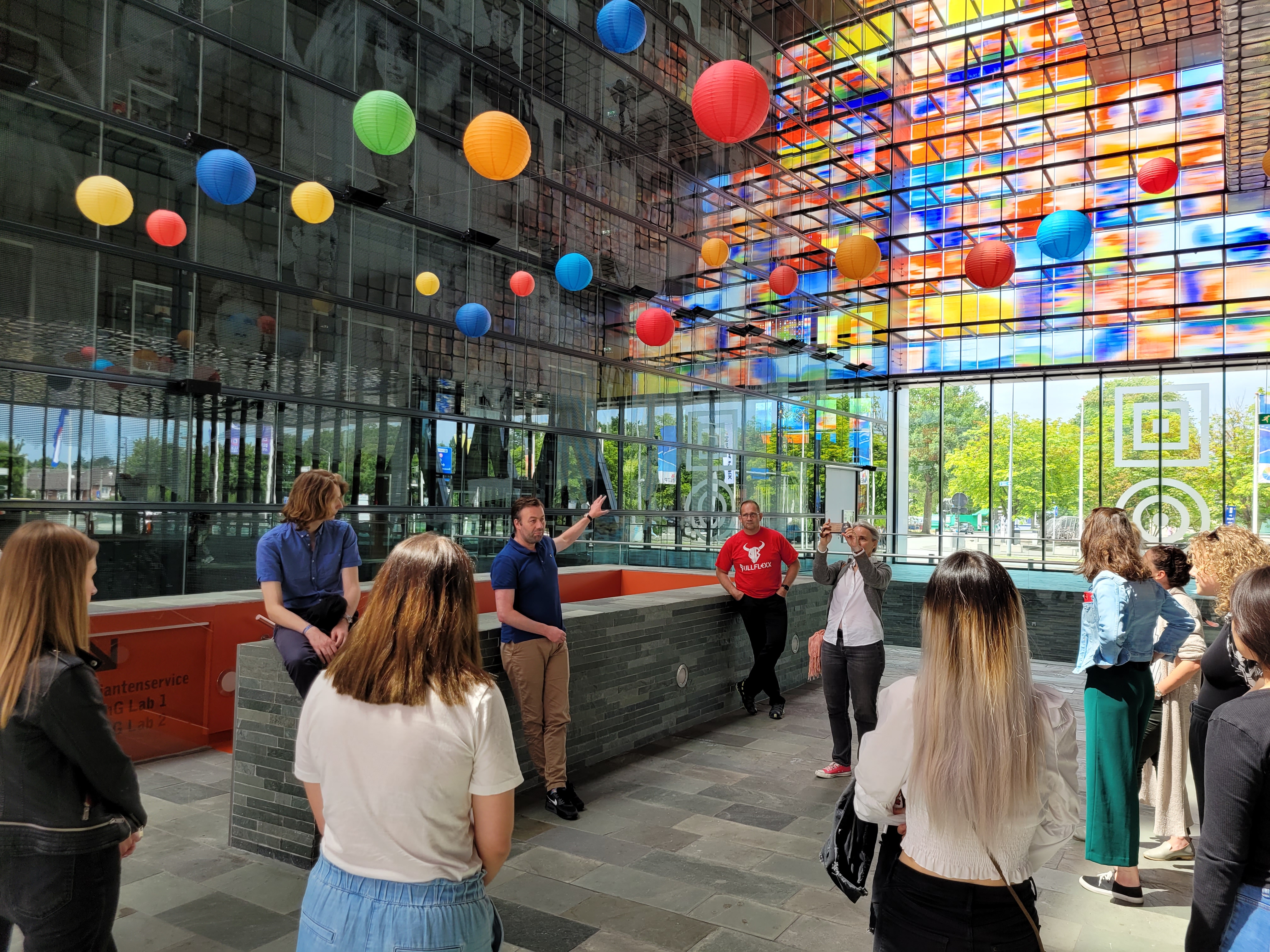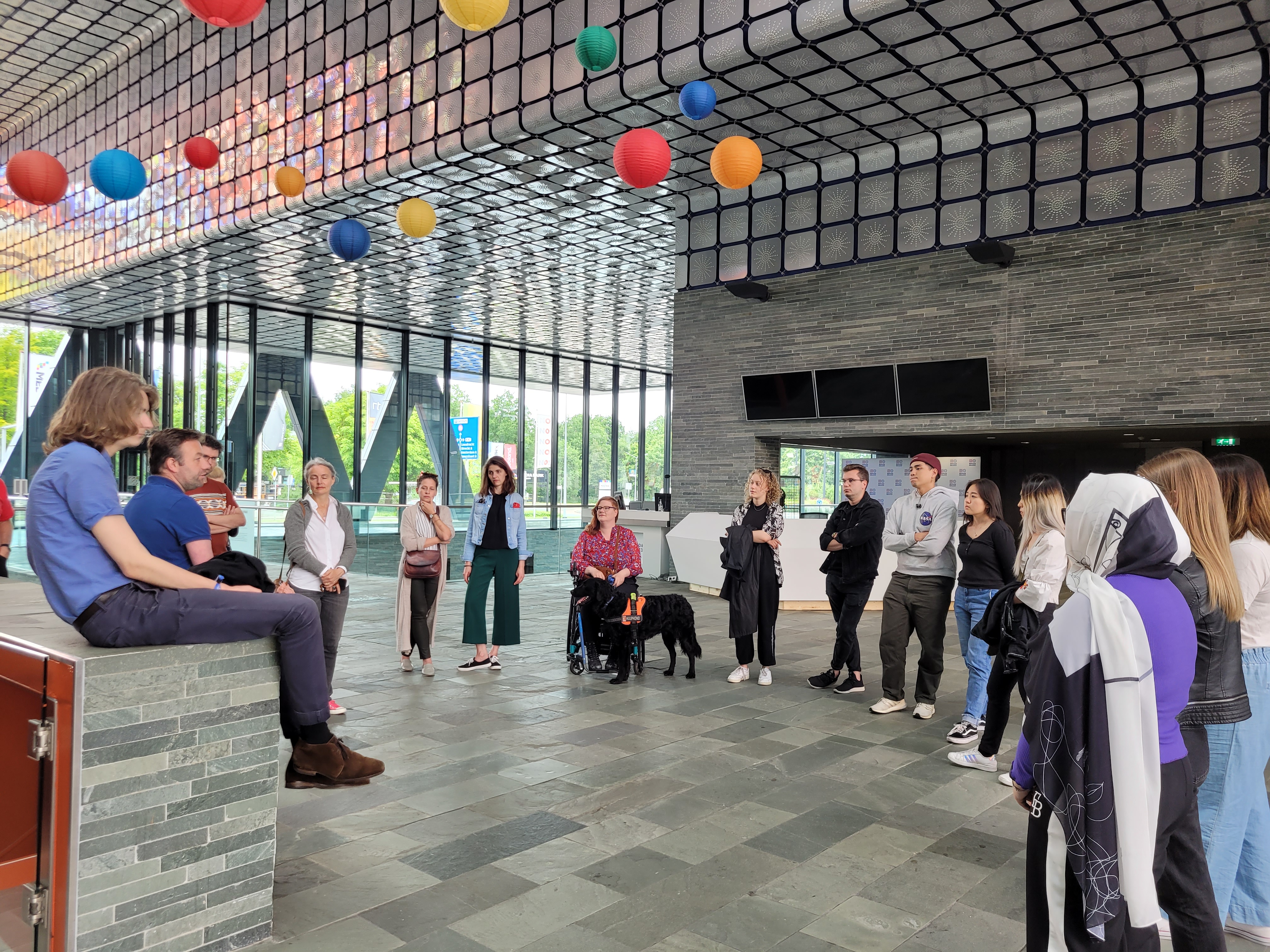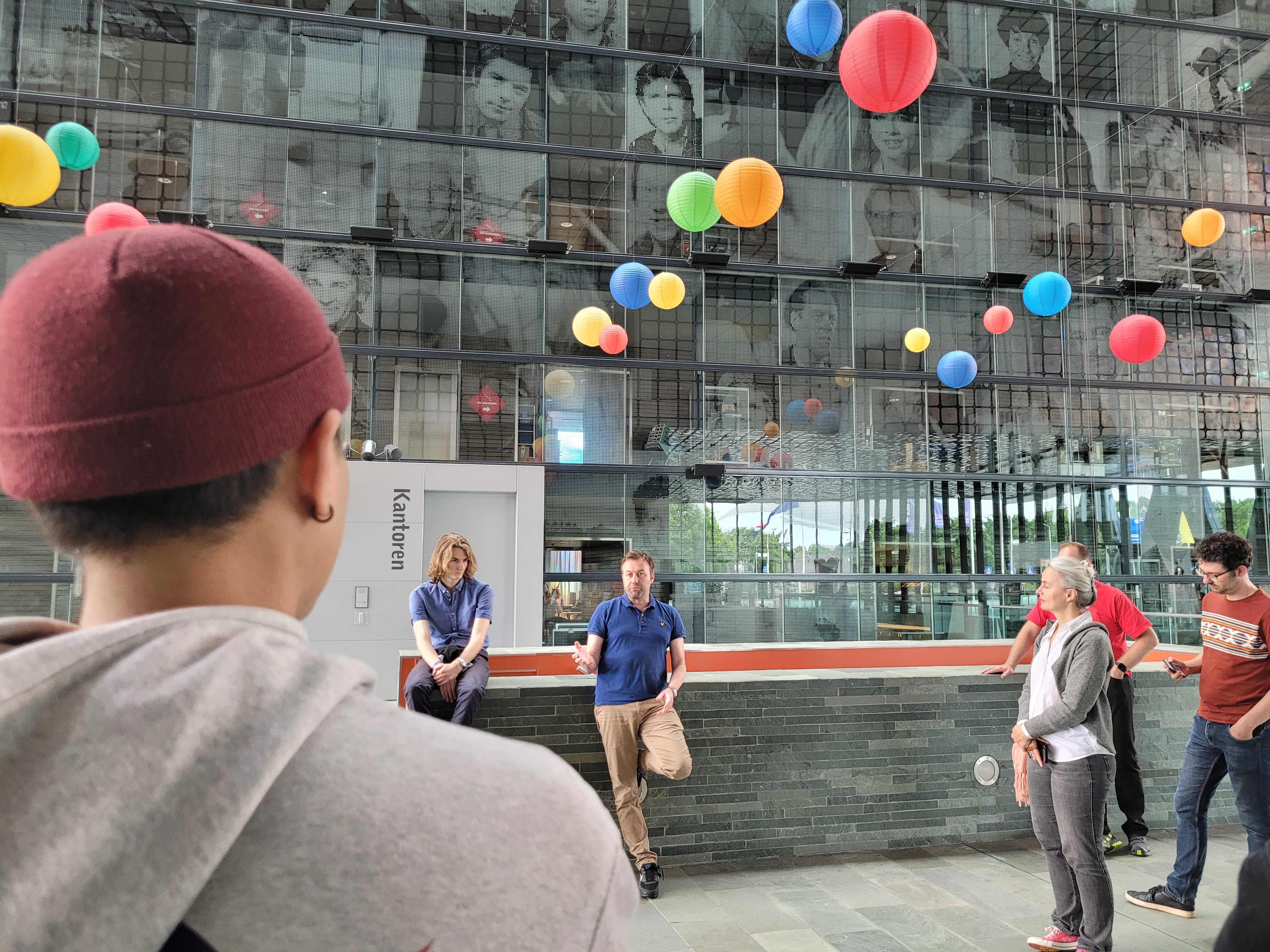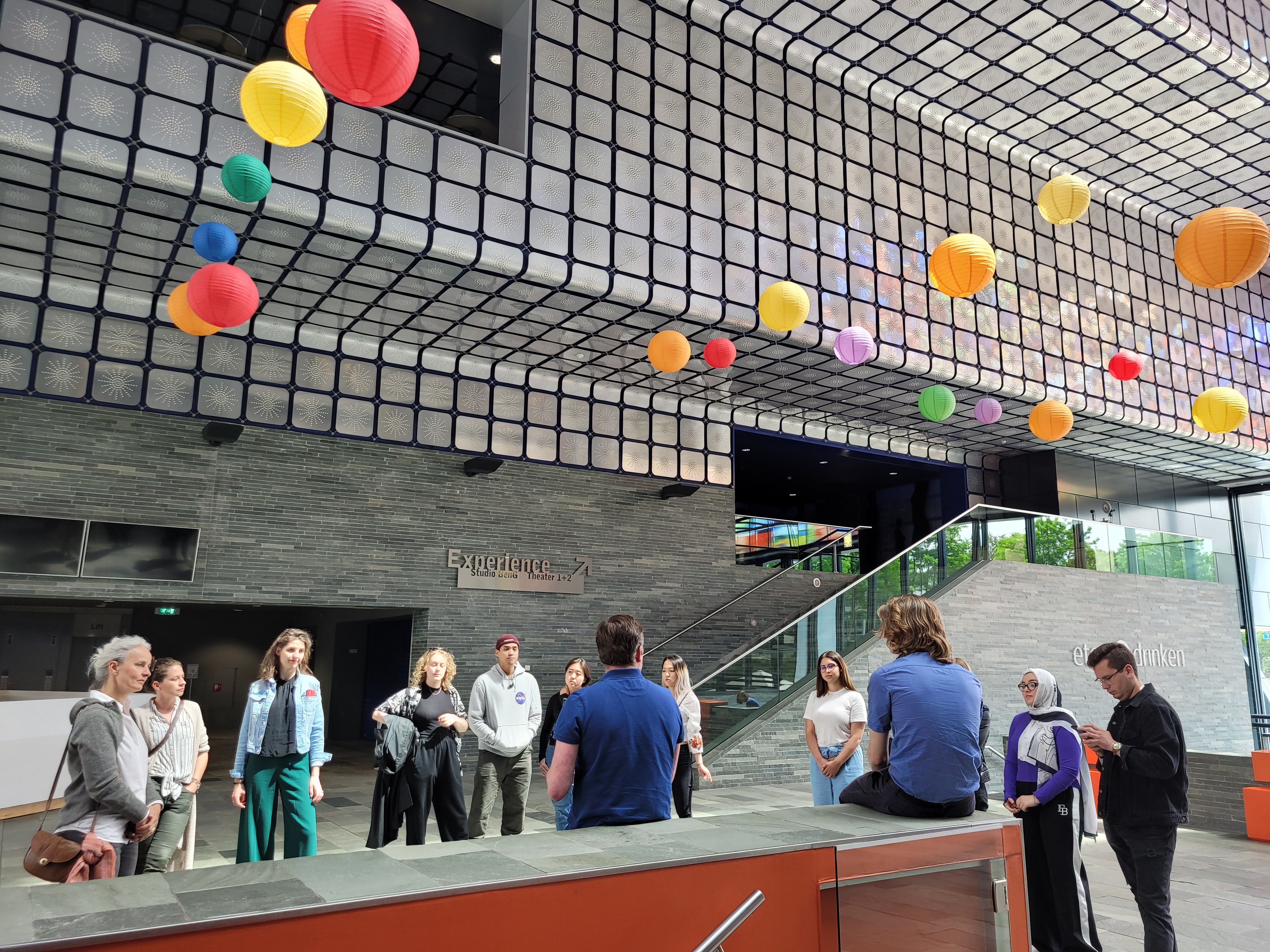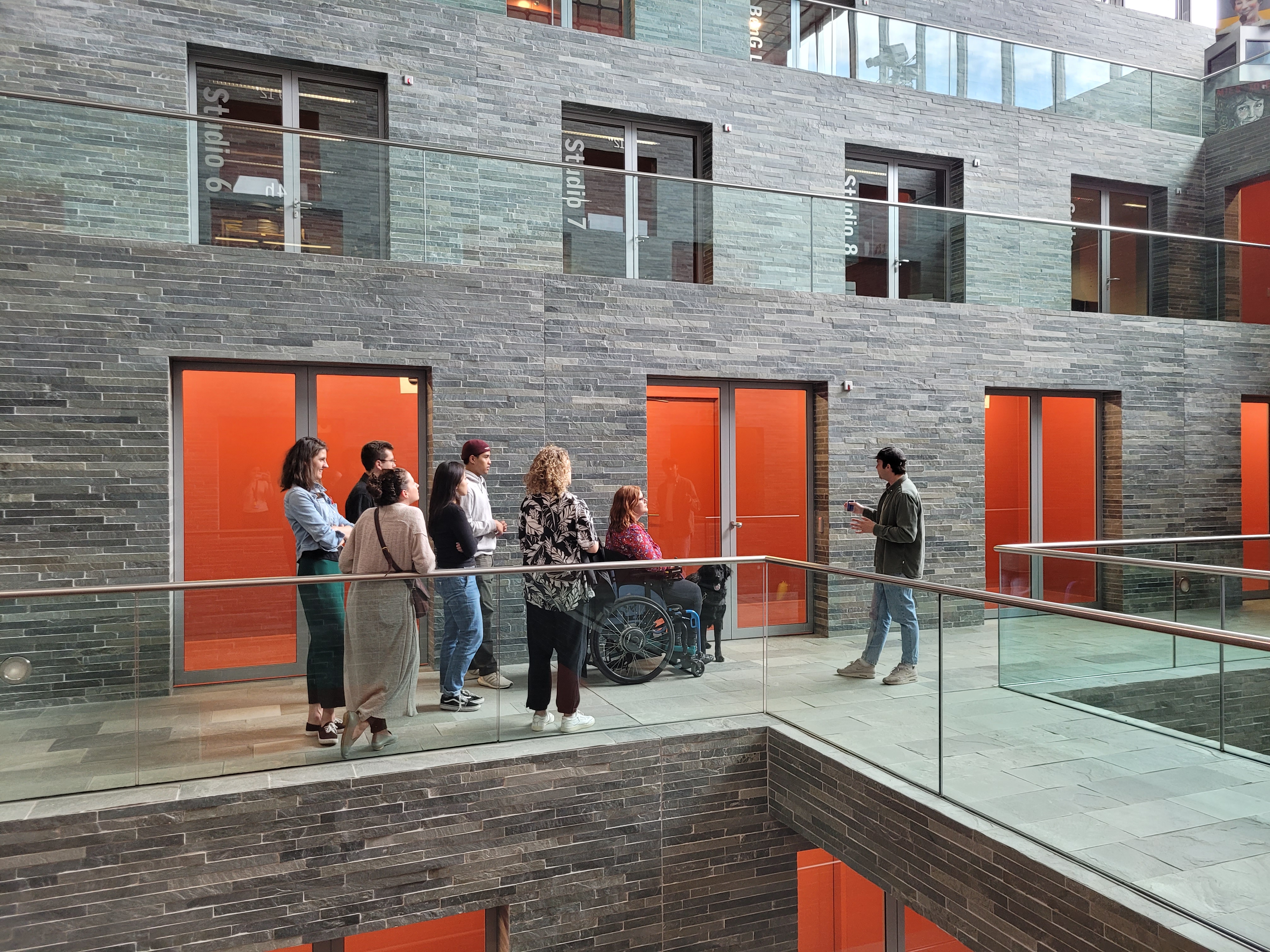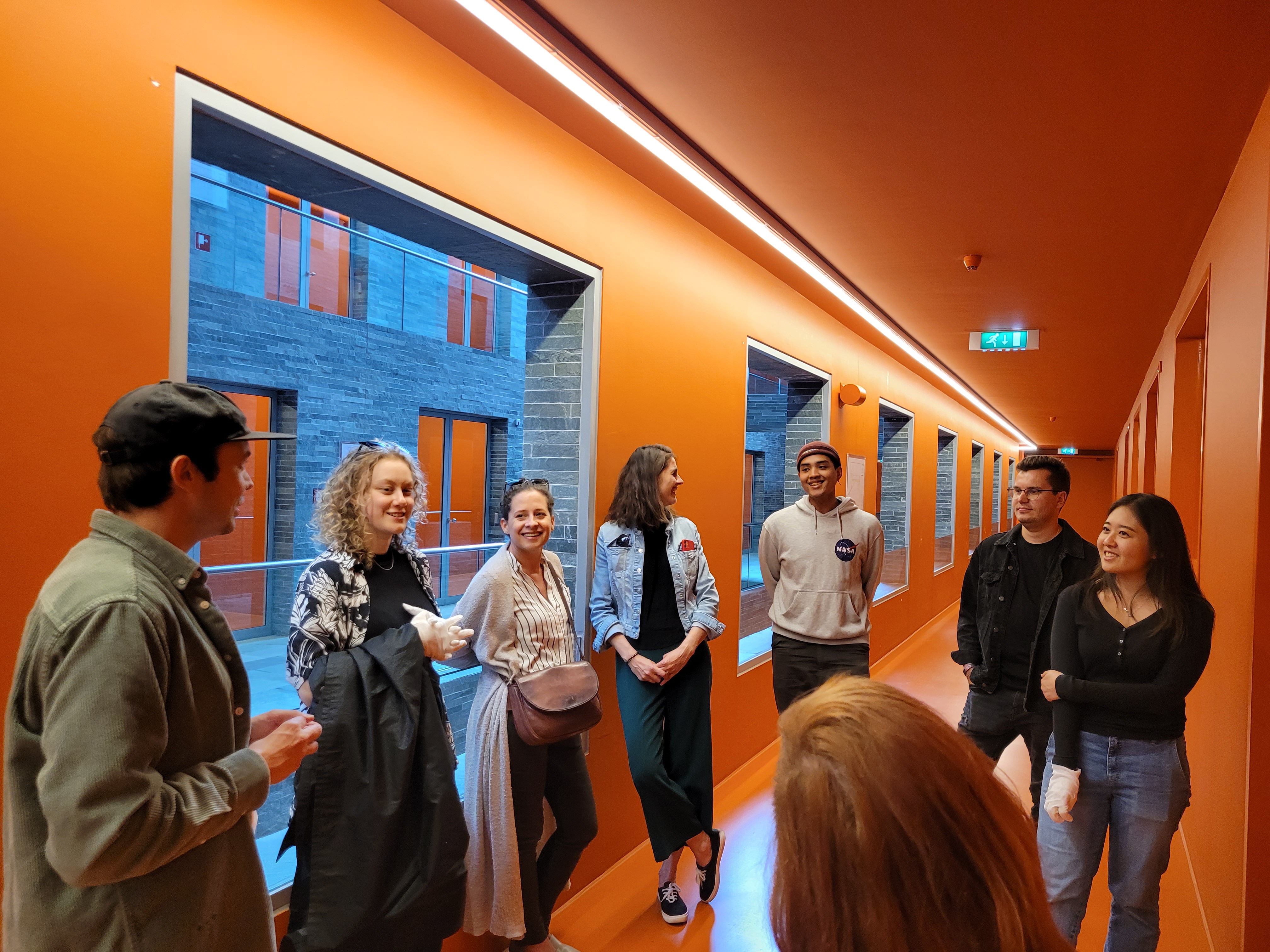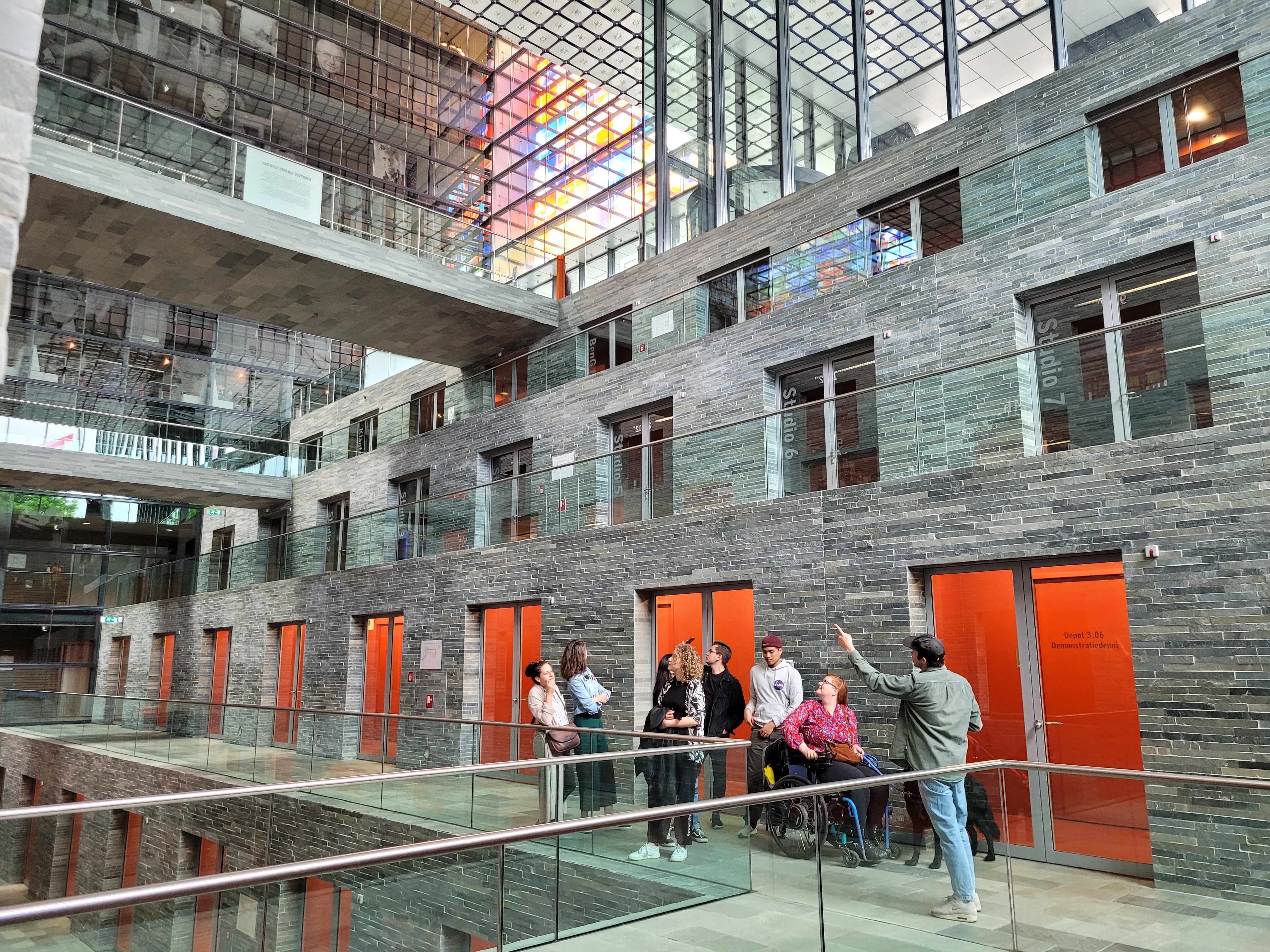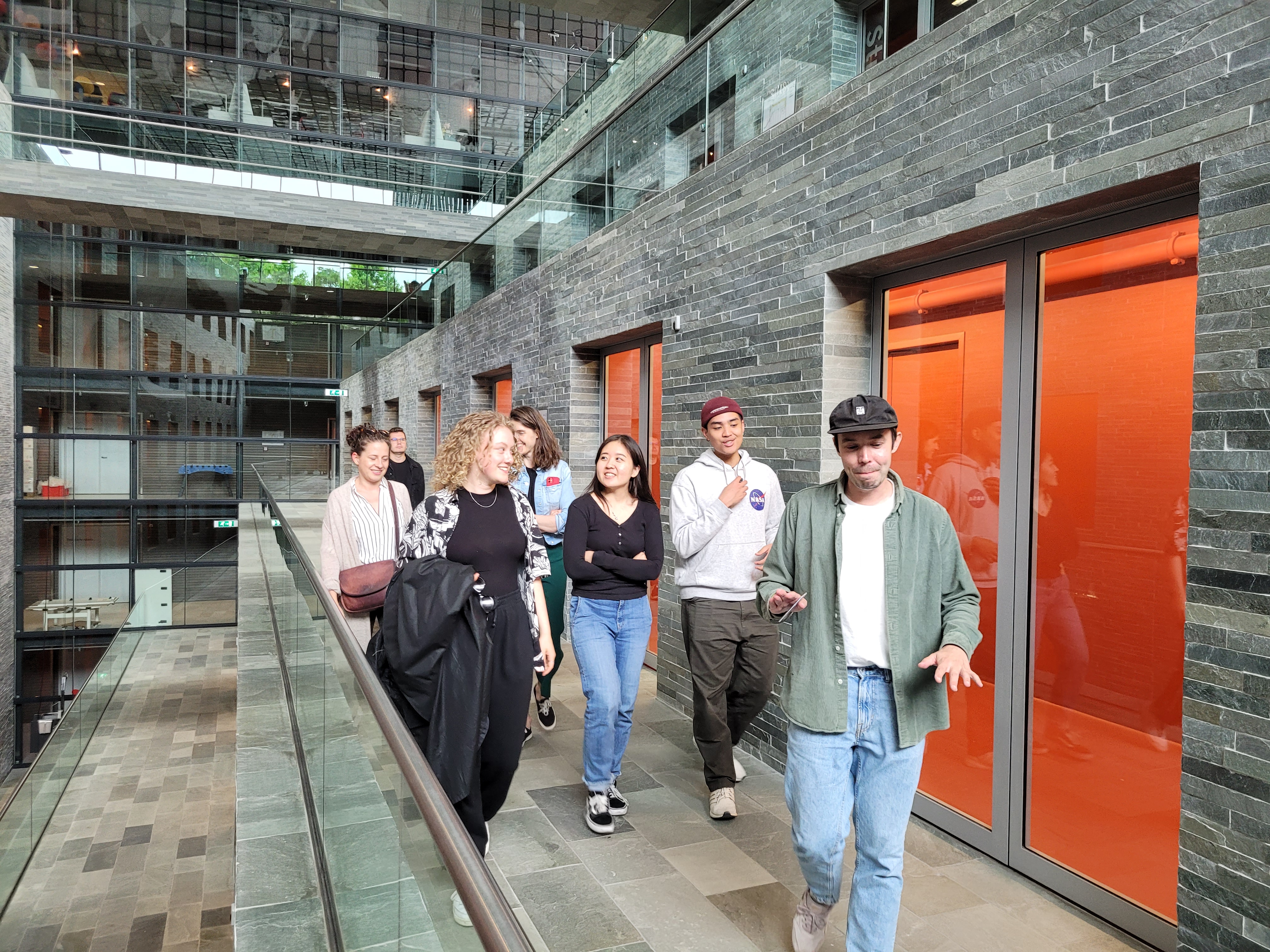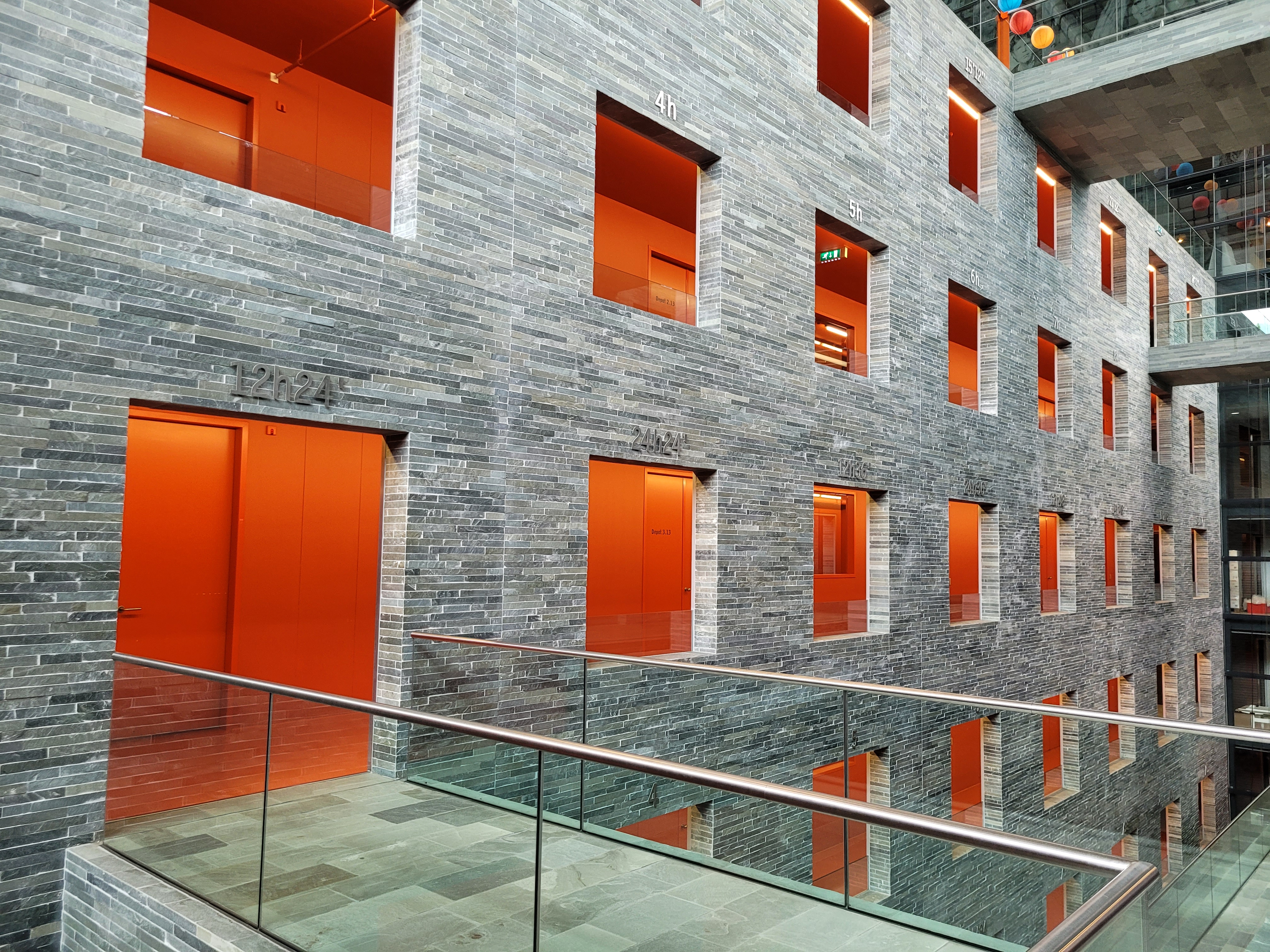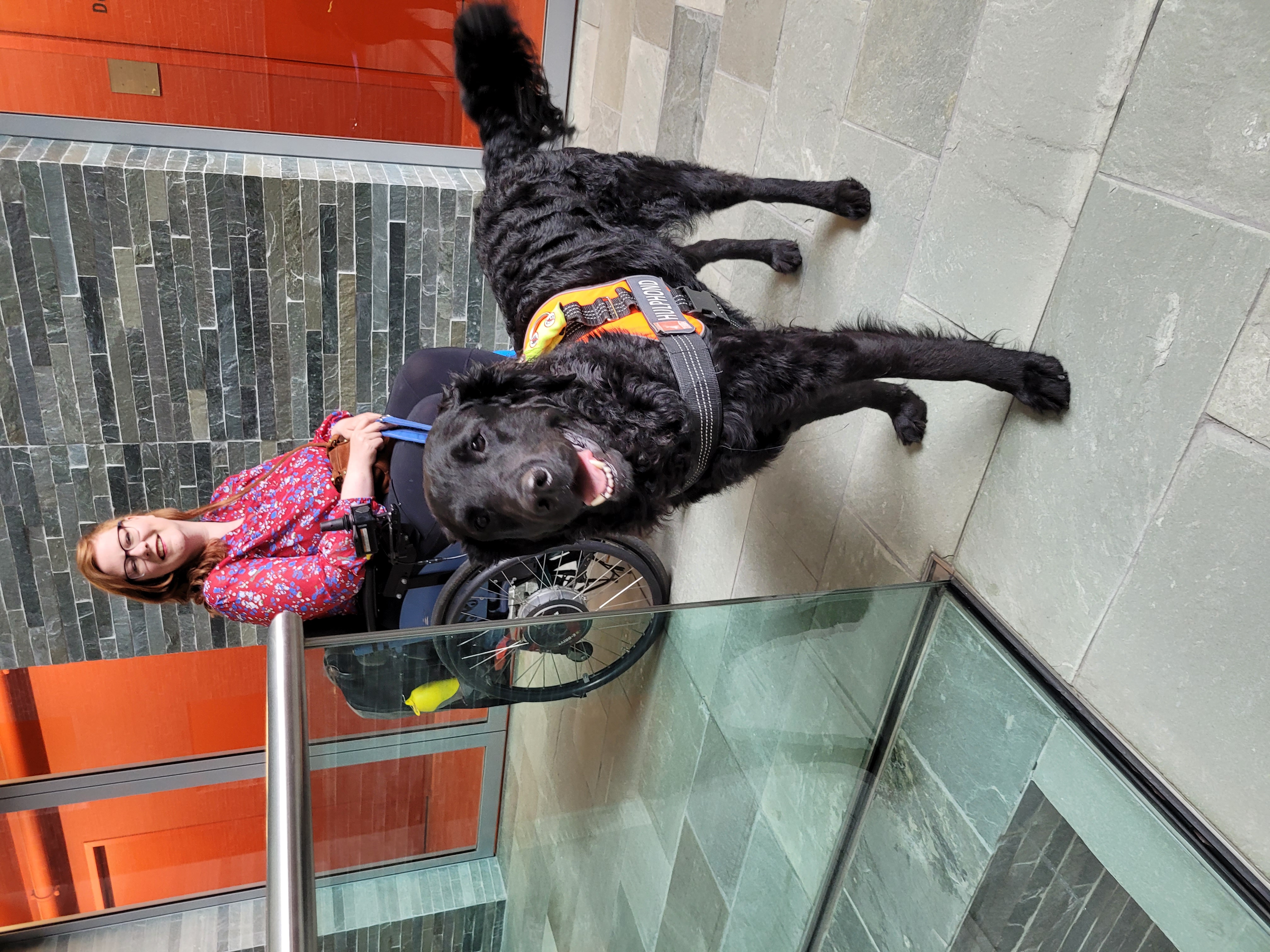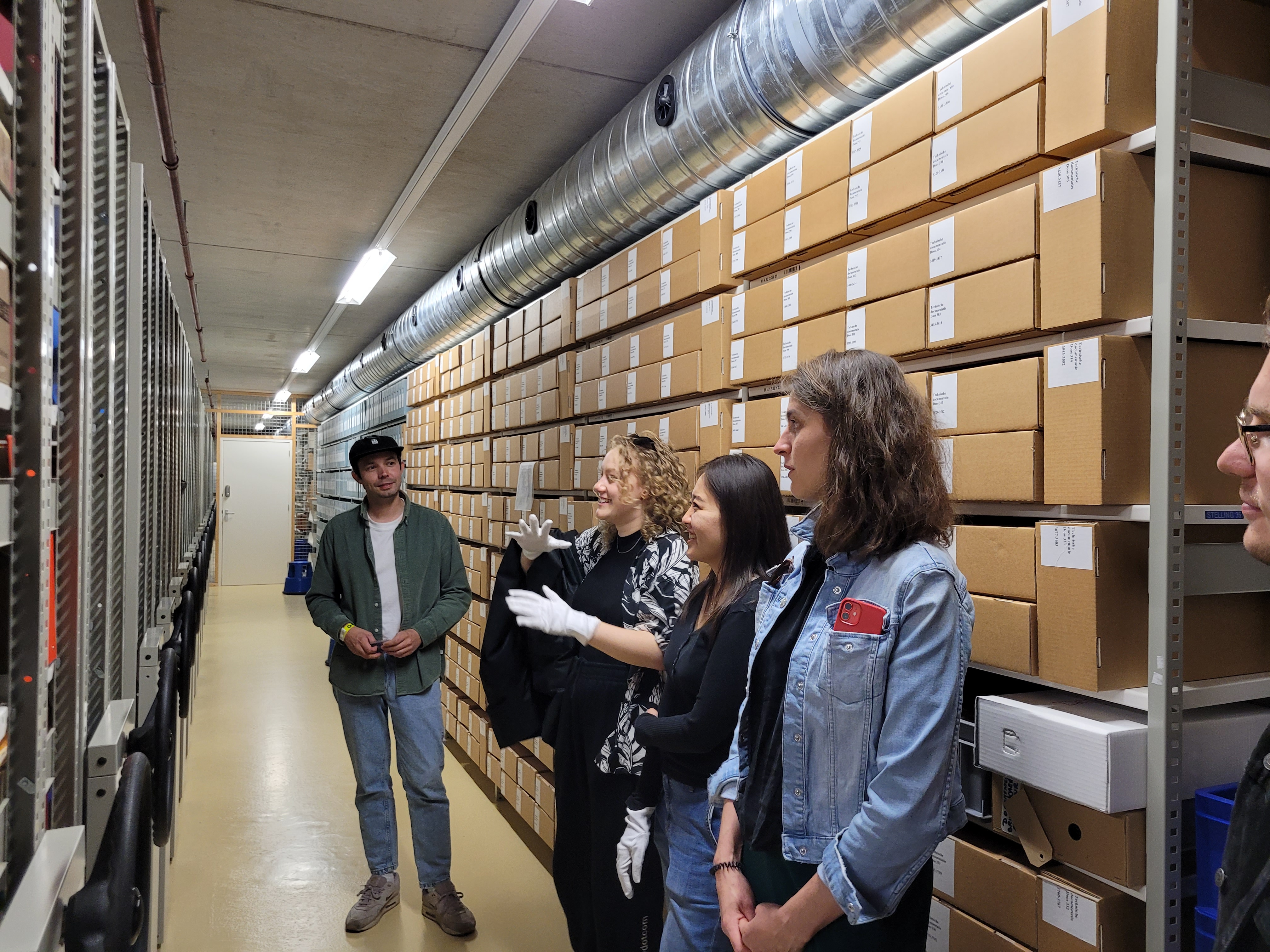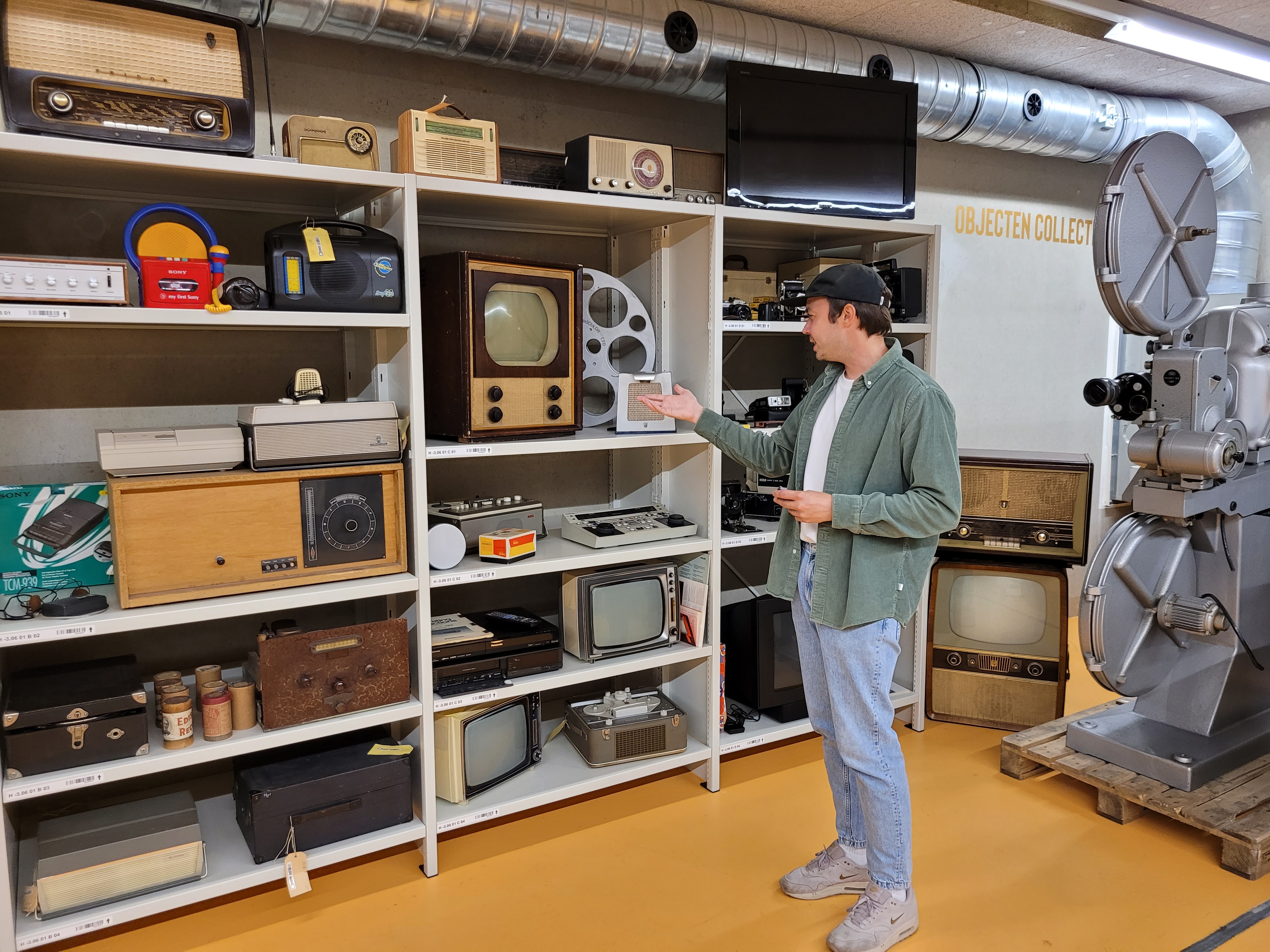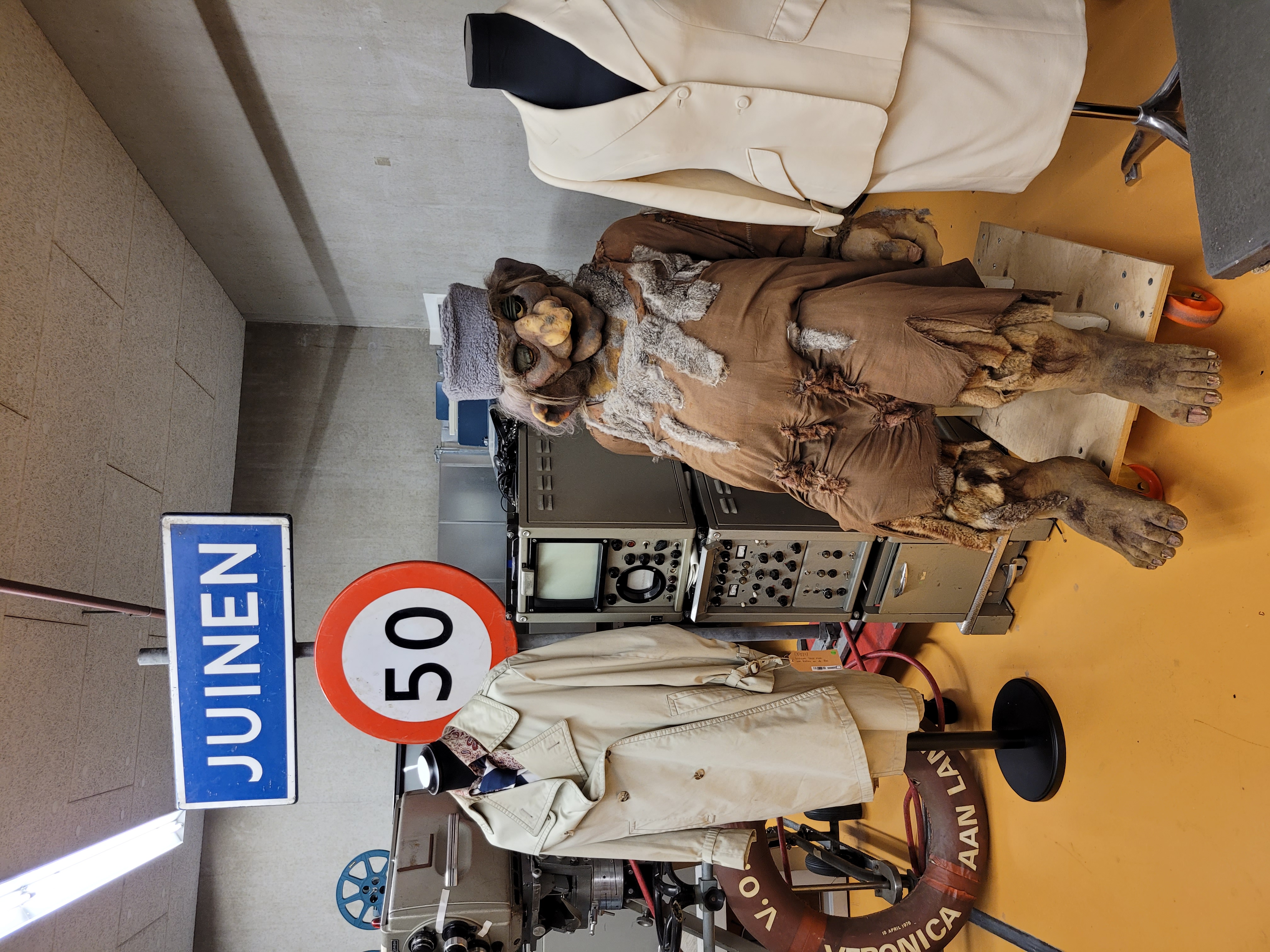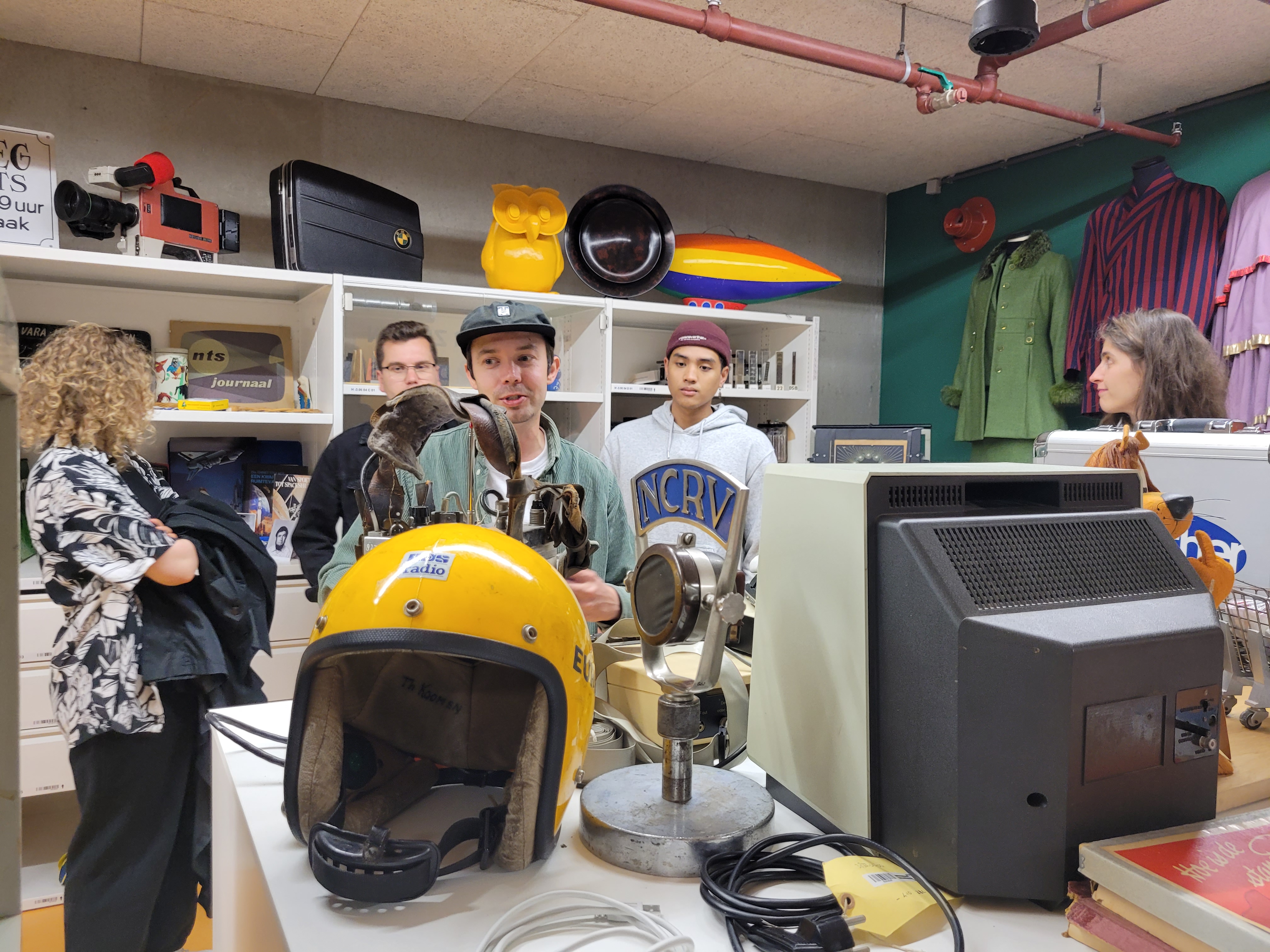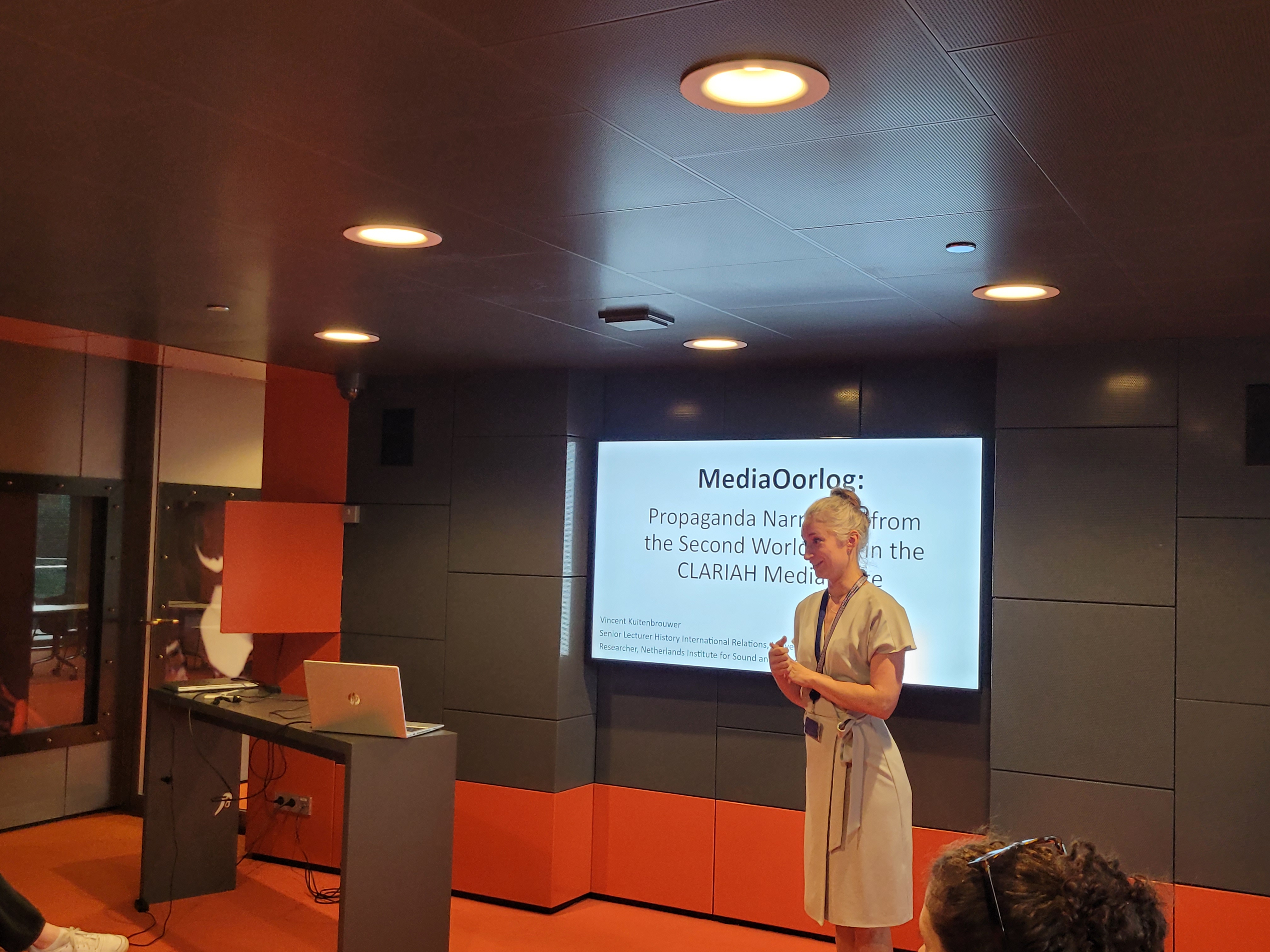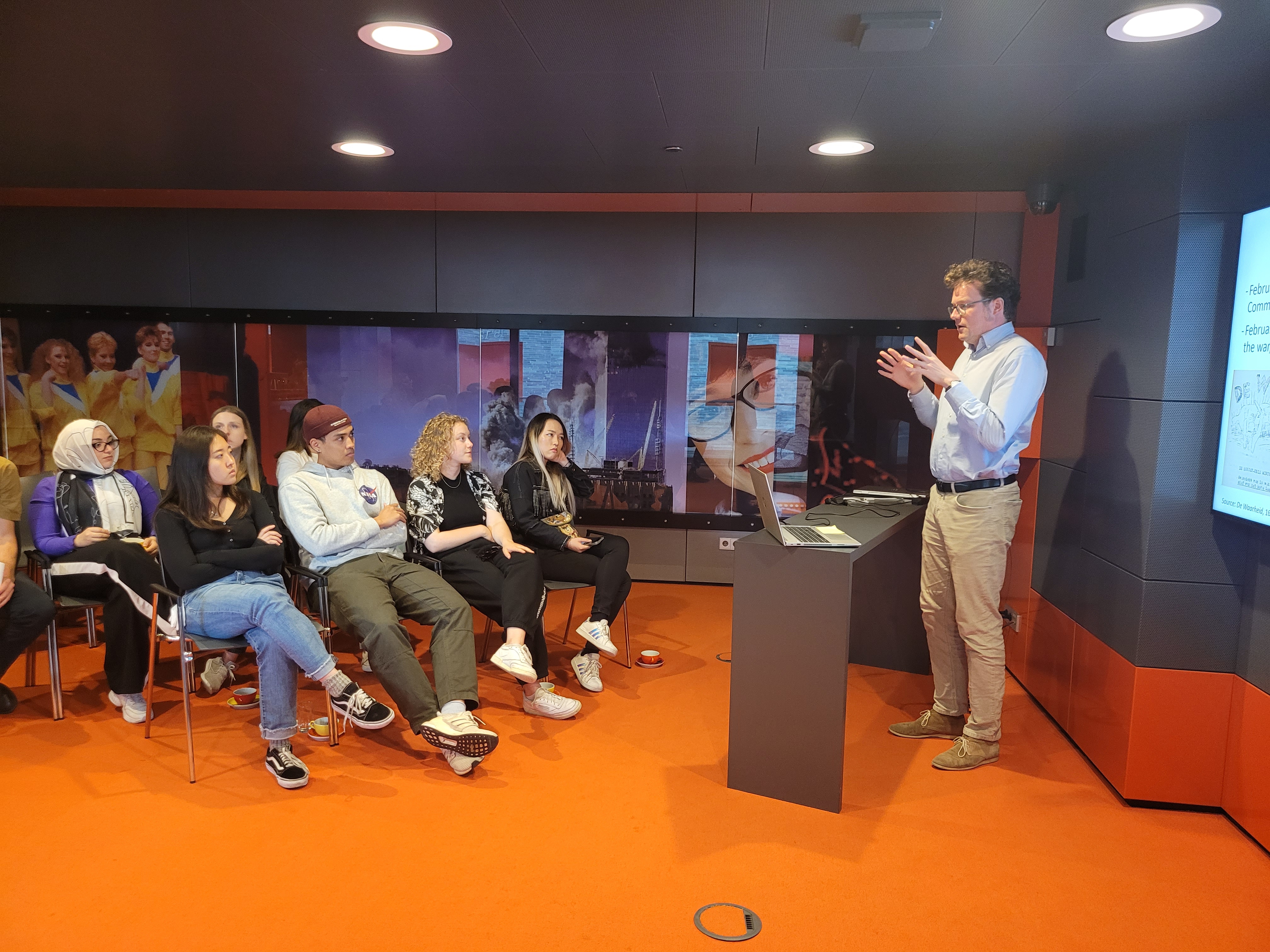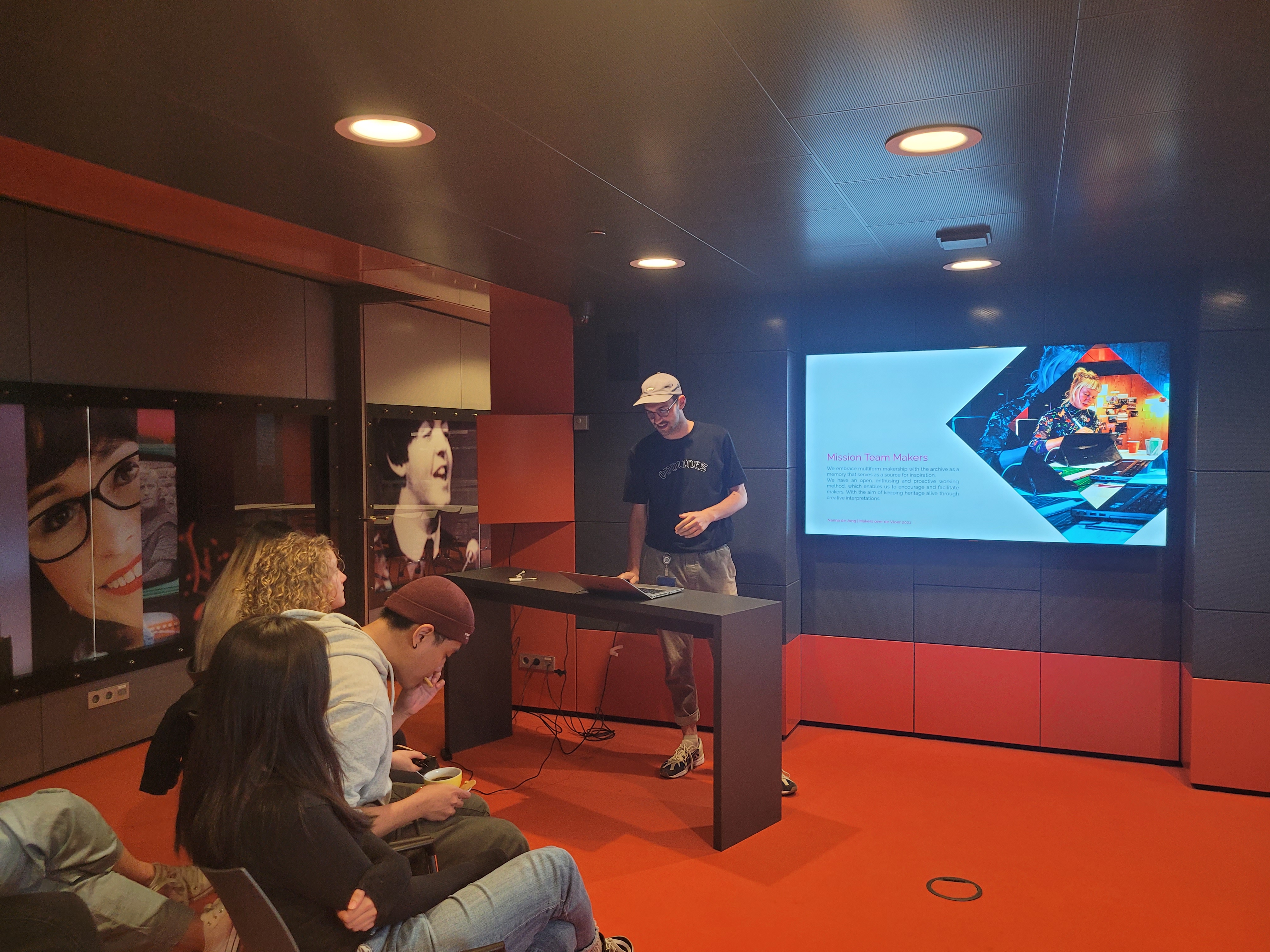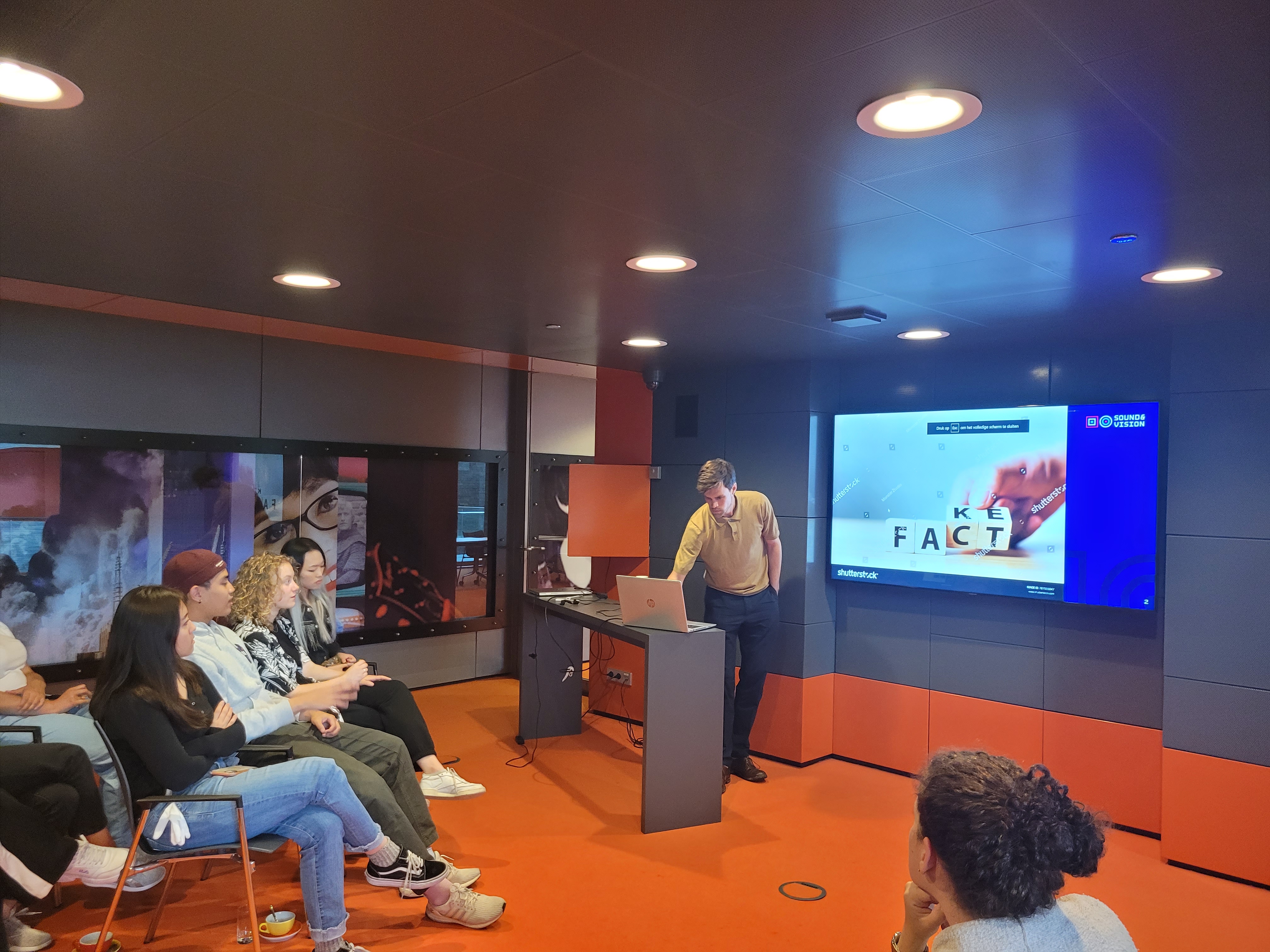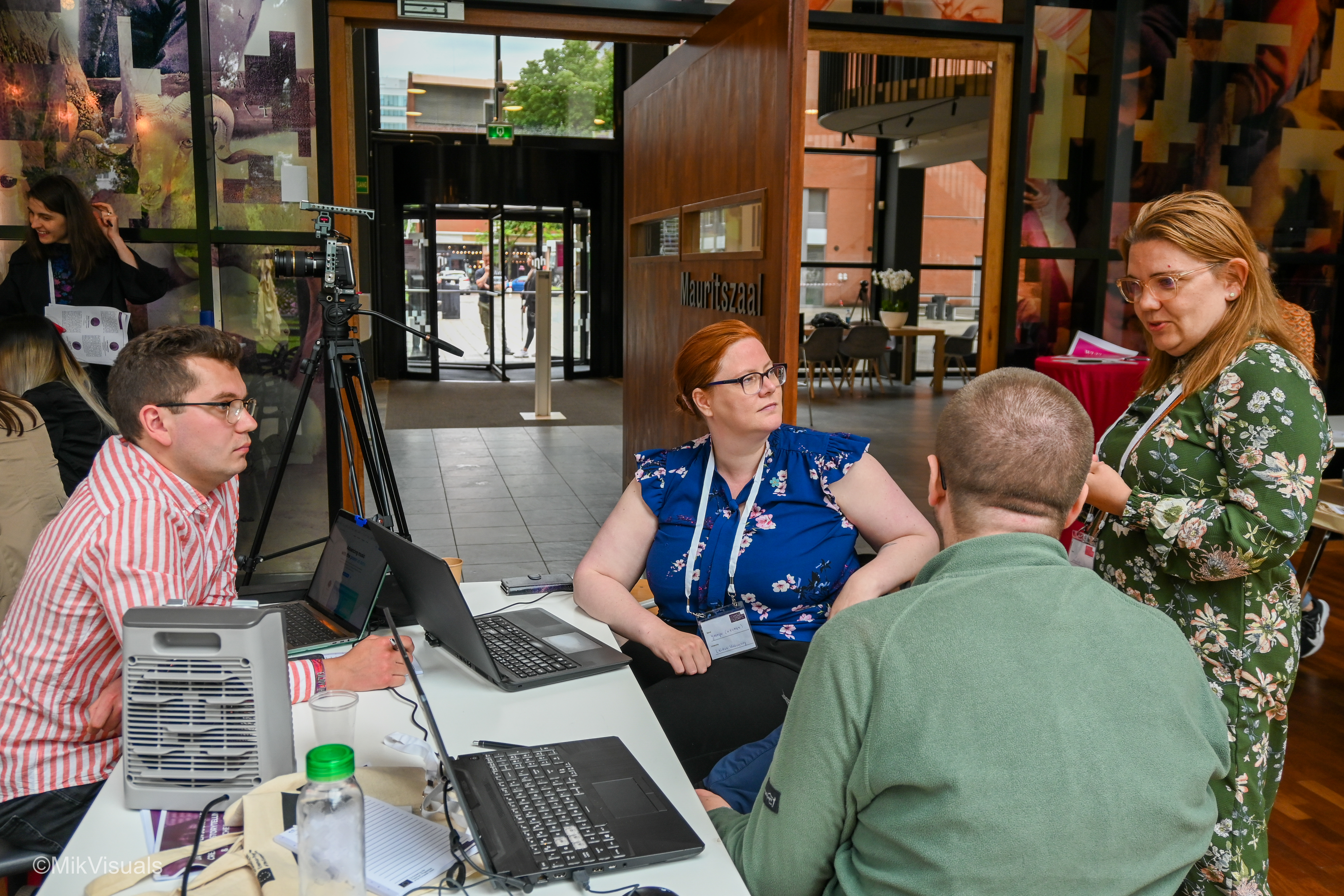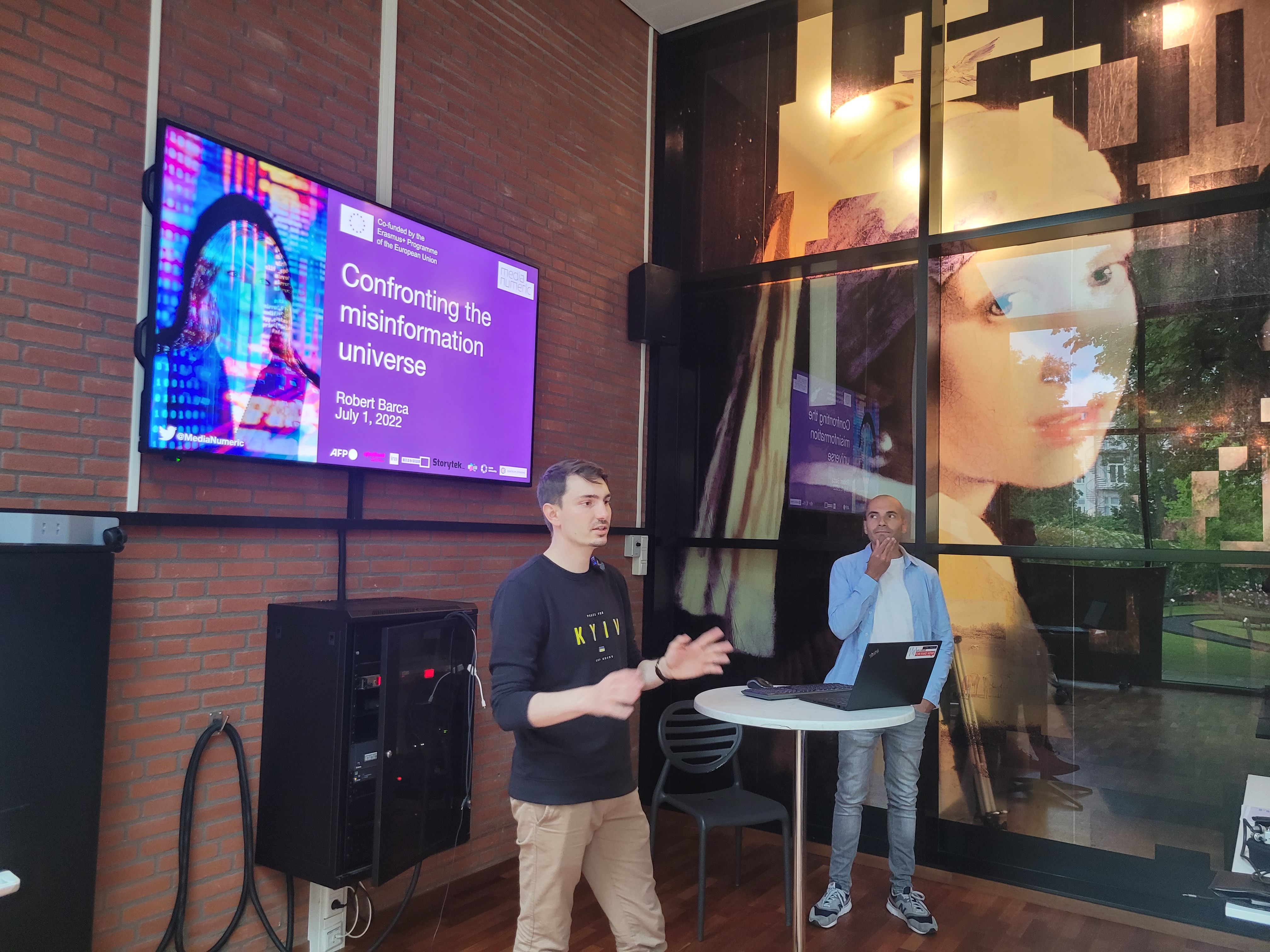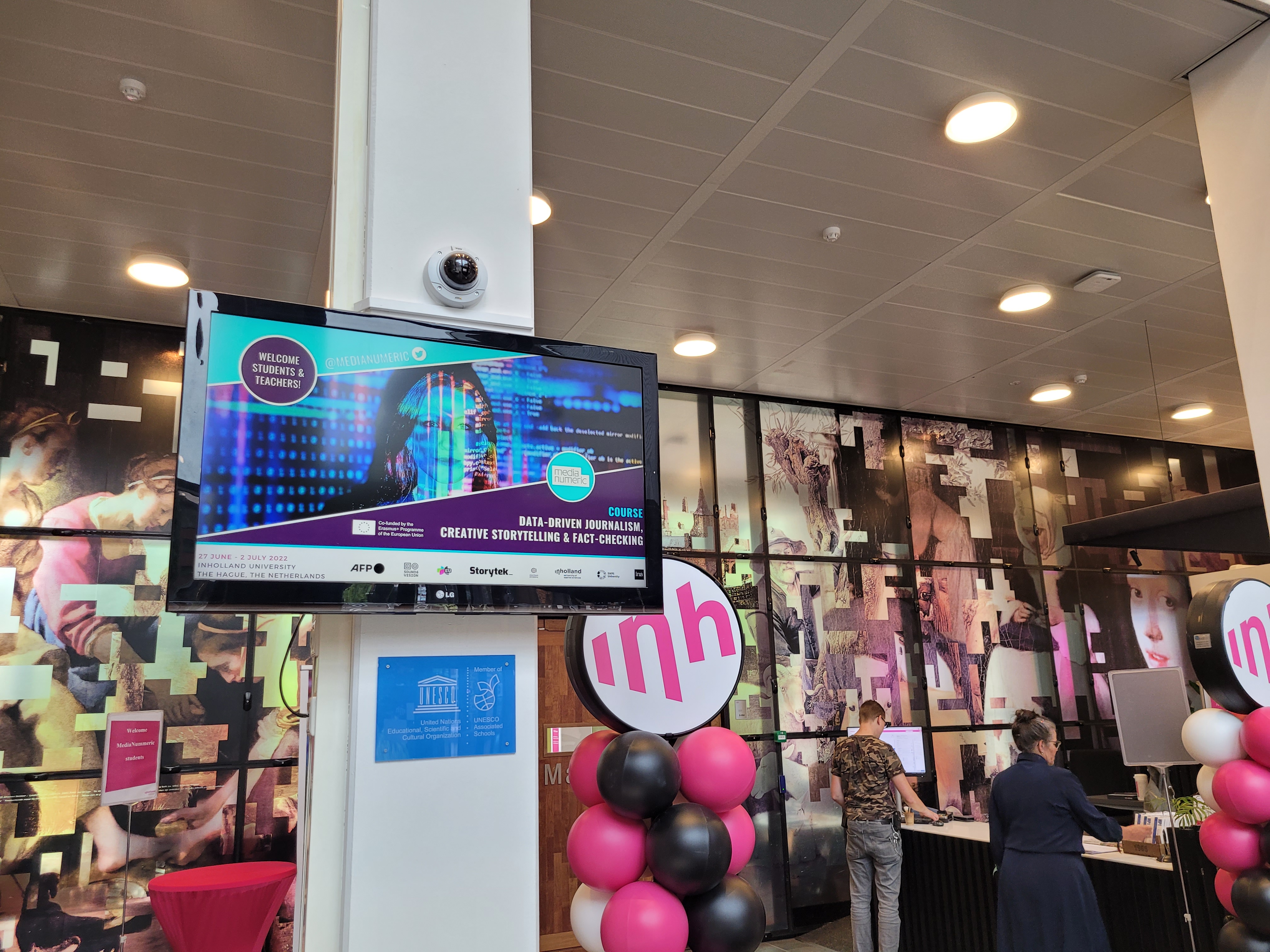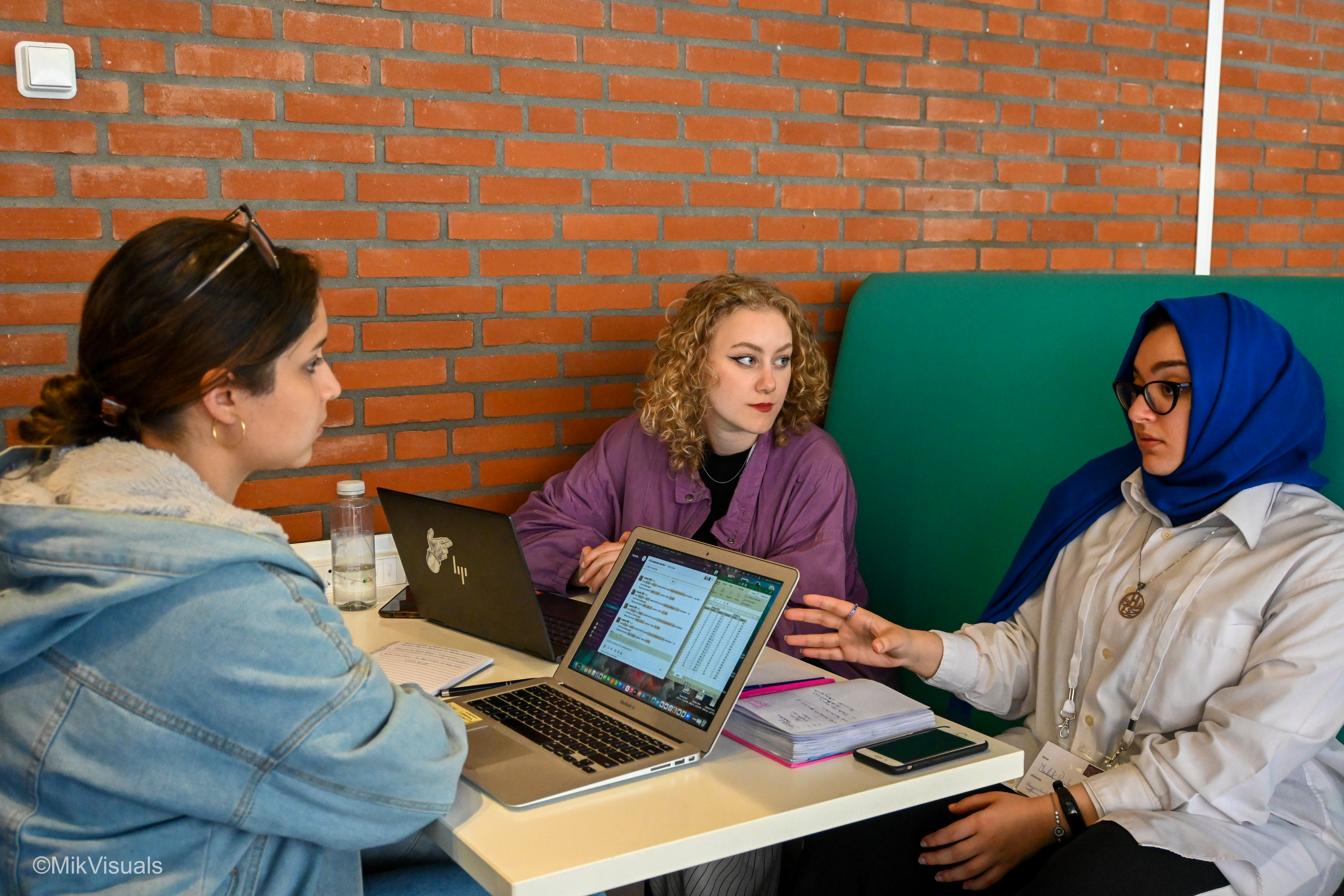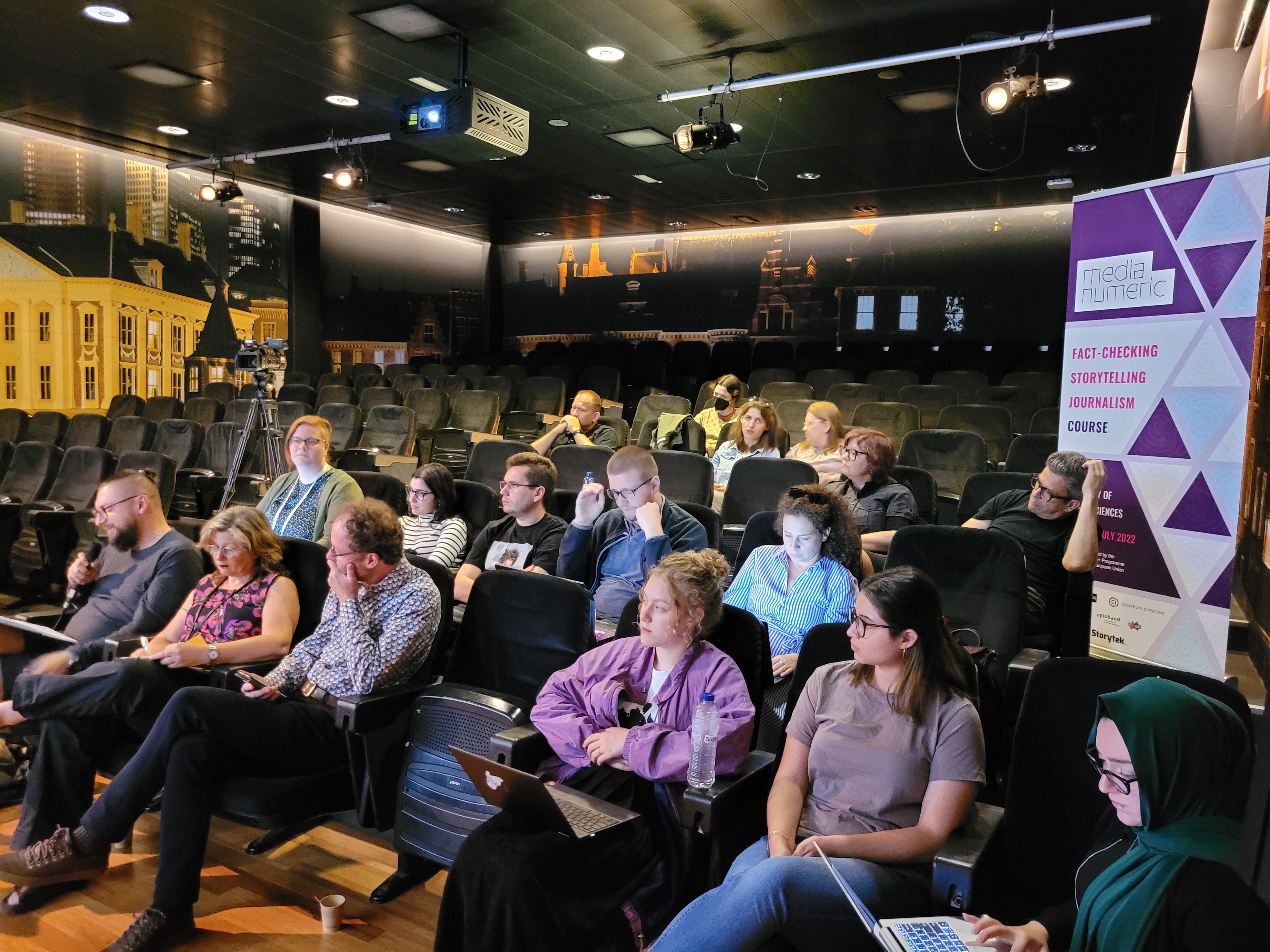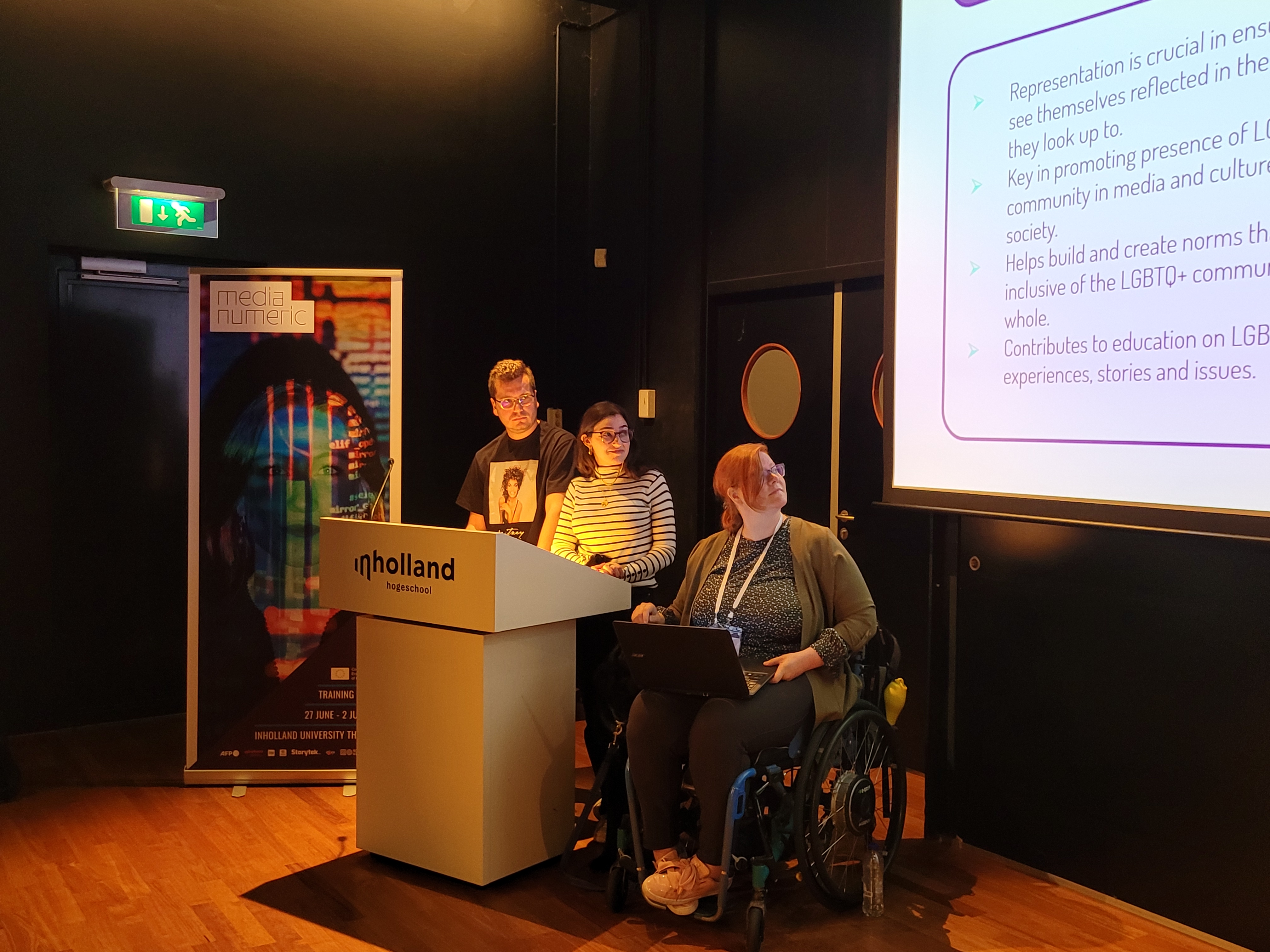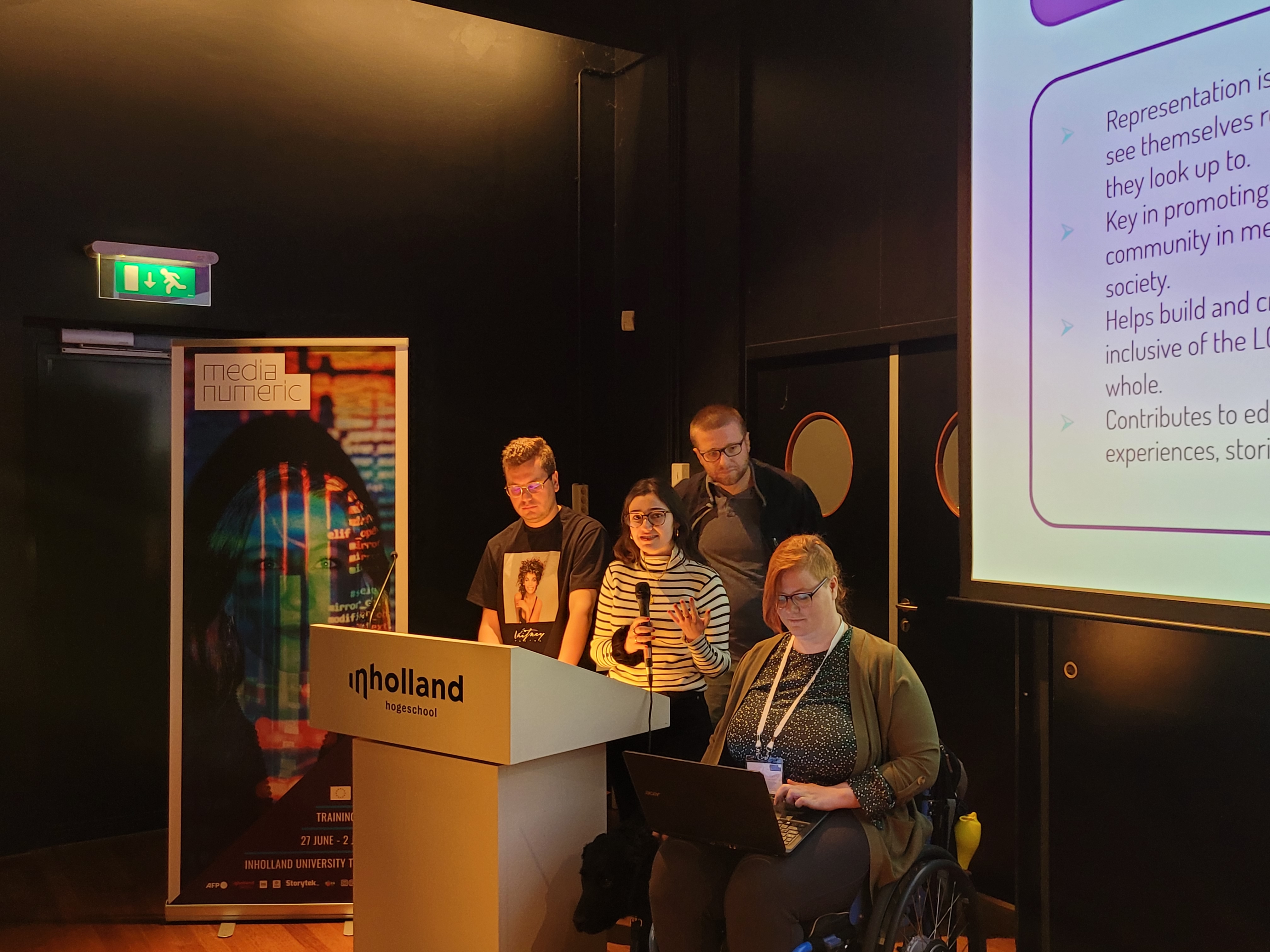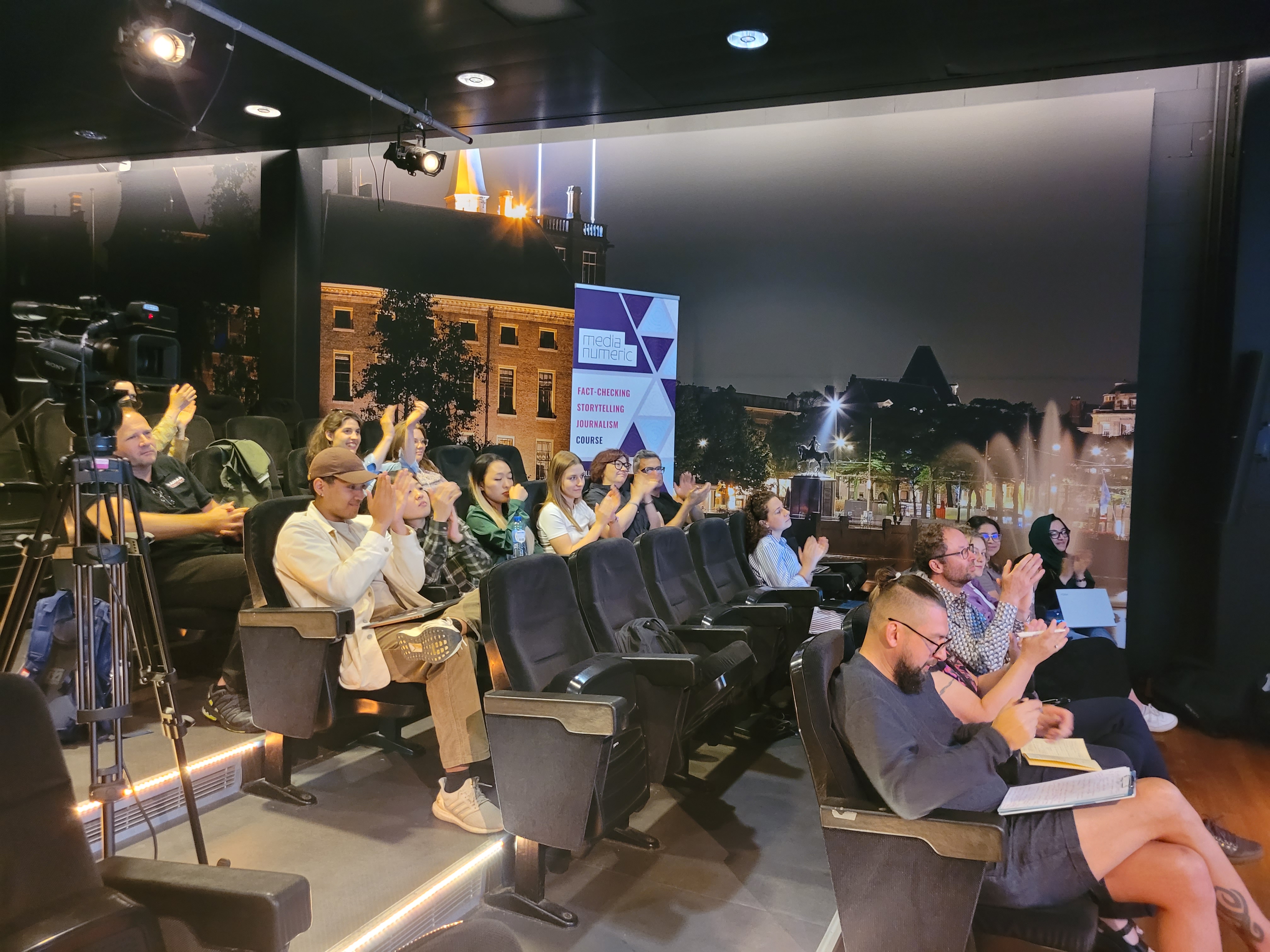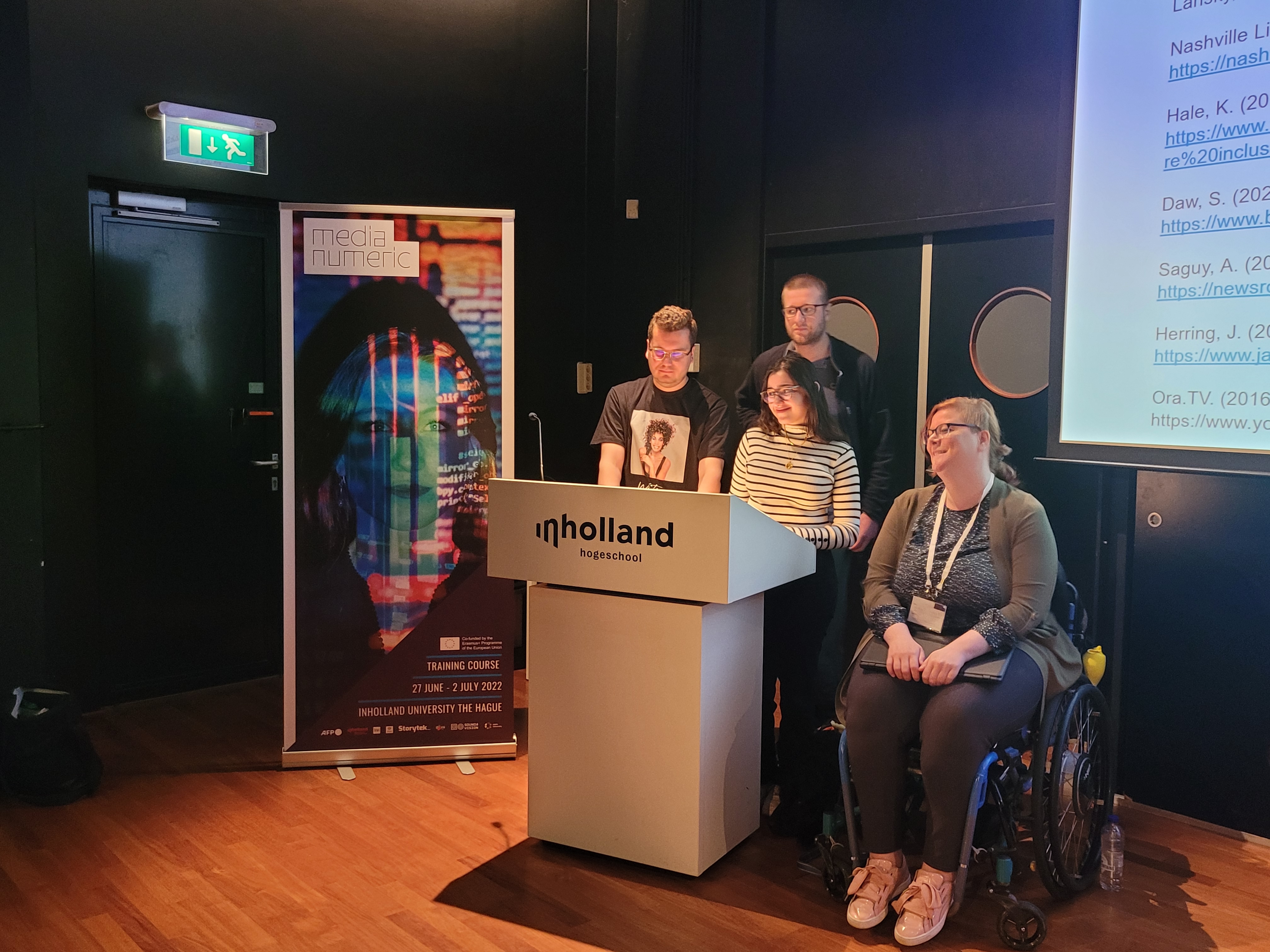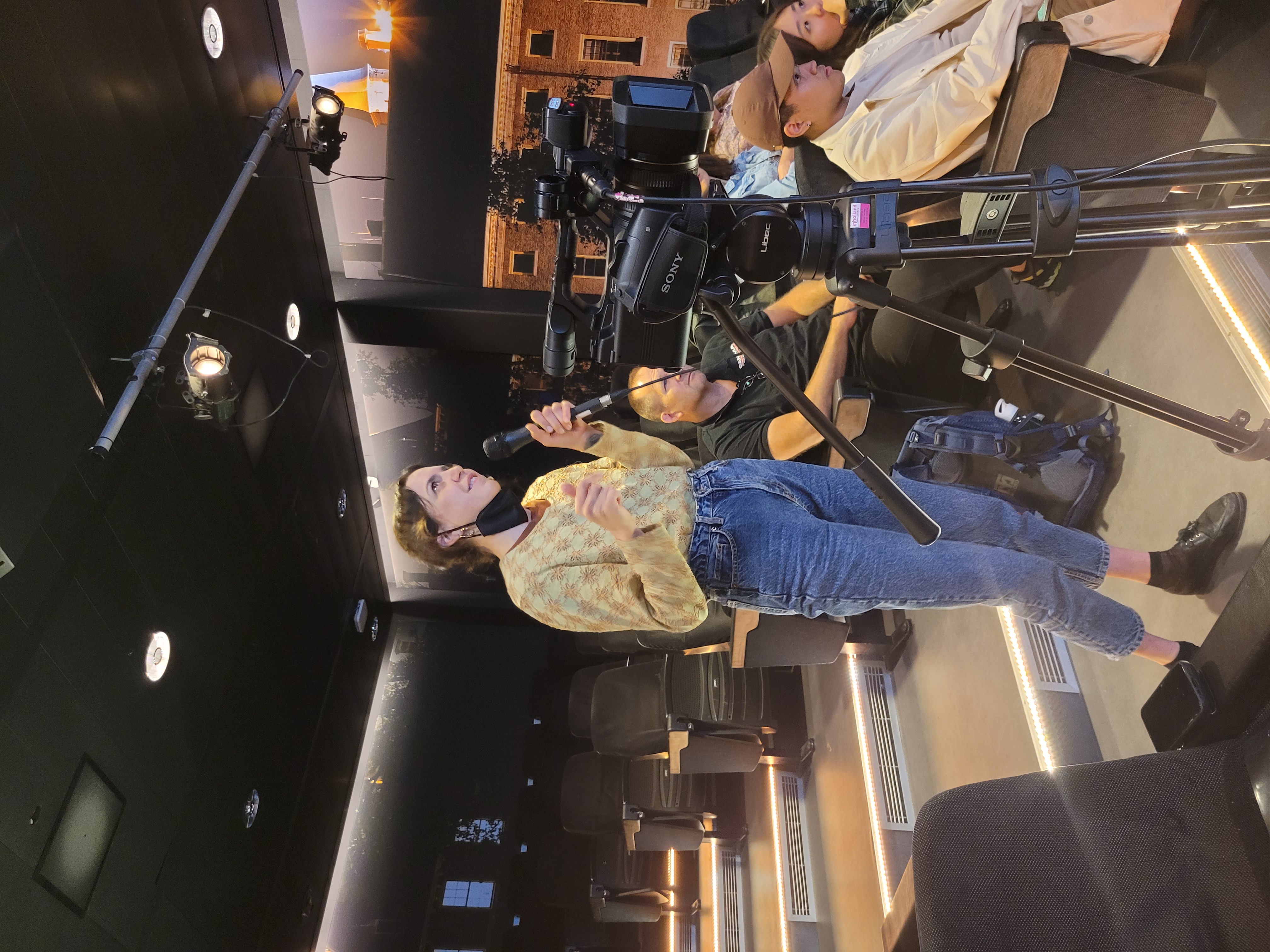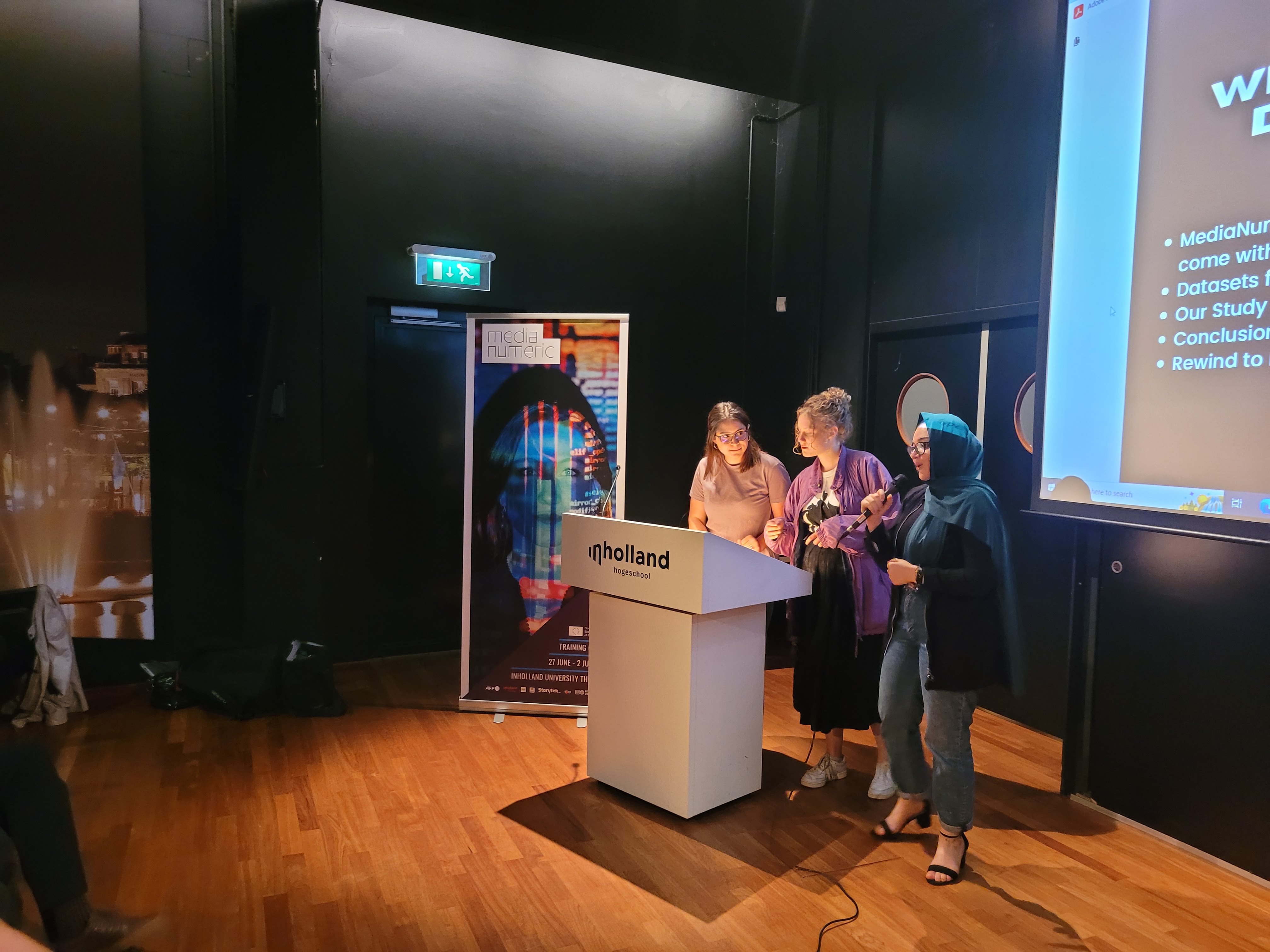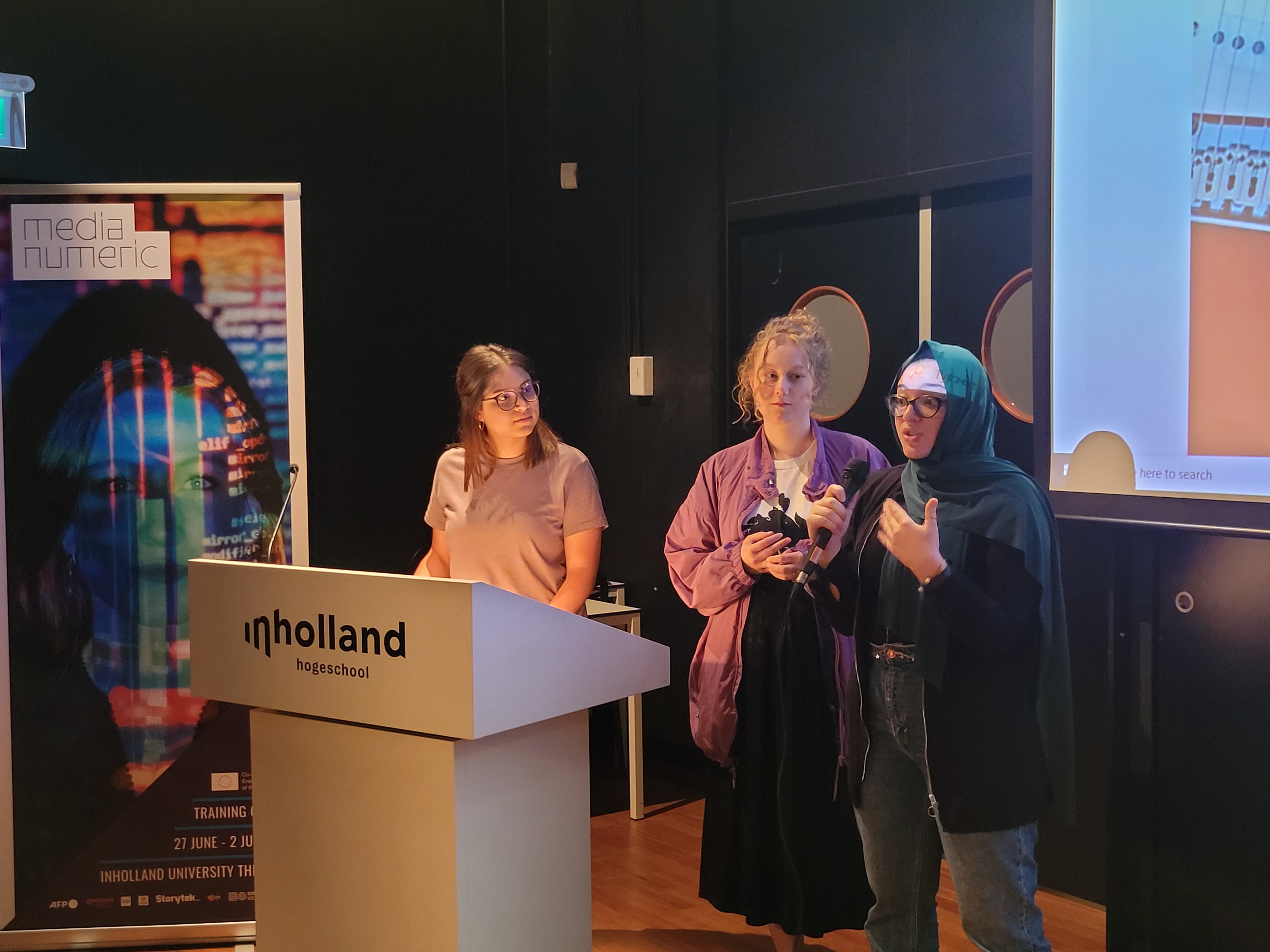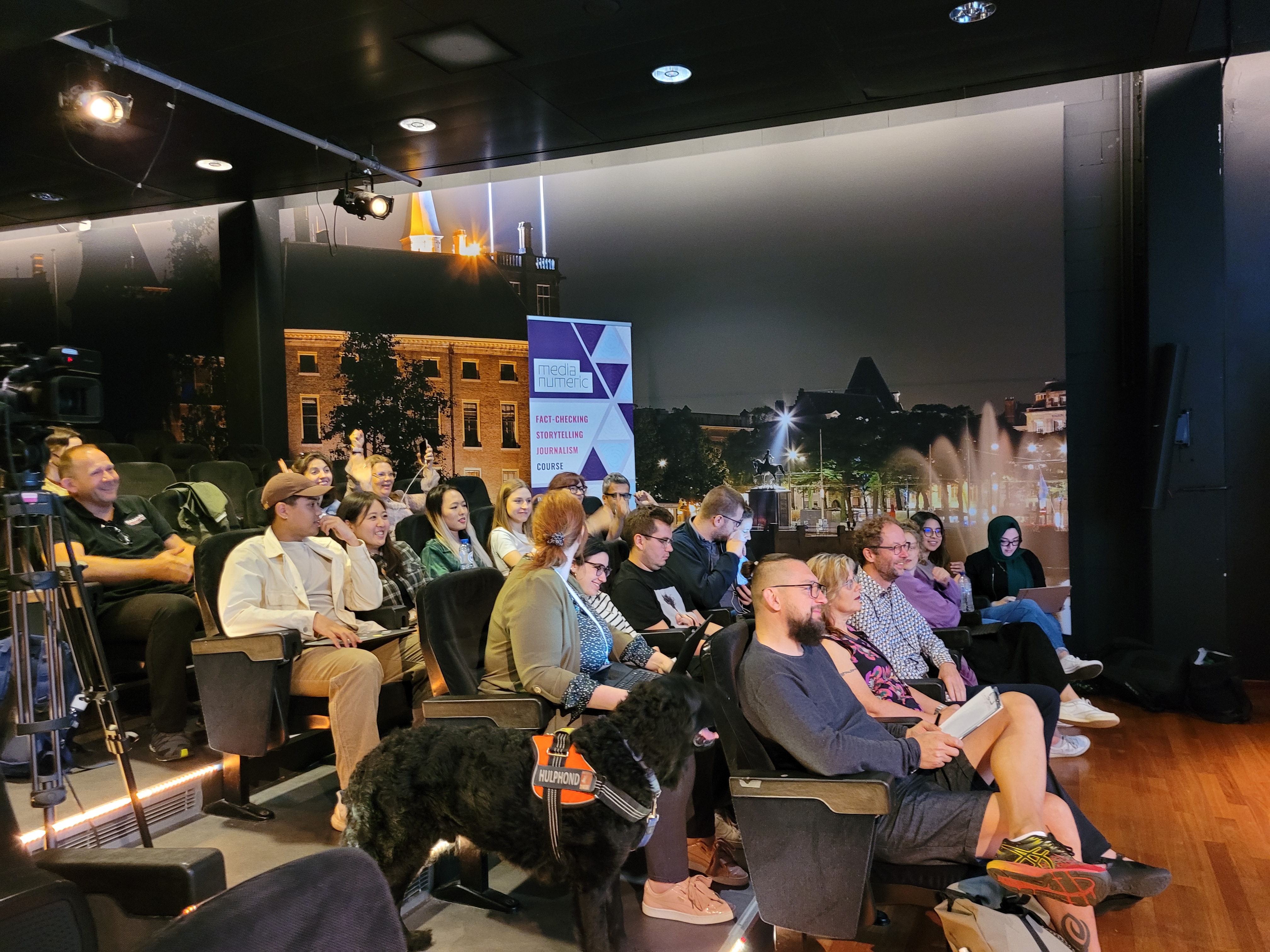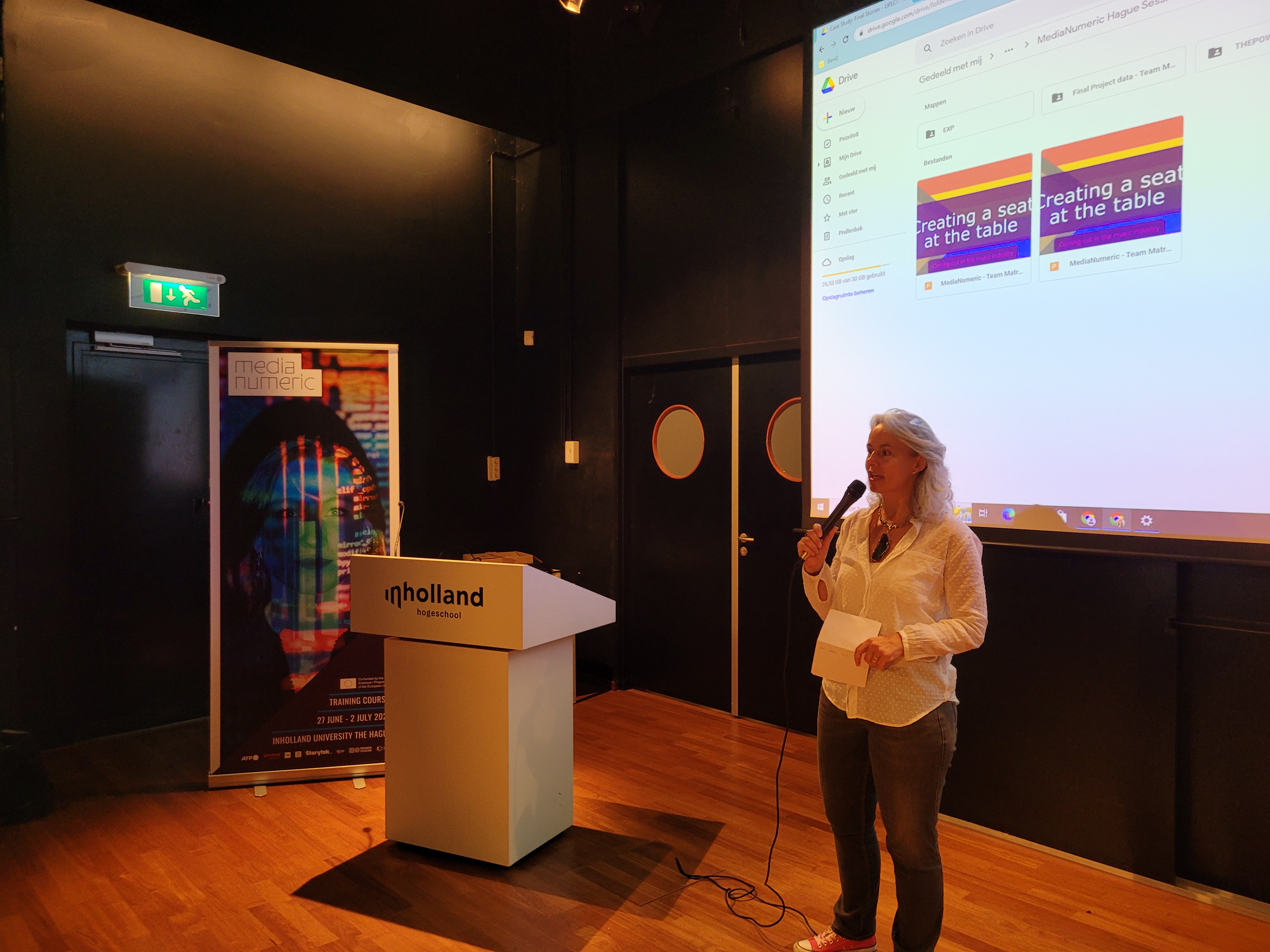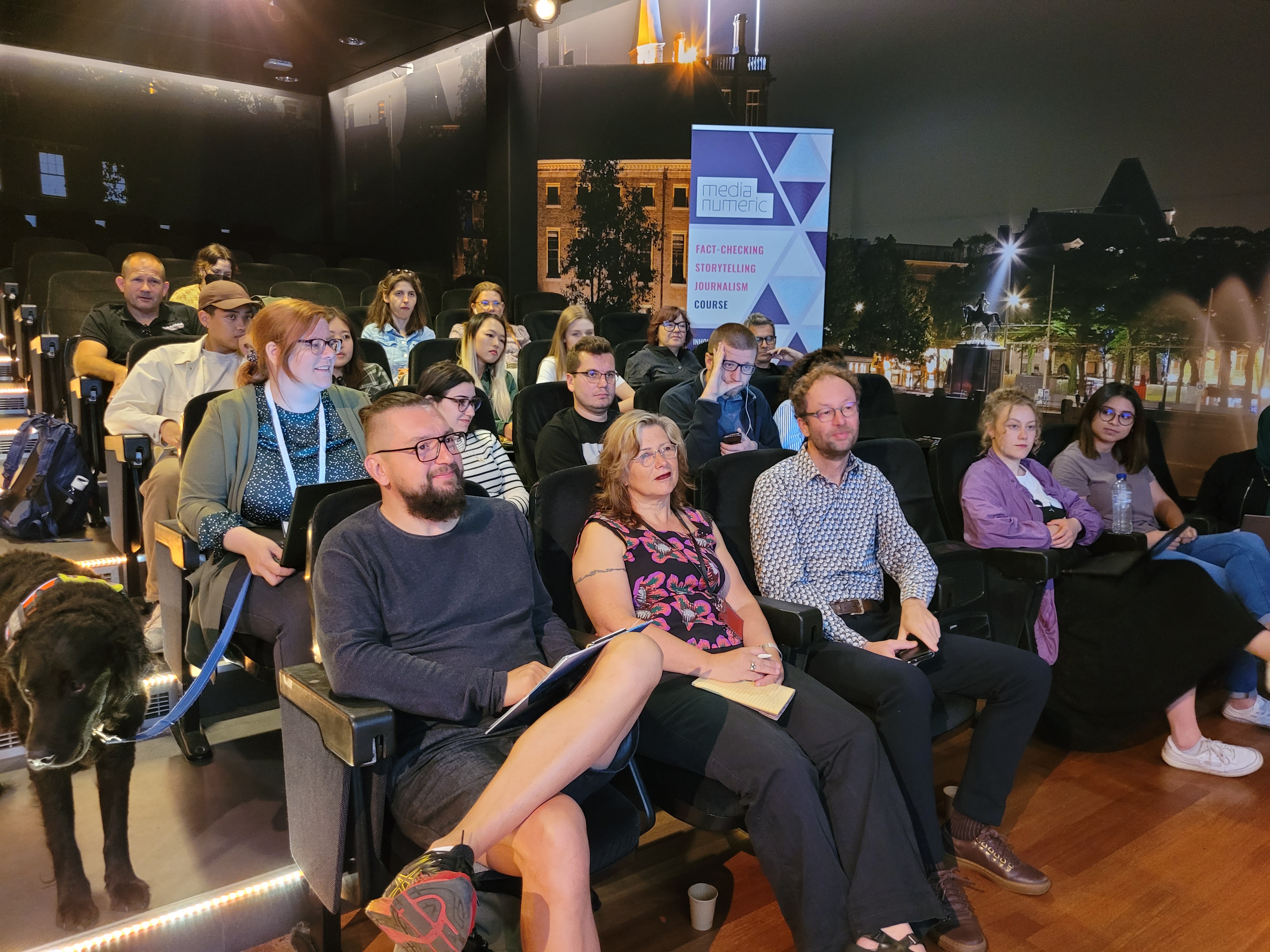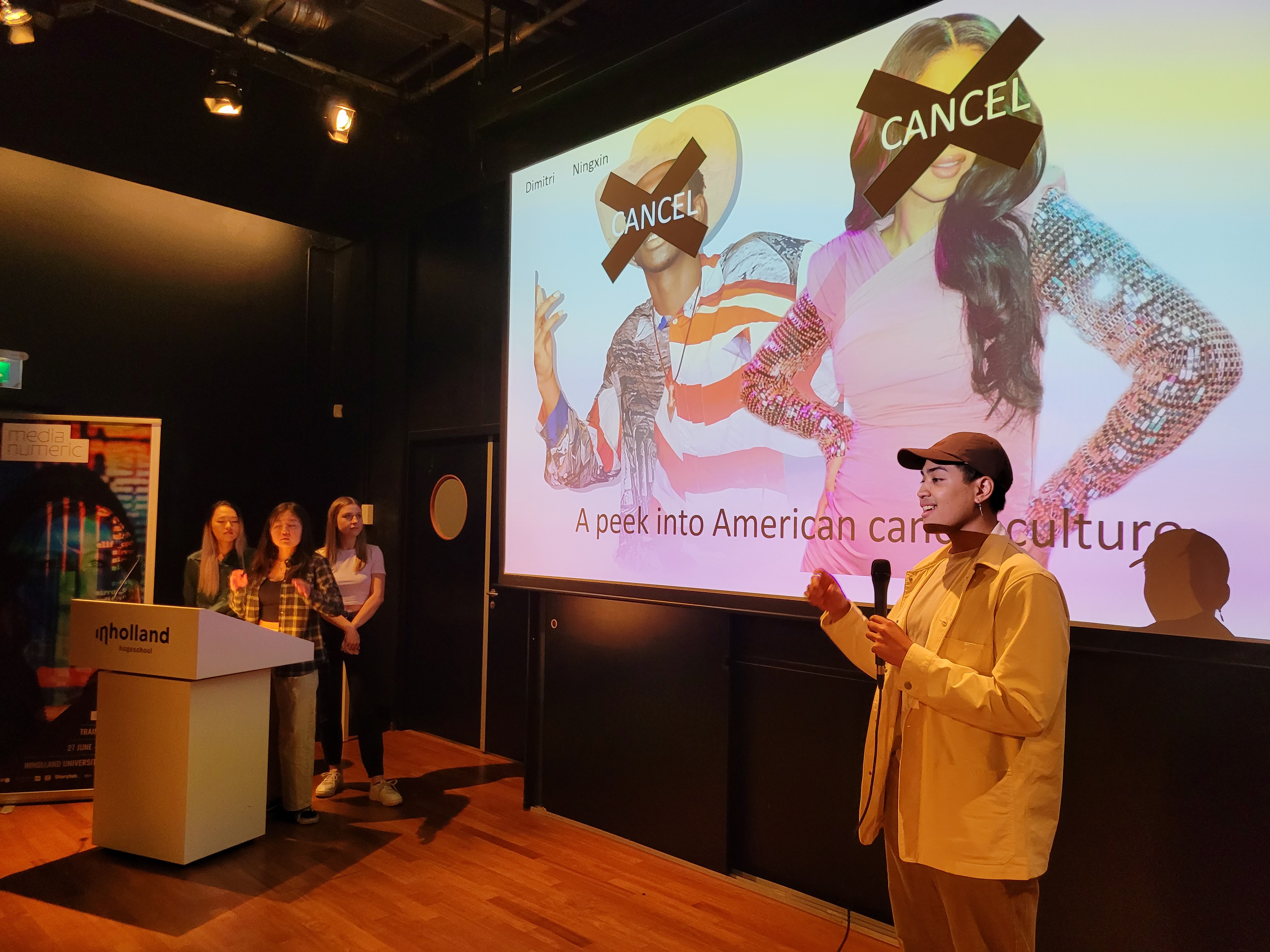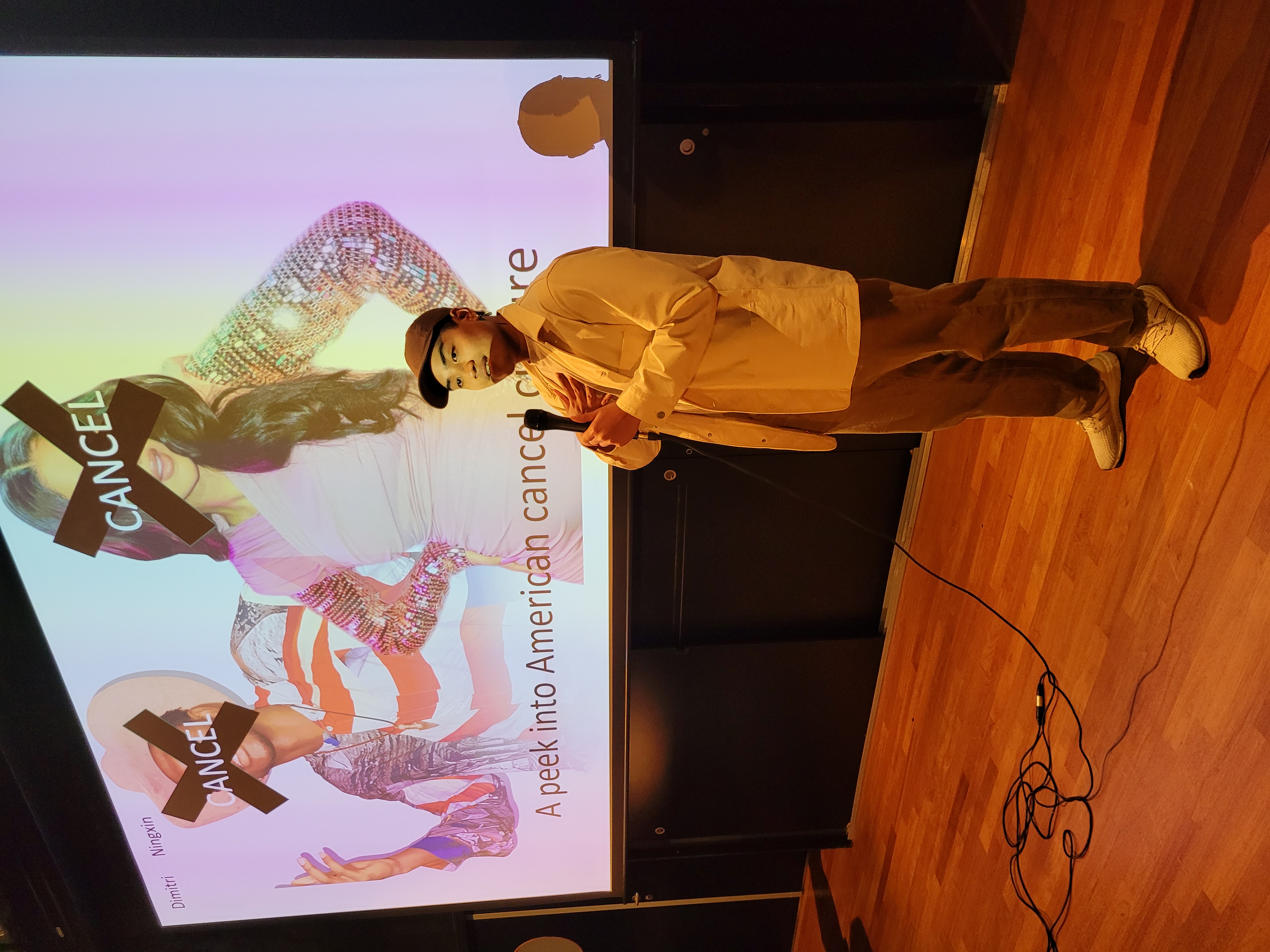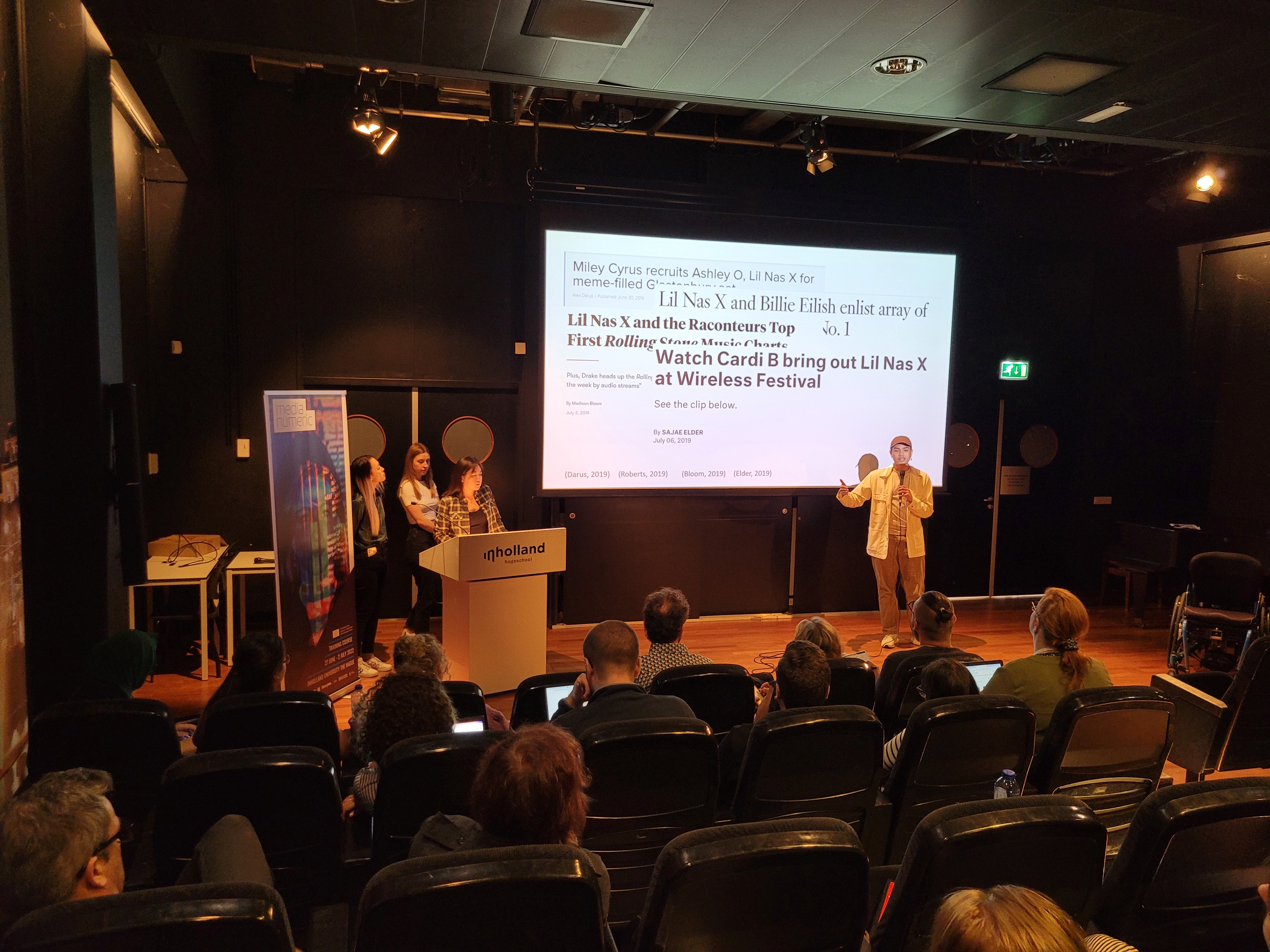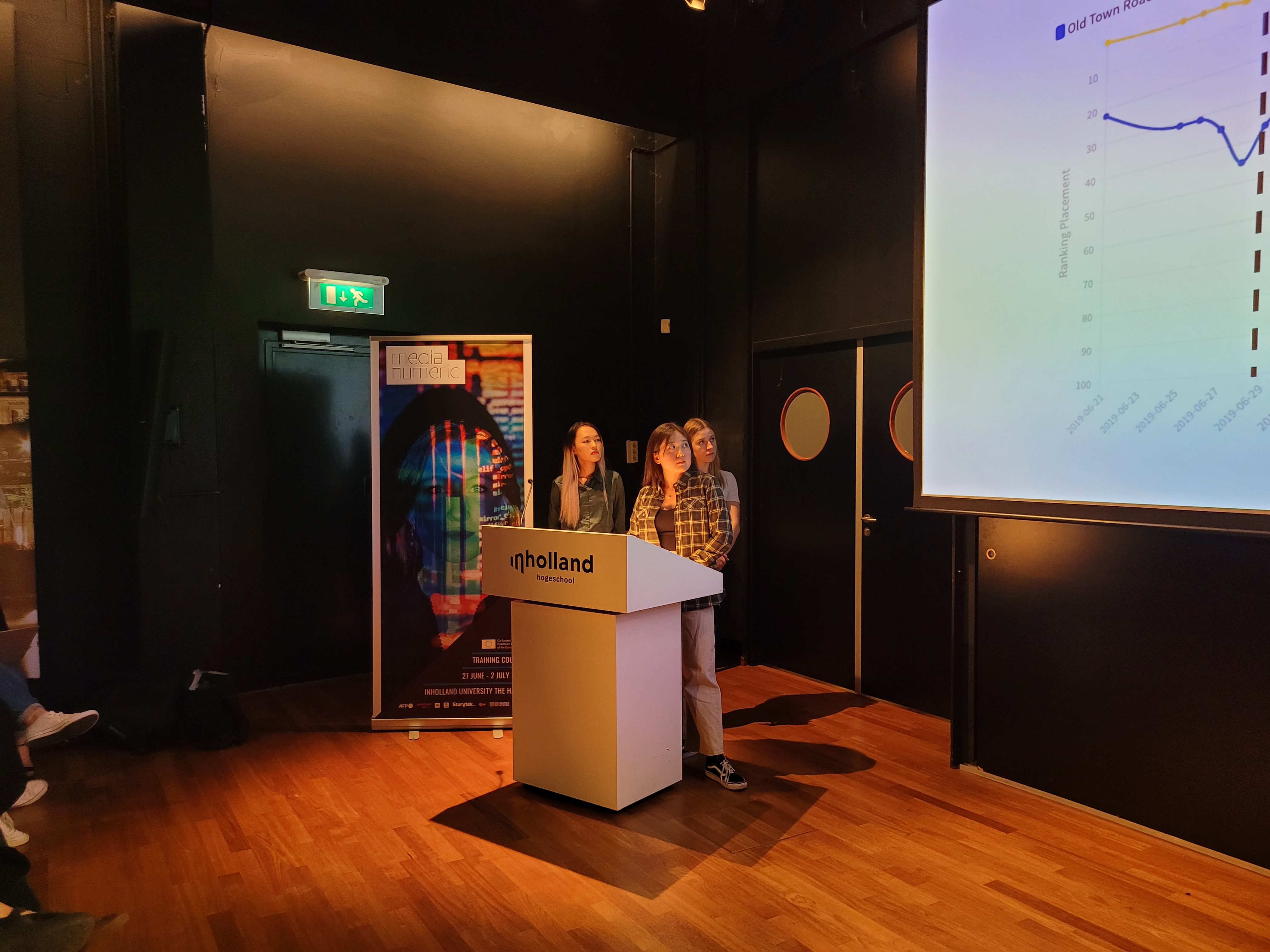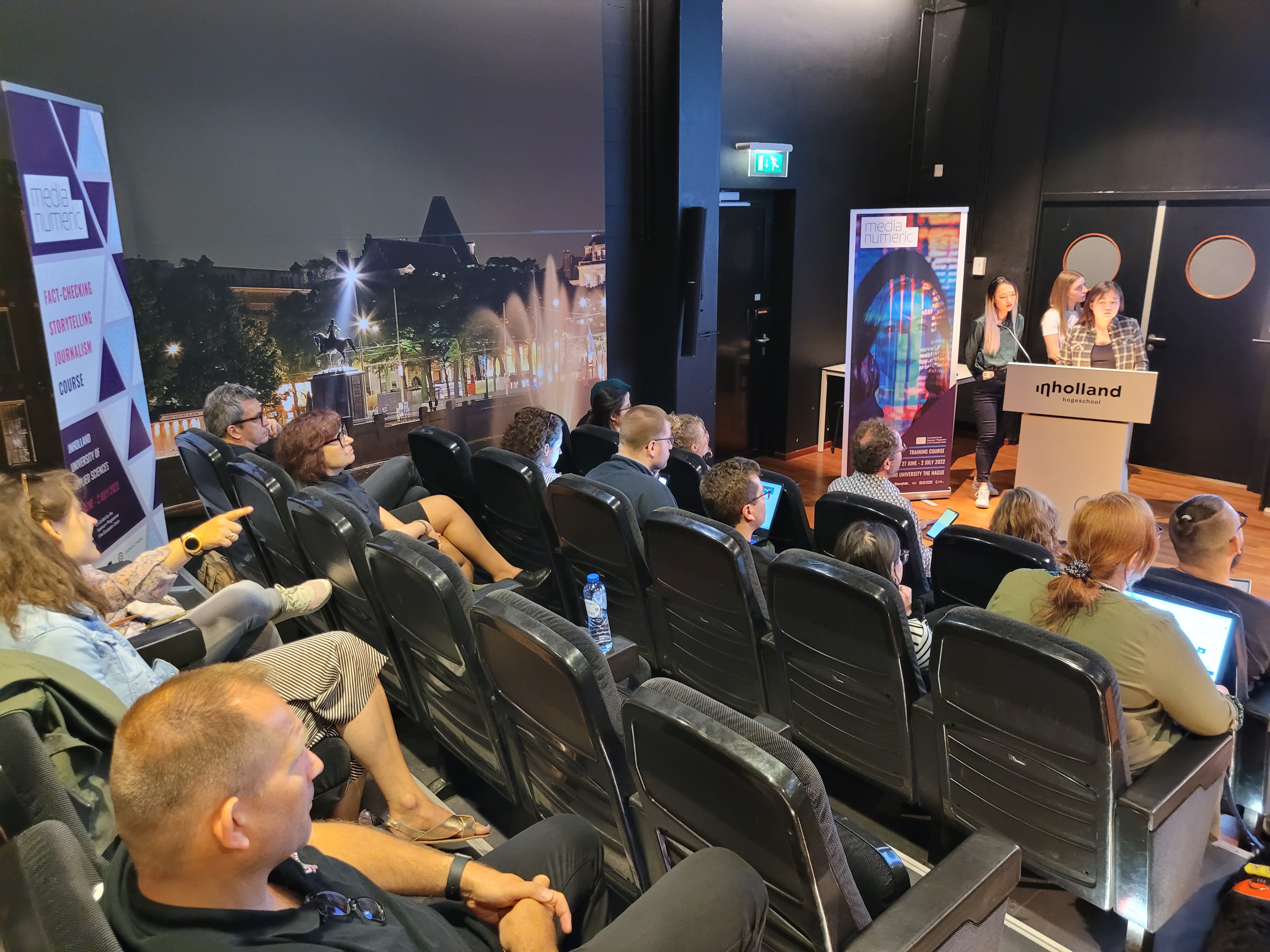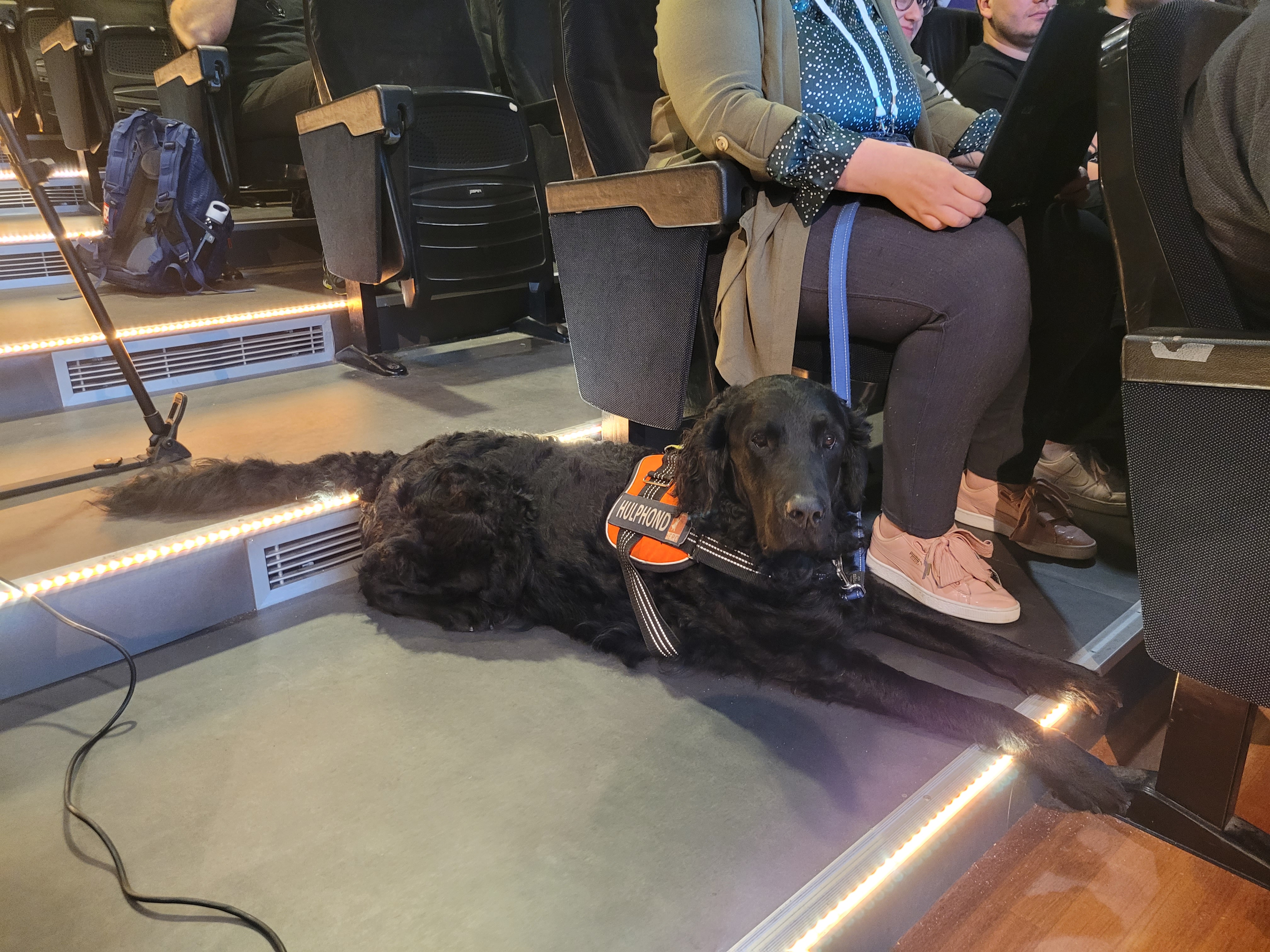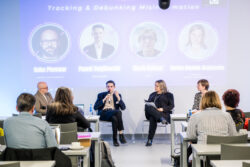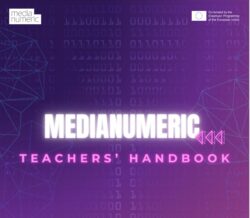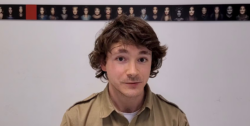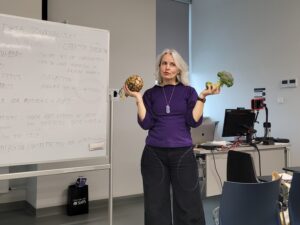During the last week of June 2022 the second group of international students took part in the MediaNumeric training course in The Hague, the Netherlands. Inholland University of Applied Sciences was the gracious host for the exciting week focused on data-driven journalism, creative storytelling and fact-checking. We couldn’t let the week go by without sharing our insightful, educational, challenging, but most of all fun experiences with the rest of the MediaNumeric community!
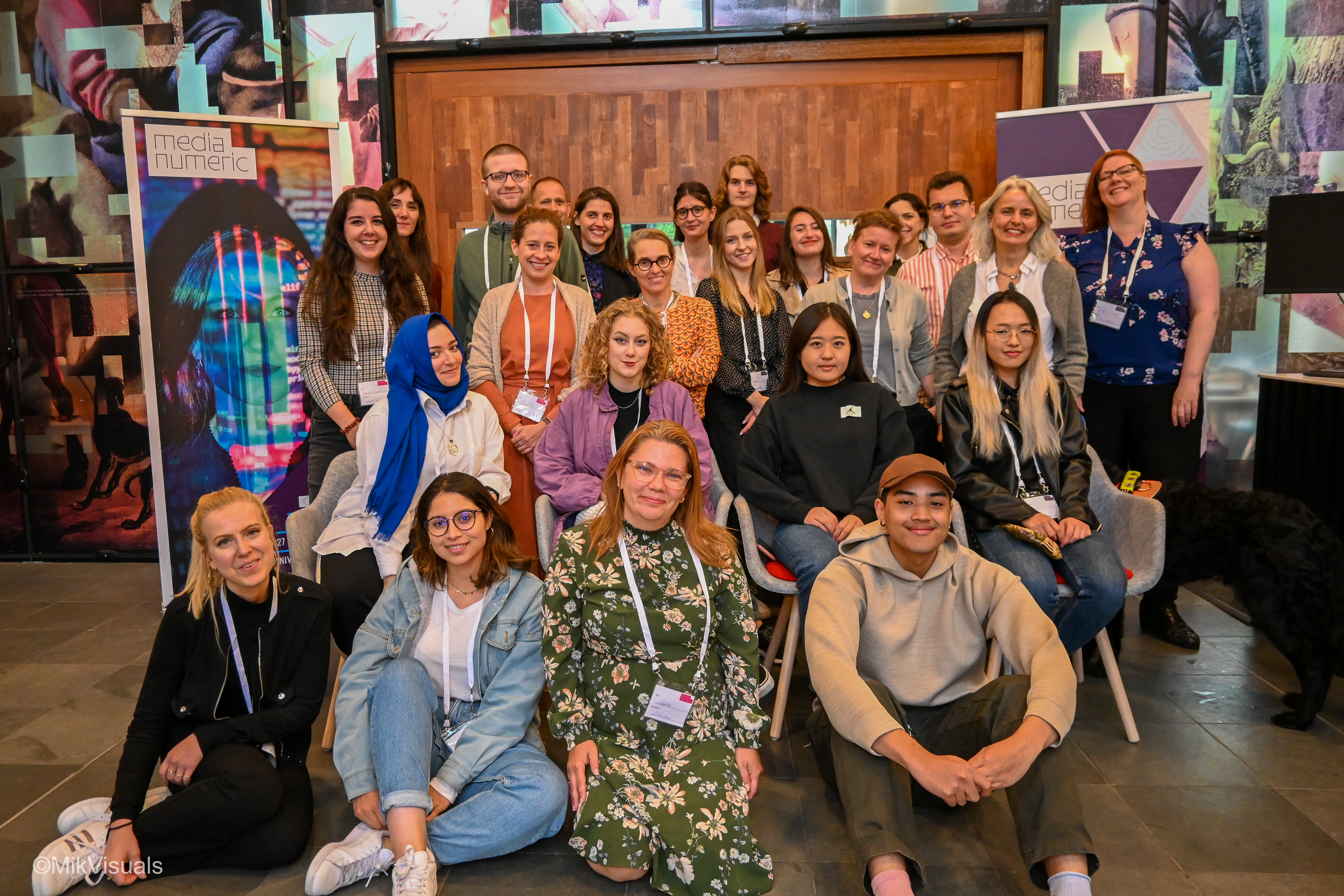
Day 1
Jacqueline Pietsch (Agence France-Presse (AFP)), virtually accompanied by Susannah Montgomery (Inholland University The Hague) and Natalia Berger (Inholland University Haarlem), kicked off day 1 by welcoming the selected students to the second MediaNumeric traning week and to Inholland University. We then started the day with lectures on media ethics and the social impact of journalism & media transitions. After having been introduced to the ethical basis of the field, the students moved on to the lecture on navigating copyright. The afternoon focused on workshops: the main stages of a data project, from data exploration to storytelling and the first case study workshop with data sets kindly provided by Chartmetric. In the evening the students were taken on a tour of Sound & Vision The Hague‘s impressive media museum, ending with some delicious drinks and vegan snacks.
Day 2
The morning of day 2 was all about strategies of the data search, including big data with both a lecture and a workshop on the subject. We then moved on to the lectures on the archival search and tools & databases: basic principles & choice of apps. The afternoon was once again dedicated to the case study workshop and after another busy day we headed to Scheveningen beach to enjoy the sunny evening, but more importantly to listen to the lively panel discussion with experts Julia Conemans (Sound & Vision), Frédérik Ruys (Vizualism) and Jerry Vermanen (Pointer).
Day 3
On Wednesday the students got to learn about the panorama of multimedia storytelling & the contributions of data and techniques & tools adapted to multimedia storytelling. After a jam-packed two and a half days the students (and the lecturers) got to take the afternoon off and explore the city of The Hague or simply took some time to process all the information from the past days!
This week has really made me think. The idea that media are objective has been quite savagely disputed. That’s very important to me. During this week we’ve learned about lots of ways to uncover the truth. If you’re telling a story, it needs to be based on facts and unfortunately not all journalists are aware of that.
– Carl Berentzen, MediaNumeric & Leiden University student
Day 4
Day 4 was a lecture-free day! The students spent the morning working in their groups on the Chartmetric case study, after which they took the train to Hilversum for an exciting study visit to Sound & Vision. Sound & Vision is the Netherlands’ institute for culture and media and home to the country’s largest media archive. Johan Oomen, head of the Research & Heritage department, welcomed the group and gave a brief introduction on the archives, the research the institute does and how they work together with countless (European) organisations towards making media heritage accessible across the world. Two of Sound & Vision’s curators then took us on a tour of the archive’s treasures; old televisions, radios, costumes & props from Dutch TV shows, and so much more! The afternoon was concluded with three short presentations on data-driven journalism from a historical perspective, fake news, and how to best engage with local makers.
Day 5
On day 5 the students had their final lectures on confronting the misinformation univsere and debunking dis/misinformation & data manipulation. The afternoon was spent working hard on finalising each group’s case study and preparing for tomorrow’s pitching session where each group should present their data-stories to the rest of the MediaNumeric team.
I found it very inspiring to work together with all of the different nationalities, because you then get to work with different perspectives. A Polish student may have a different outlook on something than a French or a Dutch student. The MediaNumeric coaches were also there to help us further with our data-stories. I’ve learnt a lot.
– Malak Raslan, MediaNumeric & Inholland University student
Day 6
The final day had arrived and with that the students’ final pitch of their data-stories. Based on Chartmetric’s data, each story focused on an issue in the entertainment industry; from coming out in the music industry to the cancel culture artists are experiencing more and more. Each pitch visualised how data-driven journalism, creative storytelling and fact-checking did (or did not) play essential roles in these unique stories. Once the pitches had been given, the nerves had settled and the well-deserved applause had been received, we headed out into the garden to reward the students with their certificates for 5 hard-earned ECTS! This second MediaNumeric traning course also resulted in the first ever certified dog in data-driven journalism, creative storytelling and fact-checking! Congratulations students and Evert the dog!
